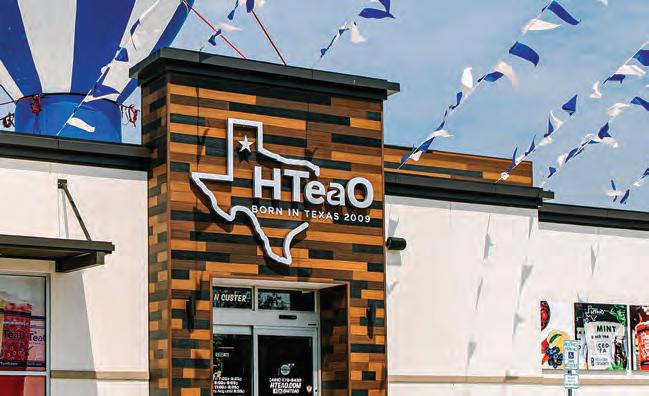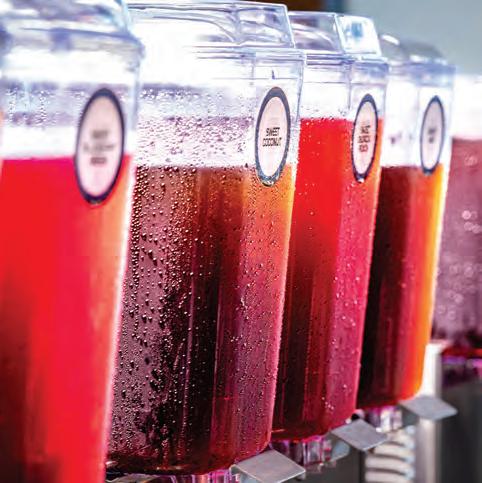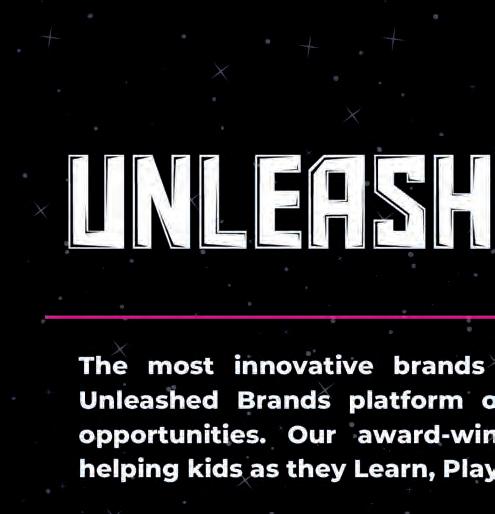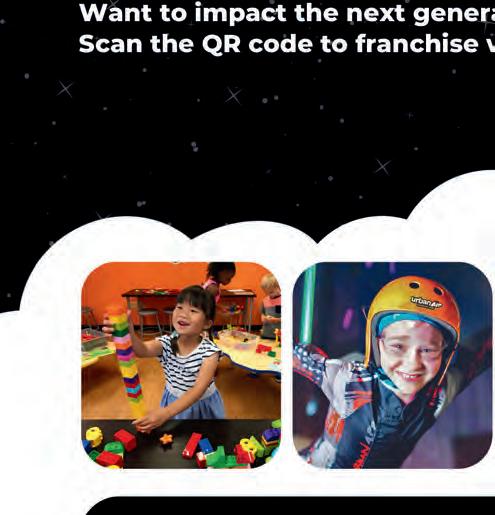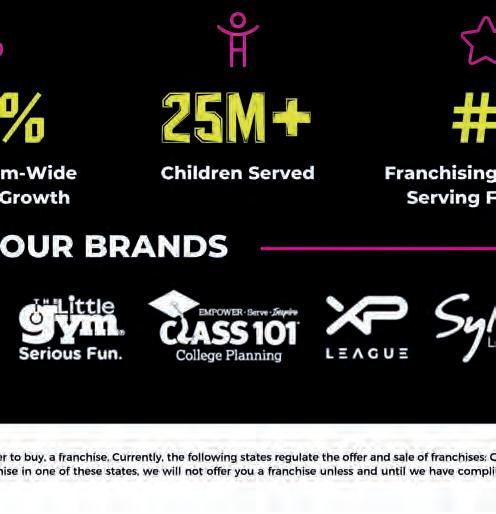
PLUS 9 MORE CATEGORIES WHERE FRANCHISING IS BOOMING






























































PLUS 9 MORE CATEGORIES WHERE FRANCHISING IS BOOMING





























































7 Start Here! What
8 Which Franchise Model Is Right for You? Here’s the biggest first decision for any franchisee.
12 What to Know as a New Franchisee Hard-won advice from someone who did it.
14 Don’t Believe These Myths About Franchising Busting three big beliefs that everyone gets wrong.
16 He Opened 10 Units in 10 Years
Here’s how he did it—and how you could too.
18 The Best Low-Cost Marketing Strategy
Help your community! It’s good for everyone, and good for business.
80 The 4 Most Powerful Words in Entrepreneurship
Here’s how to use them.






















EDITORIAL
MANAGING EDITOR Monica Im
SPECIAL PROJECTS EDITOR Tracy Stapp Herold
COPY CHIEF Jessica Levy
RESEARCH Andre Carter, Eric White
SPECIAL PROJECTS COORDINATOR Jordan Hall
CONTRIBUTING EDITOR Liz Brody
CONTRIBUTING WRITERS David Busker, Scott Greenberg, Emily Holmes, Ab Igram, Kim Kavin, Yiren Lu, Vincent Onyemah
ENTREPRENEUR.COM
EXECUTIVE EDITOR Brittany Robins
DEPUTY DIGITAL EDITOR Melissa Malamut
SENIOR DIGITAL CONTENT DIRECTOR Jessica Thomas
ENTREPRENEUR STUDIO DIRECTOR Brad Gage
DIRECTOR OF EDITORIAL SUBSCRIPTIONS Caroline Olney
SENIOR BUSINESS EDITOR Carl Stoffers
EDITOR, CONTRIBUTOR NETWORK Maria Bailey
SUBSCRIPTIONS EDITOR Mark Klekas
SENIOR FEATURES WRITER Amanda Breen
SENIOR NEWS WRITER Emily Rella
NEWS REPORTER Sherin Shibu
ASSOCIATE EDITORS, CONTRIBUTOR NETWORK
Chelsea Brown, Kara McIntyre, Micah Zimmerman
VP, DATA & OPERATIONS Michael Frazier
AD OPERATIONS COORDINATOR Daniel Belyaks
CHIEF TECHNOLOGY OFFICER Jake Hudson
VP, OPERATIONS Shannon Humphries
PROJECT MANAGERS June Munoz, Julianne Page
SENIOR ENGINEERS Jace Poirier-Pinto, Geoff Winner
ENGINEERS Angel Cool Gongora, Michael Flach, Abel Trotter
FRONT-END ENGINEERS Lorena Brito, John Himmelman
QUALITY ASSURANCE TECHNICIAN Jesse Lopez
ART DIRECTOR Christian Zamorano
SENIOR DESIGNER Jayla Buie
GRAPHIC DESIGNERS Andrew Chang, Isaac Contreras
DIGITAL MEDIA DESIGNER Monica Dipres
DIGITAL PHOTO EDITOR Karis Doerner
EDITOR IN CHIEF Jason Feifer
CREATIVE DIRECTOR Paul Scirecalabrisotto
DEPUTY EDITOR Frances Dodds
PHOTO DIRECTOR Judith Puckett-Rinella
CEO Ryan Shea
PRESIDENT Bill Shaw
CHIEF OPERATING OFFICER Michael Le Du
ASSOCIATE PUBLISHER/MARKETING Lucy Gekchyan
VP, SPECIAL PROJECTS Dan Bova
PRODUCTION COORDINATOR Mackenzie Truman
VP, NATIVE CONTENT Jason Fell
SENIOR INTEGRATED MARKETING MANAGER Wendy Narez
INTEGRATED MARKETING ASSOCIATE Ashleigh Dennis
SVP, INNOVATION Deepa Shah
PRODUCT MARKETING MANAGER Arnab Mitra
MARKETING COORDINATOR Chris Desrosiers
SENIOR MARKETING MANAGER Hilary Kelley
SENIOR DIGITAL ACCOUNT MANAGER Jillian Swisher
DIGITAL ACCOUNT MANAGER Michelle Gaudy
VP, BUSINESS DEVELOPMENT Charles Muselli
GM, CONTENT SYNDICATION Matt Goldstein
BUSINESS DEVELOPMENT ASSOCIATE Michelle Buzga
VP, ENTREPRENEUR BOOKS Sean Strain
SOCIAL MEDIA
VP, SOCIAL Sana Ali
SOCIAL MEDIA SENIOR MANAGER Kennadi McCoy
CUSTOMER SERVICE entrepreneur.com/customerservice
SUBSCRIPTIONS subscribe@entrepreneur.com
REPRINTS
PARS International Corp. (212) 221-9595, EntrepreneurReprints.com
ADVERTISING AND EDITORIAL Entrepreneur Media Inc. 1651 East Fourth Street, Suite 125, Santa Ana, CA 92701 (949) 261-2325, fax: (949) 752-1180
ENTREPRENEUR.COM Printed in the USA GST File #r129677027
ENTREPRENEUR MEDIA NATIONAL
ADVERTISING SALES OFFICES
SVP, NATIONAL SALES Brian Speranzini
VP, NATIONAL PRINT SALES James Clauss
NORTHEAST SENIOR ACCOUNT DIRECTOR Rikki Paribello
ACCOUNT DIRECTOR Krissy Cirello
CHICAGO
MIDWEST DIRECTOR, STRATEGIC PARTNERSHIPS Steven Newman
DETROIT
MIDWEST DIRECTOR OF SALES Dave Woodruff
ATLANTA
SOUTHERN ADVERTISING DIRECTOR Kelly Hediger
LOS ANGELES
WEST COAST ADVERTISING DIRECTOR Mike Lindsay
GREEN ENTREPRENEUR & ENTREPRENEUR, NATIONAL ACCOUNT DIRECTOR Hilary Kelley
FRANCHISE AND BUSINESS OPPORTUNITIES
VP, FRANCHISE SALES Brent Davis
DIRECTORS, FRANCHISE SALES
Cassidy Ford, Casey Lamm
PRODUCTS AND SERVICES ADVERTISING Direct Action Media, Tom Emerson (800) 938-4660
ADVERTISING PRODUCTION MANAGER Mona Rifkin
EXECUTIVE STAFF
CFO Chris Damore
DIRECTOR OF FINANCE Tim Miller
FINANCE SUPPORT Jennifer Herbert
CORPORATE COUNSEL Ronald L. Young
ASSOCIATE COUNSEL Brittany Ortiz
LEGAL ASSISTANT Cheyenne Young

























































































































































































































































f you picked up this magazine, it’s probably for two reasons:
First, you’re looking for something new. Maybe you’re interested in a career change. Maybe you want more control of your life—to dictate your own schedule, profit from your own labor, and call your own shots.
Second, you think franchising might be your answer. Most people associate franchising with fast-food chains—and while it’s true that brands like McDonald’s and Taco Bell are huge franchise success stories, it’s also true that franchising consists of thousands of brands, providing countless kinds of products and services, and is ripe with opportunities for aspiring business owners.
In short: If you want to be your own boss, but you don’t want to start a new business from scratch, then franchising has truly endless opportunities for you. The only problem is—it can feel like too many options to choose from!
That’s why we created this issue.
This magazine is full of advice for franchisees—how to find the right brand for you, how to better understand franchising, and what it takes to succeed.
And when you flip to page 22, you’ll find the heart of this

issue. It’s our list of the 10 hottest categories in franchising—the spaces where business is really booming, and where aspiring franchisees like you really should be looking. Then we list every franchise brand in that category, so you can browse for the one that best fits your needs.
And how do we know what’s hot? Because we follow this stuff more closely than anyone.
Every year, Entrepreneur magazine looks across franchising and the world at large, and then analyzes industry trends and year-over-year unit
growth. We’re crunching numbers, tracking cultural shifts, and talking to franchise experts. And we’ve been doing this for a long, long time.
IN 2024, we see a mixture of historically successful categories and newly thriving ones. Some of these categories, like pets, have been hot for years, and are clearly tied to the way COVID shifted people’s behaviors. (Remember all those pandemic puppies?) But there are also newly growing categories, which either weren’t surging before or are just beginning to experience
rising levels of competition. In particular, it’s worth looking closely at the ascent of beverages, children’s enrichment, sports, and meal preparation and delivery services.
Should these be the only franchise categories you look at? Of course not. Many other categories are healthy and exciting too, and you should find the brand, and business model, that excites you the most.
But why not start where the heat is hottest? Flip around this magazine, and let the next phase of your career begin!

When people want to become franchisees, they have to make a big decision: What type of business do I want to run?
There are two big ones: You’re either a location-based business, or you’re service-based. Here’s how to decide between them. by
either service-based. Here’s how to decide
DAVID BUSKER
There are thousands of brands and concepts to choose from—hair salons, fitness studios, lawn care companies, moving services, and more. But they all generally fall into one of two business models. There are “location-based businesses,” like hair salons and fitness studios, which have retail storefronts where the customer receives the service at a fixed location. Then there are “service-based brands,” like lawn care and moving companies, which do not have a storefront. The service is provided wherever the customer is.
There are some key differences between brick-and-mortar and service-based businesses. There are different criteria to start them and to grow them. Here are the six most important.
Real estate is usually the biggest factor here. The more real estate intensive a business is, the greater the investment level. Location-based, brick-andmortar franchises generally have higher initial investments. Building the retail space can be pricey. Picture a fitness studio. You need equipment, like stationary bikes or pilates machines, but also a high-tech sound system, televisions, changing rooms, showers—not to mention the flooring, interior architecture (walls, stage, various rooms), trade dress, and more.
On the other hand, a service-based brand doesn’t necessarily require real estate. (Some may even operate from a home office.) Some service-based brands may require storage space to house vehicles or equipment to be deployed at the customer’s location. But these sites are ideally less visible and lower-cost industrial spaces— which require few leasehold improvements compared to a customer-facing retail space.
So what can you expect the investment costs to be for each of these options for a single unit or territory? Although there are always exceptions, common ranges are about $250,000-plus for brick-and-mortar, while service-based brands are usually under $300,000.
This goes hand in hand with investment costs. The time it takes to start earning a positive monthly cash flow, as well as how long it takes to establish repeat business, are both important benchmarks for any sustainable franchise. In terms of speed, service-based brands are more likely to ramp up quickly because of lower invest-
The time it benchmarks for franchise.
The time it takes to start earning a positive monthly cash flow, as well as how long it takes to establish repeat business, are both important benchmarks for any sustainable franchise.
ment costs upfront and lower fixed overhead costs. Consider a moving-service brand. Once you have the equipment and employees, the month-overmonth operation costs are more closely linked to revenue growth, leading to cash flow more quickly.
Alternatively, a brick-andmortar brand like a salon will have high upfront investment costs (retail space, individual stations, chairs, mirrors, hair wash/dry stations, etc.) and will likely take time to establish a strong customer base in a particular community. However, they tend to have more repeat business and durable income streams over time.
Brick-and-mortar businesses are typically more scalable. Once you have a single successful franchise, it’s easier to manage and build an empire by spreading costs over multiple locations. But remember: Each new location will have costly building investments. With a service-based brand, rather than building more locations to expand, you can increase your territory and drive more penetration within your territories. While this isn’t without additional costs (consider gas money, employees to keep up with demand,
more equipment maintenance, etc.), it requires only incremental investments since you benefit from both increased revenue and economies of scale. By purchasing additional territories in a service-based brand, you scale your revenue and your income multiplier without the same proportional increase in capital investment.
This tends to be relatively equal in terms of usefulness and accessibility. In recent years, technology has transformed the franchise world. Specifically, repeatable but necessary tasks have been streamlined and simplified. For brick-andmortar brands, it’s common to see customers scheduling services directly (hair appointments, fitness class bookings, etc.). For service-based brands, customers can make bookings— and employees can perform tasks like ordering parts, creating estimates, etc.—in real time, which keeps business moving.
For brick-and-mortar brands, deciding on a location is often a balancing act of finding real estate that is within your price range, and in a popular area. Since you will be offering services in a fixed location, the further away you are from the
customer, the less likely they are to travel to your location. For example, a fitness studio needs to be convenient enough for customers to come three to four times per week. The more frequently a customer would like to visit your franchise, the higher density is needed for the same market radius.
For a service-based brand, location is not as important for overall success. Since you or your employees will be traveling to the customer’s location, there is no site selection risk. However, it is worth noting that if you do expand to multiple territories, you may want to consider renting additional warehouse or storage space to optimize efficiency.
One final factor to consider is the recession resistance of your franchise. Brick-and-mortar brands often offer more discretionary services. These include “everyday services”— hair care, nail salons, etc.—but they are not always considered essential. Service-based brands, on the other hand, often are essential services that must be performed despite fluctuating market trends— think HVAC, plumbing, yard care, or restoration.
At the end of the day, there is no one-size-fits-all franchise for every potential franchisee. But by understanding the basics of these two categories, you can start to consider which business model type matches most closely with your business goals.
David Busker is the founder of FranchiseVision, a national franchise consultant, and the author of the book Franchise Vision: Transform Your Future Through Franchise Ownership.









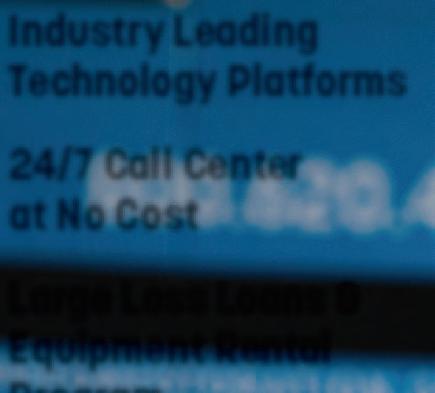


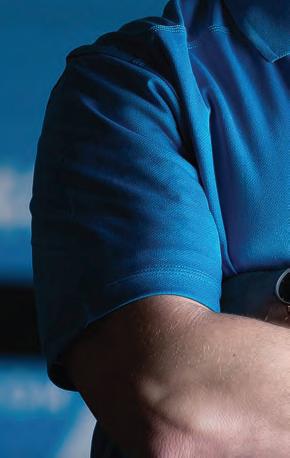


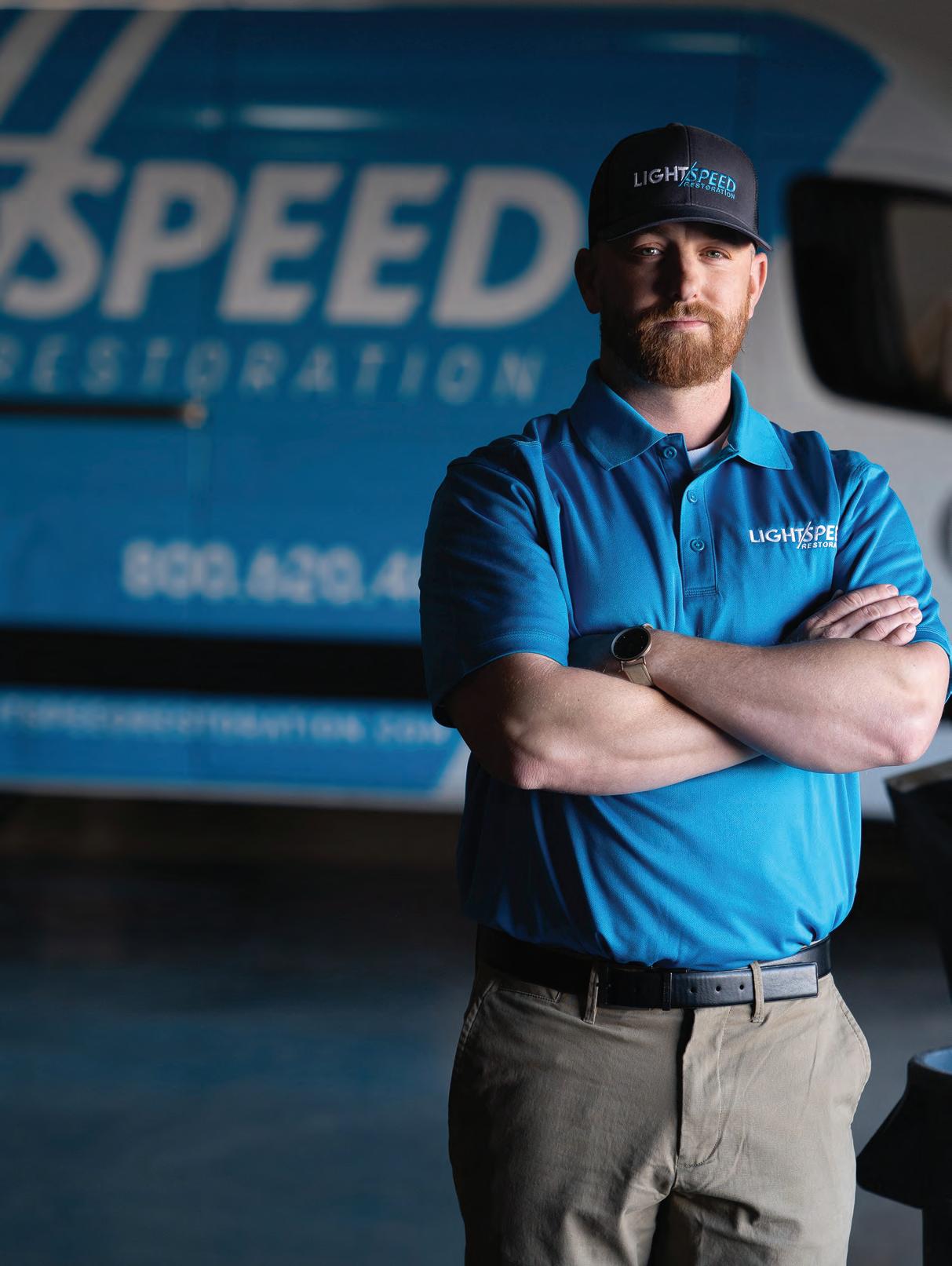


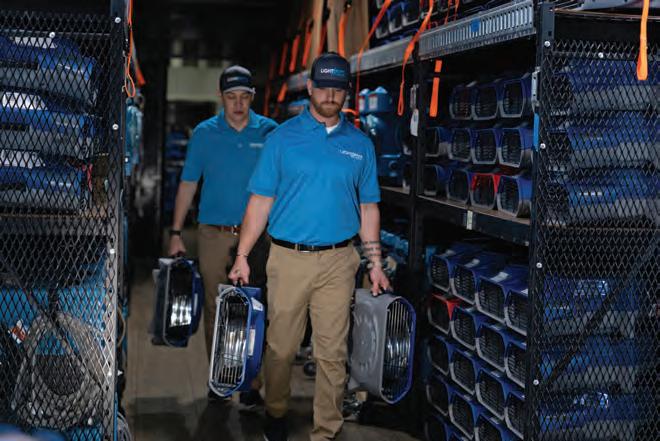
In recent years, the frequency of natural disasters like hurricanes, floods, fires, and tornadoes has surged, driving the annual cost and demand of restora�on to rise and leaving communi�es in need of help to clean up the a�ermath. According to a study from the NOAA Na�onal Centers for Environmental Informa�on (NCEI), “the number and cost of weather and climate disasters are increasing in the United States.”


Due to this increase, some of the fastest-growing business segments in the world are water damage restora�on franchises. In the U.S. alone, the high demand for these emergency services is expected to double in the next 10 years. Addi�onally, everyday mishaps like busted pipes, appliance leaks, and toilet overflows also contribute to the demand for restora�on services.
Lightspeed Restora�on, a 24/7 disaster response company, aims to raise the bar by providing trusted, caring, and rapid response to consumers and best-in-class support to franchisees, with increased training, innova�ve technology, and marke�ng resources. Lightspeed Restora�on is part of the Home Franchise Concepts® family of brands, one of the largest franchise systems in North America.
Lightspeed Restoration is a 24/7 disaster response company specializing in immediate, reliable action to quickly restore residential and commercial buildings back to normal after floods, burst pipes, fires, mold and more.
Restoration is a 24/7 disaster response company in immediate, reliable action to restore residential and commercial back to normal after pipes, fires, mold and more.
LIGHTSPEED RESTORATION FAST FACTS†
Initial Franchise Fees: $49,000
Initial Franchise Fees:
In-House to
In-House Financing: Up to $35,200
Veterans Discount: 15%
Veterans Discount: 15% off initial franchise fees
Training: Approved IICRC School with FREE courses
Training: Approved IICRC School FREE courses
With the help of a strong parent company to provide the training and resources necessary to serve communi�es, the brand has been able to expand rapidly across the country.
Lightspeed franchisees receive free water damage cer�fica�on training at the company’s IICRC approved flood house, 24/7 in-house na�onal call center support, training on working with insurance carriers to streamline the claims process for customers, and loans to keep franchise owners’ cash flow going during catastrophic events.
With increasing natural disasters and the con�nuous day-to-day demand for restora�on, Lightspeed is proud to help communi�es in the face of adversity across the na�on and build a recession-resistant business in the rapidly growing restora�on industry at the same �me.
‘What
A former franchisee gives advice to all who come after him. by

WBart Bess
guy to ask—because he’s on his way out, but also on his way in.
Bess once owned more than 100 retail outlets of a cell phone brand. Then he opened four clinics with QC Kinetix, a franchise that offers regenerative medical treatments for pain management. Now he’s switching places in the franchise world: In late 2023, he put his clinics up for sale so he could become QC Kinetix’s chief operating officer.
We wanted to know: As Bess transitions over to the franchisor side, what advice does he have for incoming franchisees? Here’s what he said.
Research a business.
Research a lifestyle.
“When you’re researching franchises, reach out to a lot of owners and see how their lifestyles are. Is that the lifestyle that you want? Because some businesses may be way more hands-on than you were thinking. Others may be more hands-off than you wanted as a business owner.”
Buy a franchise’s vision.
“People will buy into a franchise, and then start blaming the franchisor for all the problems. It’s easy to do that. You forget to look within your own business at what some of the problems could be. So really believe in the brand. Believe in their techniques and their goals. You build a successful brand around things that are working, so execute it the best you can.”
Pick a location with many people.
Study how potential customers move.
“When you’re looking at a map, sometimes you think, These people are going to the center. But maybe there’s a freeway or something that they just don’t normally cross, so they actually may drive farther in a different direction. When looking at real estate, you need someone that knows the way locals travel.”
Build culture as you hire.
“People can go anywhere for a paycheck. They pick a career because they love what they’re doing and love the people they work around. From day one, it was critical that I hired people who cared about the culture as much as I did. I would start the culture at the interview, to make sure I was hiring candidates that fit it.”
Expand to new cities.
Expand toward customers.
“When we advertise, we hit the whole area. When people call in, I’m getting their zip code and finding out where they live. That’s the next area my clinic would go. Some realtors have given me cities that seemed great, but when I compared it to where people are calling me from and where my marketing is working, I was not capturing people there. Follow the data.”



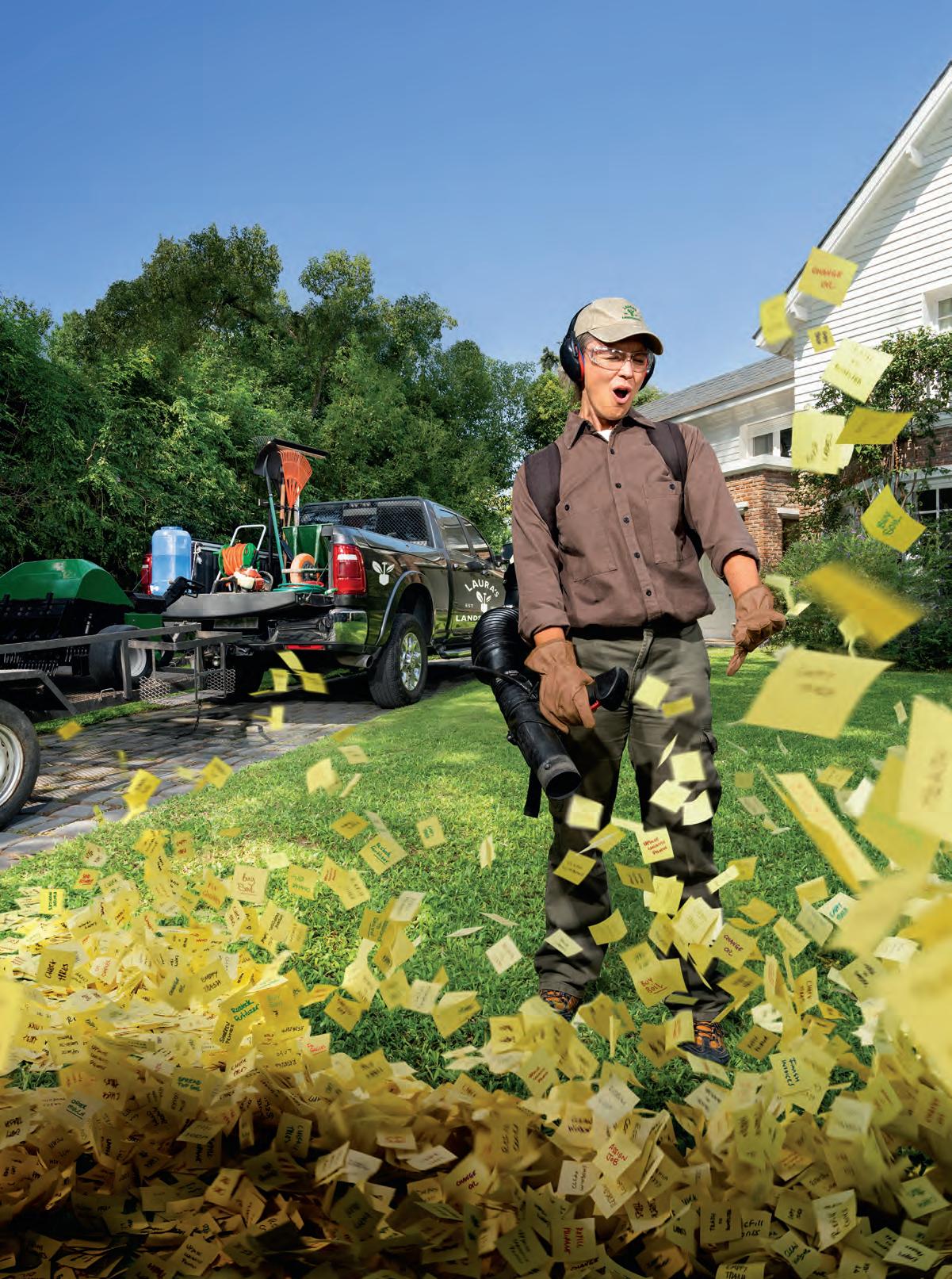


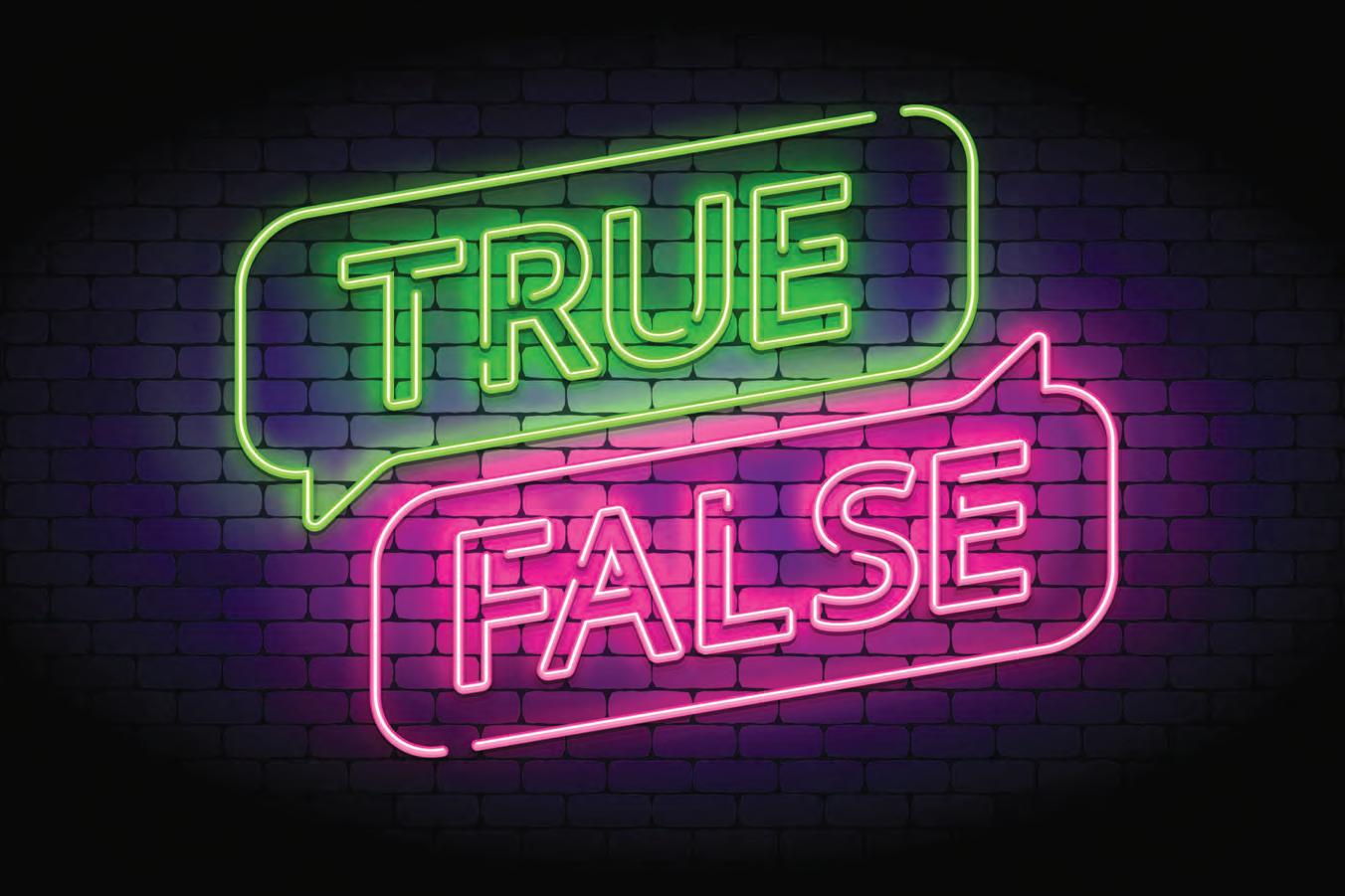
TALK
Is franchising really just for the affluent looking for a turnkey, “easy” path to success?
No, no, and no!
by AB IGRAM AND VINCENT ONYEMAH
Many people don’t understand franchising.
That’s something we’ve discovered throughout our careers, as we’ve studied how great companies grow. When we talk with university students, seasoned executives, and everyone in between, we frequently encounter myths about franchising. They say that franchises aren’t truly entrepreneurial businesses, for example, or that they can be run lazily. Wrong! We’ve seen firsthand
how franchising is an excellent model for companies looking to expand and scale, and how it provides incredible opportunities to individuals who want to be entrepreneurial and create economic and social value.
Here are three of the most common misconceptions that you should stop believing.
succeed on
MYTH #1 ▶ Franchising can succeed on autopilot. A successful franchise business requires many different partners. The franchisor creates the
brand, the franchisees expand that brand, and bankers and investors arrange financing for it all to come together.
However, there’s a persistent belief that franchisees have it easy. The argument goes like this: The franchisee just has to open the store, and the franchisor will take care of the rest. After all, isn’t there a playbook already written? Doesn’t the brand just run itself?
Wrong. If you have a fitness plan, that is not the same as actually exercising. The same is true for franchising: It’s great to have a plan, but franchisees need to work hard to execute it themselves.
A new franchisee must navigate a range of complex tasks. To start, there’s often real estate to build out, launches to plan, leadership teams to develop, and more. Once the business is operational, there are constant labor and supply chain management issues. Pretty much every franchisee and franchisor we speak to says that they needed grit, resilience, and an entrepreneurial mindset to succeed—even though, yes, the franchisor’s playbook made parts of the journey much less difficult.
“Franchises don’t run themselves,” Soosie Lazenby, who owns and operates four StretchLab franchises in the Tampa Bay metro area, told us. “There’s no such thing as a semi-absentee owner.” Similarly, Neal Faulkner, who went from a single Dunkin’ store 23 years ago to owning multiple locations and having 400 employees today, insists that “franchisees have to work in the business and be ready to do every single task!”
Franchising is an excellent opportunity—but only if you’re willing to do the work.
Franchising isn’t entrepreneurial. When people picture “entrepreneurship,” they often imagine starting a business from scratch. But it takes just as much creativity to scale something that already exists.
Faulkner, the Dunkin’ franchisee, is a great example. He grew up on a farm in Kansas, which he describes as a highly entrepreneurial environment. When he opened his first Dunkin’ location, it looked like opening a business from scratch: He had to figure out construction, conduct bank negotiations, manage his employees, and more.
Why do people think this isn’t entrepreneurial? Perhaps it’s because of the top-down model: A franchise gives franchisees a lot of direction and support. But many franchise locations are also laboratories for experimentation, where franchisees can develop new ideas that then spread to the rest of the brand. The McDonald’s Egg McMuffin, the Dunkin’ Munchkin and the Planet Fitness Black Card all began at the individual franchisee level. At Jiffy Lube, a franchisee’s new innovation could be distributed to all other stores within 48 hours!
Franchising can offer the best of both worlds—the chance to be entrepreneurial yourself and to benefit from others’ entrepreneurship. Amanda Bialek, an expert in franchise marketing, summarized it best: “Franchising provides the opportunity to tap into an entrepreneurial spirit with the guidance of a great playbook.”
Myth #3 ▶ Franchises aren’t local.
Some people view a franchise as an extension of a big corporation. But a lot of the time, franchise brands are run by
If you have a fitness plan, that is not the same as actually exercising. The same is true for franchising: It’s great to have a plan, but franchisees must work hard to execute it.
If you have a fitness that is not the same as exercising. The same is true for It’s great to have a but franchisees must to execute
individuals from the community. They are your neighbors, who are looking for a path to ownership and entrepreneurship. These locally owned and operated franchises then create local jobs and local social impact, generating community benefits.
Similarly, there’s a perception that franchising is only for wealthy people, and that those wealthy people are simply looking for a new business investment. But today’s franchisees are often younger, and they’re very invested in their company’s growth. Edible Arrangements, for instance, is seeing a lot of young franchise owners who use internet-driven tools to connect with customers. Franchisors launching a new brand can also be younger. Cousins Jim Tselikis and Sabin Lomac joined together to found Cousins Maine Lobster in their late 20s and early 30s—and secured a 15% equity investment from Barbara Corcoran on Shark Tank. Just as young people shouldn’t overlook franchising, neither should people interested in businesses outside of the typical restaurant brands like KFC or McDonald’s that people often think of as franchises. While franchising is an excellent model for the food industry, many other business-
es, from gyms to urgent care centers to dog daycares, have found success in the franchise model. Franchising is far more local and expansive—in terms of who entrepreneurs are and the types of businesses they operate—than you might expect.
The franchise model provides the opportunity to leverage a proven brand or service to achieve results. It offers the chance to be entrepreneurial. It offers room for growth—multi-unit franchisees now account for most franchise units in the United States. And despite perceptions, many kinds of people and types of businesses can embrace franchising.
Whether franchising is right for you depends on your goals and objectives and the quality of the franchisor. No matter what, success in franchising requires grit, leadership, and an entrepreneurial mindset. With those in hand, franchising can offer a resilient path to economic success.
Ab Igram teaches entrepreneurship and is executive director of the Tariq Farid Franchise Institute at Babson College. Dr. Vincent Onyemah is a professor and chair of the marketing division at Babson. Together they host the podcast Stars of Franchising: Stories of Inspiration & Entrepreneurial Grit.
After being laid off twice in two years, Josh Grinstead became a GYMGUYZ franchisee—and now makes more than $1 million in annual revenue. Here’s his playbook. by KIM KAVIN

Whe says, “or be brave enough to take that midcareer risk.” colleges. But on aptitude tests, he’d always scored high for entrepreneurial instincts. As a longtime fitness enthusiast, personal training services appealed to him—so in 2015, Grinstead bought three GYMGUYZ territories (GYMGUYZ is a handy acronym for Get You Motivated, Genuine, Unique, You can do it, Zero Excuses). Today, he owns 10 of them in New Jersey and New York. His annual revenue tops $1 million, he’s first in sales among GYMGUYZ franchisees in 22 states, and last year, the International Franchise Association named him a Franchisee of the Year. Here’s how he made it happen.
“No matter what [the franchisor] tells you about capital, go 20% higher,” Grinstead says. “You never know what you’ll need. You might want to spend more on marketing. You might want to spend more on equipment. You want that flexibility.” And when you’re choosing what to spend on, he says, find a mentor to consult with. “If you’re making decisions, you’ll feel better about them.”
All marketers have ideas, but not all deliver. “They say, ‘Oops, you didn’t get a sale from that $5,000 spread in the magazine? Well, good luck,’” Grinstead says. That’s why he prefers arrangements that reward success. “Maybe you pay them this much for the basics, but if they attain a measurable outcome, you’ll buy an additional amount of ads.”
Many franchisees try to become experts at everything—but that’s impossible, Grinstead says. For example, he hates accounting. “I learn enough to get by, to make sure we’re not getting robbed blind,” and then he hires people who are good at it, and commits to learning and improving along the way. “In truth,” he says, “if you have the right mindset for this, you’re never there.”
What makes Grinstead so successful? GYMGUYZ has an answer: It’s momentum. “He moves faster. He talks faster. He doesn’t complain. He doesn’t make excuses,” says GYMGUYZ founder Josh York. And that same energy keeps Grinstead pushing through tough times. “Just because you’re buying a franchise doesn’t mean it’s going to be easy,” York says. “You’ve got to push through those challenges. That’s what pays well.”




Private equity has profoundly changed the franchising landscape.
How will PE
Find out in this new book from franchise thought leader and consultant ALICIA MILLER
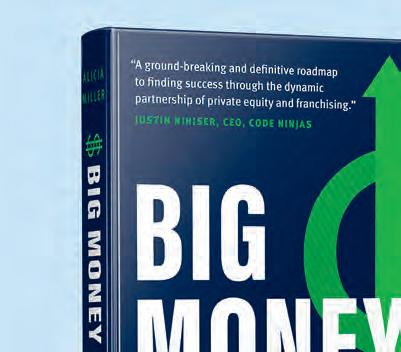
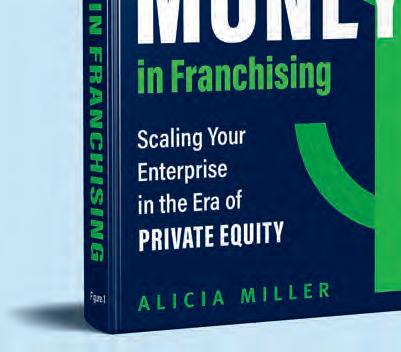

what readers are saying:
“A must-read for anyone looking to franchise their business or invest in a franchise.”
“If you’re a franchisee, you’ll learn how to scale and maximize your exit value.”
“Filled with deep insights and actionable advice for both newcomers and seasoned pros in the franchise game.”
“It took me 15 years of working with private equity to learn the things in this book–and I learned some of my lessons the hard way! Instead, you could just buy this book and read it. Do that. Today.”
learn more and pick up your copy


Want to grow your franchise? Invest heavily in your community. by SCOTT GREENBERG
The most successful franchisees do not obsess over profit. That might sound counterintuitive, but it shouldn’t be. These successful, wealthy people focus on bigger things. Their goals are loftier, and their vision is wider. They’re on a mission to make an impact—and it turns out that making an impact can also make you more money.
Often, franchisees think of charity as “giving back” to their community. But that implies you received something in the first place. Community service shouldn’t be a quid pro quo, and having a social impact shouldn’t
be about returning a favor or paying a debt. Give first. Donate first. Serve first.
In turn, your local community will appreciate you—and understand you as a local person operating a local business, even if it’s a franchise of a national or international brand. When they see your commitment to the community, they feel a commitment to you too.
Sometimes, this community commitment originates at the franchisor level. Jersey Mike’s is a great example. During the month of March, the restaurant chain invites guests to give as much money as they want. The cam-
paign culminates with the annual “Day of Giving,” when 100% of proceeds go to more than 200 local charities nationwide that include Special Olympics and the Flutie Foundation. In 2024 alone, this effort raised over $25 million. The company also identifies its most deserving managers and assistant managers and sets them up with their own shop—covering the lease and all the startup costs.
Another communityminded franchise is MiracleEar. Through its nonprofit Miracle-Ear Foundation, the company provides hearing aids to people who are unable to afford them. One of its franchise owners organizes an entire golf tournament to raise money for the foundation.
But if you’re a franchisee, you don’t need to wait for your franchisor to take the lead. Engage with your local charitable organizations. Donate to local PTAs, Little League clubs, and wherever your customers (or their kids) are.
Charitable work like this can be great marketing. Professionals
call it “cause marketing”—putting a spotlight on a brand’s social efforts instead of its professional offerings. It works because it helps customers feel connected to a brand. Yes, some people may feel that this is duplicitous. They may question the company’s motives, thinking the brand is only in it for the money. But most people simply don’t think like that— and the most generous brands don’t think that way either.
“I know this is supposed to be good for marketing, but we do it just because it’s the right thing to do,” says Gordon Logan, chairman of Sport Clips Haircuts. His company runs a “Haircuts with Heart” program, which supports veterans, families, and children in need, and partners with many charities. Even if you’re a young or new franchisee, or if your sales are down, you should start serving your community now. Do it without thinking of it as a tactic to grow your business or expecting anything in return. If you do, you’ll receive payoffs that far exceed money, even when it ends up leading to profit. Life will give back to you. But if all you really care about is maximizing revenue, the action you must take is the same: Think big, and give big.
What we build for ourselves matters less than what we build for others. In the end, we can’t take anything with us. All that will matter then is what we’ve left behind. Wealthy franchisees make plenty of money for themselves, but more importantly, they leave a legacy for the rest of us. Work in a way that contributes to your legacy.
This essay was excerpted from Scott Greenberg’s book, The Wealthy Franchisee. Find it at entrepreneur.com/bookstore.

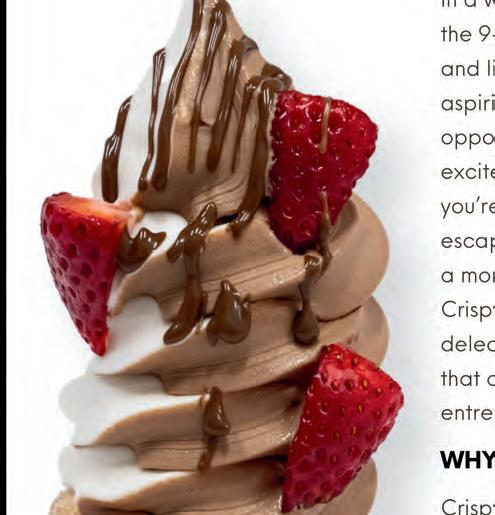

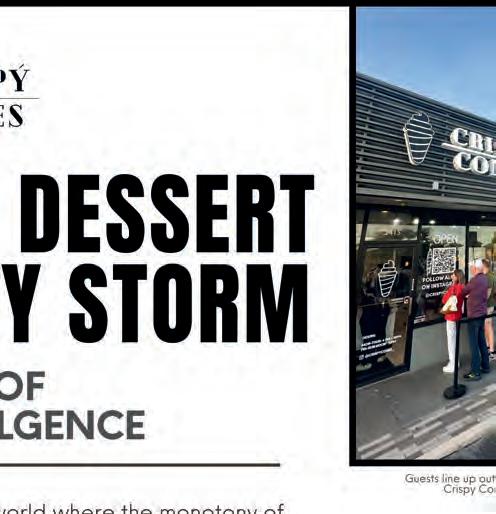
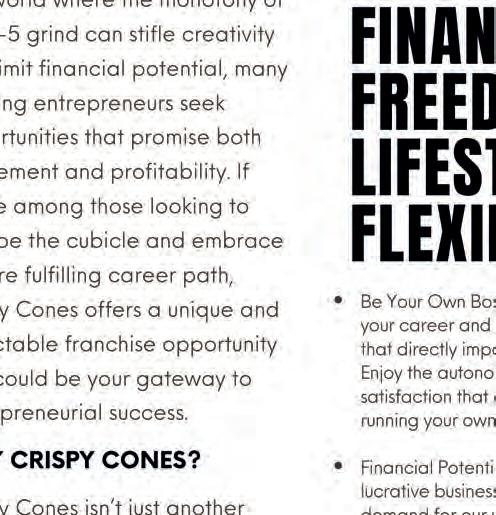
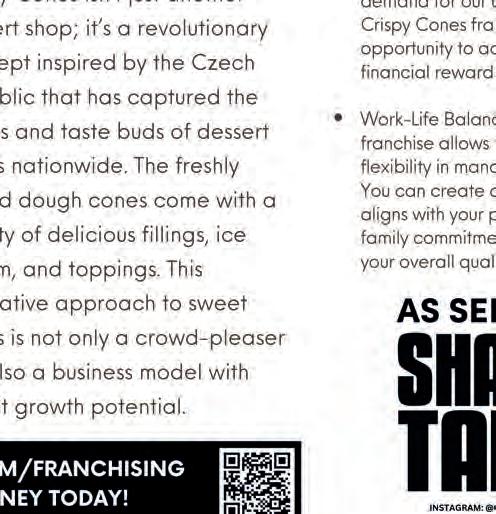

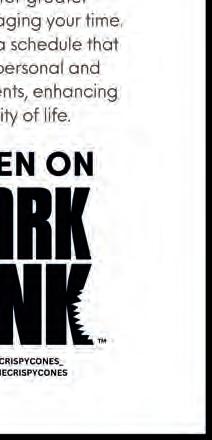








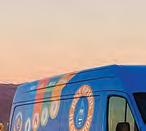
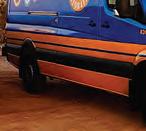






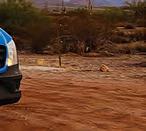








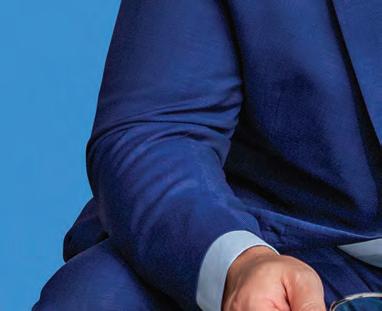








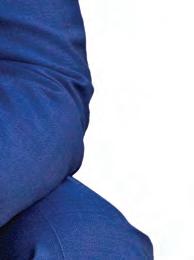






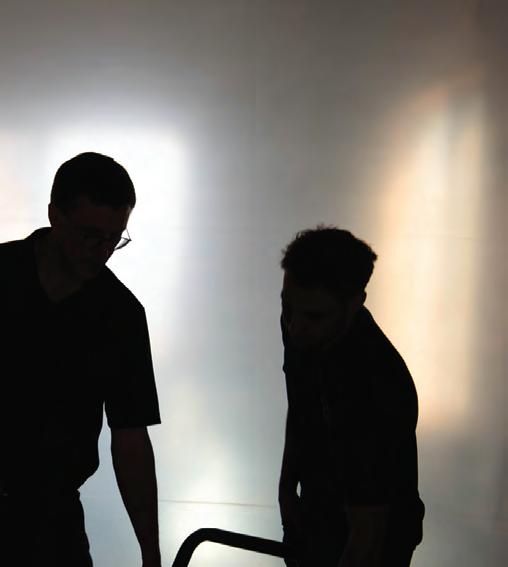

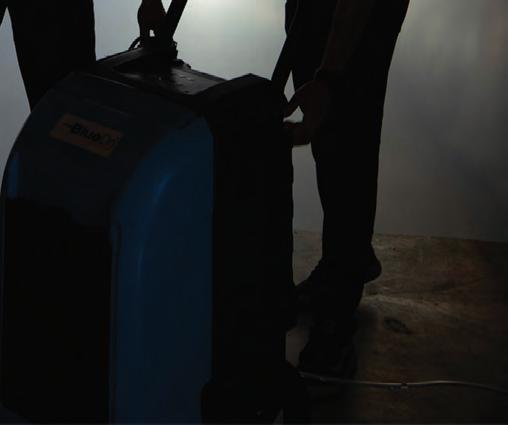




If you’re looking to buy a franchise, start with this list. We break down 10 of the industry’s hottest trends, and more than 400 brands to choose from. by
TRACY STAPP HEROLD
Where are the hottest franchise opportunities right now? Every year, we at Entrepreneur like to try answering that question. To do so, we consider a few factors: What trends are we seeing in the world at large? In which industries are we seeing new franchisors pop up? Which industries are seeing high unit growth? And what does our experience covering the franchise industry for over four decades tell us?
BEVERAGES pg. 24
CHICKEN pg. 26
ENRICHMENT PROGRAMS pg. 30
HEALTH & WELLNESS pg. 34
MEAL PREP/DELIVERY pg. 46
PEST CONTROL pg. 46
PETS pg. 48
RESTORATION pg. 51
SPORTS pg. 52
TUTORING pg. 58
We take those factors into account, and then we produce our predictions for the 10 categories we think will perform well in the near future. As always, this year’s list includes categories that have been thriving for a while, such as chicken, health and wellness, and pets. But you’ll find some exciting newcomers to this year’s list as well, including beverages, meal prep and delivery, and sports.
On the following pages, we share more than 400 franchise opportunities that are available within those categories—some that have been around for decades and others that are brand new. Keep in mind that inclusion on this list does not constitute a recommendation of any specific franchise. Even—and maybe especially—when you’re considering a franchise in a “hot” category, it’s important to do your homework first. Read the company’s legal documents, consult with an attorney and an accountant, and talk to current and former franchisees to decide if the brand and the opportunity are right for you.
Franchises oriented around drinks are becoming an ever-hotter commodity, perhaps because liquids tend to be more profitable and easier to prepare than meals. Coffee shops and juice bars have seen strong growth for a while, but the last few years have seen the market for boba and other teas explode as well.
Aroma Joe’s
Coffee, espresso, tea, energy drinks, baked goods
TOTAL UNITS
(FRANCHISED / CO.-OWNED) 105/0
STARTUP COST
$500.6K-$959.3K
Bad Ass Coffee of Hawaii
Hawaiian coffees, coffee blends, teas, blended drinks, food
TOTAL UNITS
(FRANCHISED / CO.-OWNED) 31/2
STARTUP COST
$454.2K-$920.5K
Bahama Buck’s
Shaved ice, fruit smoothies
TOTAL UNITS
(FRANCHISED / CO.-OWNED) 112/3
STARTUP COST
$444.6K-$1.2M
Bambu
Vietnamese dessert drinks and coffee drinks, boba tea, fruit tea, smoothies
TOTAL UNITS
(FRANCHISED / CO.-OWNED) 68/1
STARTUP COST
$159K-$328K
Beans & Brews
Coffee, tea, specialty drinks, food
TOTAL UNITS
(FRANCHISED / CO.-OWNED) 44/27
STARTUP COST
$518.5K-$761.5K
Beyond Juicery + Eatery Smoothies, juices, smoothie bowls, wraps, salads, soups
TOTAL UNITS

(FRANCHISED / CO.-OWNED) 40/3
STARTUP COST
$360.9K-$515.7K
Biggby Coffee
Specialty coffee, tea, smoothies, baked goods
TOTAL UNITS
(FRANCHISED / CO.-OWNED) 360/0
STARTUP COST
$246.3K-$564.6K
Bliss Tea & Treats Teas and food
TOTAL UNITS
(FRANCHISED / CO.-OWNED) 0/1
STARTUP COST
$97.95K-$166.7K
Boba Nation
Bubble tea and other beverages
TOTAL UNITS
(FRANCHISED / CO.-OWNED) 1/3
STARTUP COST
$350K-$495.5K
City Brew Tours
Educational craft brewery tours
TOTAL UNITS
(FRANCHISED / CO.-OWNED) 9/11
STARTUP COST
$78.2K-$101.5K
Clean Juice
Organic juices, smoothies, acai bowls, wraps, sandwiches, salads, toast
TOTAL UNITS
(FRANCHISED / CO.-OWNED) 117/10
STARTUP COST
$279K-$685.5K
Dunkin’
Coffee, doughnuts, baked goods
TOTAL UNITS
(FRANCHISED / CO.-OWNED) 13,372/0
STARTUP COST
$437.5K-$1.8M
Ellianos Coffee Specialty coffee and smoothies
TOTAL UNITS
(FRANCHISED / CO.-OWNED)
52/0
STARTUP COST
$634.5K-$946.5K
Fiiz Drinks
Mixed sodas and snacks
TOTAL UNITS
(FRANCHISED / CO.-OWNED) 62/3
STARTUP COST
$232K-$497K
Fresh Healthy Cafe
Smoothies, juices, wraps, panini, salads, bowls, coffee, tea
TOTAL UNITS
(FRANCHISED / CO.-OWNED) 23/0
STARTUP COST
$202.5K-$409K
The Fresh Monkee Protein shakes
TOTAL UNITS
(FRANCHISED / CO.-OWNED) 0/5
STARTUP COST
$132.2K-$305.2K
Gong cha Bubble tea
TOTAL UNITS
(FRANCHISED / CO.-OWNED) 1505/497
STARTUP COST
$161.7K-$593.7K
Hoppin’
Self-pour beer, wine, and cocktail taprooms
TOTAL UNITS (FRANCHISED / CO.-OWNED) 1/2
STARTUP COST
$1.1M-$1.9M
HTeaO
Iced tea and coffee
TOTAL UNITS (FRANCHISED / CO.-OWNED) 112/6
STARTUP COST
$238.2K-$1.9M
The Human Bean Specialty coffee
TOTAL UNITS
(FRANCHISED / CO.-OWNED) 137/12
STARTUP COST
$552.4K-$1.1M
Jamba Smoothies, juices, and bowls
TOTAL UNITS
(FRANCHISED / CO.-OWNED) 794/2
STARTUP COST
$129.8K-$1M
Juice It Up!
Smoothies, raw juices, acai bowls
TOTAL UNITS
(FRANCHISED / CO.-OWNED) 85/1
STARTUP COST
$236.4K-$632.3K
Kale Me Crazy Smoothies, juices, salads, wraps, toasts, bowls
TOTAL UNITS
(FRANCHISED / CO.-OWNED) 21/3
STARTUP COST
$321.4K-$572K
Kung Fu Tea Bubble tea
TOTAL UNITS (FRANCHISED / CO.-OWNED) 373/2
STARTUP COST
$169K-$378K
Martini Spa & Lounge Bar and lounge offering spa and salon services
TOTAL UNITS
(FRANCHISED / CO.-OWNED) 1/1
STARTUP COST
$80K-$552.8K
Mr Brews Taphouse Craft brew pubs
TOTAL UNITS
(FRANCHISED / CO.-OWNED) 11/2
STARTUP COST
$436.5K-$877K
Nekter Juice Bar Juices, smoothies, acai bowls, nondairy ice cream
TOTAL UNITS
(FRANCHISED / CO.-OWNED) 168/31
STARTUP COST
$226K-$684.6K
OneZo Texas Bubble tea
TOTAL UNITS
(FRANCHISED / CO.-OWNED) 0/1
STARTUP COST
$211.3K-$327.3K
Pedal Pub Party bike tours
TOTAL UNITS
(FRANCHISED / CO.-OWNED) 20/1
STARTUP COST
$117.5-$270.4K
PJ’s Coffee of New Orleans Coffee, tea, pastries, sandwiches
TOTAL UNITS
(FRANCHISED / CO.-OWNED) 181/0
STARTUP COST
$459K-$1.2M
Planet Smoothie Smoothies and snacks
TOTAL UNITS
(FRANCHISED / CO.-OWNED) 160/0
STARTUP COST
$195.7K-$446.5K
Pure Green Smoothies, cold-pressed juices, acai and pitaya bowls
TOTAL UNITS (FRANCHISED / CO.-OWNED) 23/9
STARTUP COST
$170.5K-$425.4K
Robeks Fresh Juices & Smoothies
Juices, smoothies, bowls
TOTAL UNITS
(FRANCHISED / CO.-OWNED) 97/2
STARTUP COST
$320.4K-$484.4K
The Rocket Fizz Soda Pop and Candy Shops Candy, soda, and gift stores
TOTAL UNITS
(FRANCHISED / CO.-OWNED) 96/0
STARTUP COST
$124.9K-$266K
The Rush Coffee Mobile coffee, tea, smoothies, Italian sodas, baked goods
TOTAL UNITS
(FRANCHISED / CO.-OWNED) 3/2
STARTUP COST
$47.1K-$202.3K
Scooter’s Coffee Coffee, espresso, smoothies, pastries, breakfast items
TOTAL UNITS
(FRANCHISED / CO.-OWNED) 630/21
STARTUP COST
$894.5K-$1.4M
Smoothie Factory + Kitchen
Smoothies, juices, nutritional supplements
TOTAL UNITS (FRANCHISED / CO.-OWNED) 55/0
STARTUP COST
$182.5K-$474.7K
Smoothie King
Smoothies and smoothie bowls
TOTAL UNITS
(FRANCHISED / CO.-OWNED) 1,297/57
STARTUP COST
$311.6K-$1.4M
Social Play Haus Beer garden and event space
TOTAL UNITS (FRANCHISED / CO.-OWNED) 0/1
STARTUP COST
$650.1K-$1.3M
The Spice & Tea Exchange Spices, teas, olive oils, honeys, salts, soy candles
TOTAL UNITS (FRANCHISED / CO.-OWNED) 87/1
STARTUP COST
$194.7K-$395.3K
Sugar Tree Cafe Coffee, tea, milkshakes, brunch
TOTAL UNITS (FRANCHISED / CO.-OWNED) 0/1
STARTUP COST
$155.3K-$281.5K
Tapioca Express Tea and snow-bubble beverages, snacks
TOTAL UNITS
(FRANCHISED / CO.-OWNED) 22/0
STARTUP COST
$140K-$553.8K
Tapville Social Self-service beer taproom restaurants/kiosks/mobile units
TOTAL UNITS (FRANCHISED / CO.-OWNED) 23/1
STARTUP COST
$134.8K-$1.4M
TeaCupFuls
Boba tea
TOTAL UNITS
(FRANCHISED / CO.-OWNED) 0/4
STARTUP COST
$180K-$350K
ThirsTea
Bubble and milk tea, smoothies, milkshakes
TOTAL UNITS
(FRANCHISED / CO.-OWNED) 1/2
STARTUP COST
$177.6K-$256.2K
Tropical Smoothie Cafe
Smoothies, salads, wraps, sandwiches, flatbreads
TOTAL UNITS
(FRANCHISED / CO.-OWNED) 1,311/1
STARTUP COST
$296.5K-$661.5K
The Urban Bean Coffees, beverages, snacks, meals
TOTAL UNITS
(FRANCHISED / CO.-OWNED) 0/1
STARTUP COST
$261.1K-$491.8K
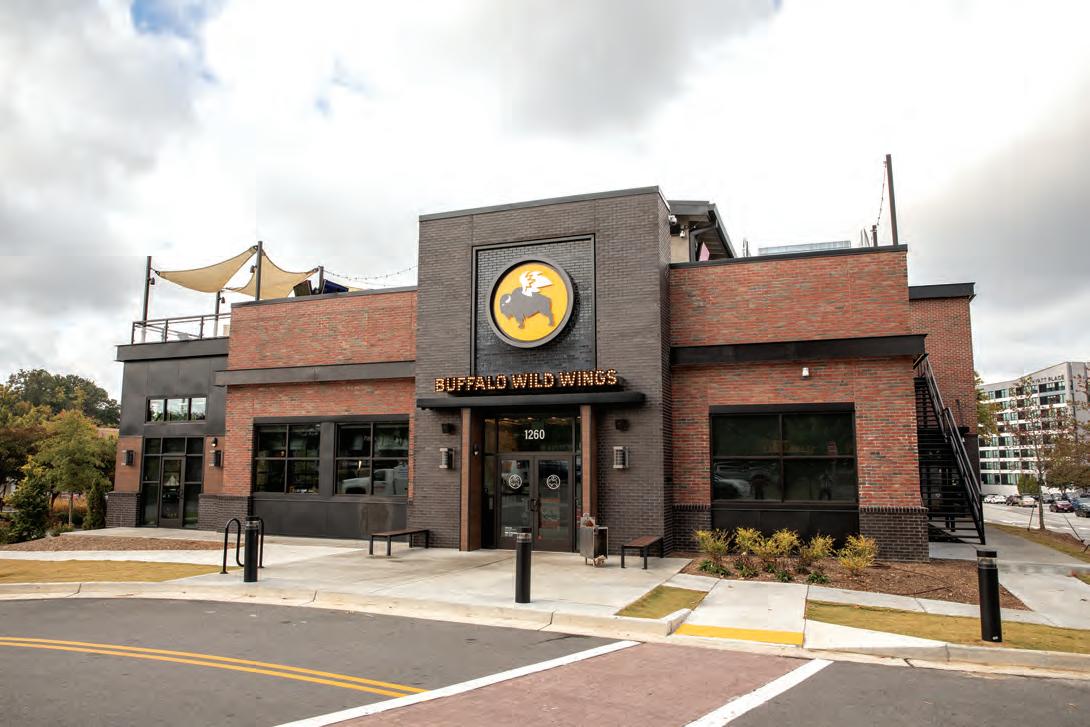
Voodoo Brewing Co.
Craft brew pubs
TOTAL UNITS (FRANCHISED / CO.-OWNED) 11/5
STARTUP COST
$479K-$1.1M
Waters Edge Wineries Micro-wineries
TOTAL UNITS
(FRANCHISED / CO.-OWNED) 13/0
STARTUP COST
$829.96K-$1.3M
WineStyles Tasting Station Wine, craft beer, food, events, wine and beer club memberships
TOTAL UNITS
(FRANCHISED / CO.-OWNED) 10/1
STARTUP COST
$230.5K-$475.5K
Ziggi’s Coffee Coffee, specialty drinks, energy drinks, breakfast and lunch items
TOTAL UNITS (FRANCHISED / CO.-OWNED) 86/7
STARTUP COST
$466.5K-$1.8M
Why does chicken appear on this list year after year? Maybe because of its versatility. Get it fried or grilled, in the form of sandwiches, tenders, or wings, and in traditional, spicy, or even internationally inspired flavors. No matter how you prefer your bird—or your business—there’s plenty of tasty opportunity.
Big Chicken
Chicken sandwiches and tenders, salads, sides, desserts
TOTAL UNITS
(FRANCHISED / CO.-OWNED) 8/3
STARTUP COST
$681.5K-$1.5M
Bojangles
Chicken and biscuits
TOTAL UNITS
(FRANCHISED / CO.-OWNED) 519/279
STARTUP COST
$622.5K-$3.6M
HOTTEST FRANCHISE TRENDS 2024
Bonchon Korean Fried Chicken
Korean fried chicken
TOTAL UNITS
(FRANCHISED / CO.-OWNED) 410/5
STARTUP COST
$202.6K-$1.2M
Boss Bird Kitchen Chicken sandwiches, tenders, wings, waffles
TOTAL UNITS
(FRANCHISED / CO.-OWNED) 0/1
STARTUP COST
$239.1K-$494.4K
The Budlong Hot Chicken
Spicy fried chicken, sandwiches, sides, desserts
TOTAL UNITS
(FRANCHISED / CO.-OWNED) 0/4
STARTUP COST
$178K-$989.5K
Buffalo’s Cafe Chicken wings and tenders, steaks, burgers, salads
TOTAL UNITS
(FRANCHISED / CO.-OWNED) 13/0
STARTUP COST
$568K-$2.5M
Buffalo Wild Wings Wings, bar food, alcohol
TOTAL UNITS
(FRANCHISED / CO.-OWNED) 593/659
STARTUP COST
$2.5M-$4.8M
Champs Chicken Fried chicken, seafood, sides
TOTAL UNITS (FRANCHISED / CO.-OWNED) 408/1
STARTUP COST
$9K-$349K
Chester’s Fried chicken
TOTAL UNITS (FRANCHISED / CO.-OWNED) 1,092/0
STARTUP COST
$27.5K-$296.5K
Chicken Salad Chick Chicken salads, soups, sides
TOTAL UNITS
(FRANCHISED / CO.-OWNED) 173/68
STARTUP COST
$744.5K-$990.5K
Chick N Max Chicken wings, tenders, and sandwiches
TOTAL UNITS (FRANCHISED / CO.-OWNED) 2/3
STARTUP COST
$420K-$1.1M





















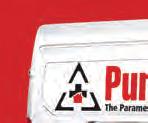




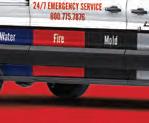
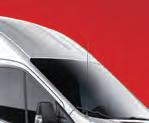
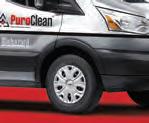




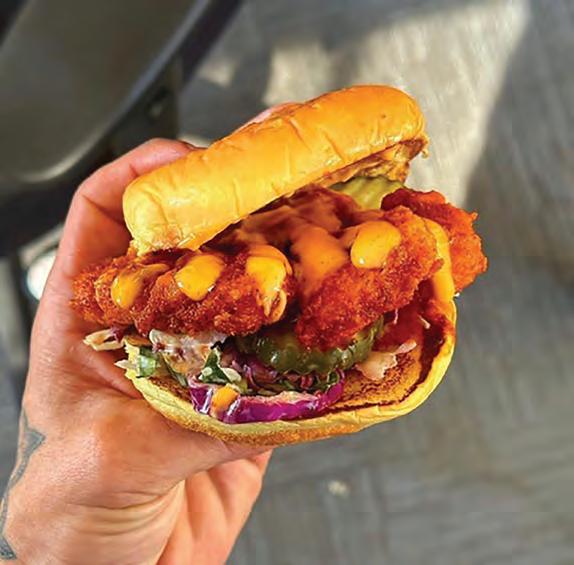
Church’s Texas Chicken Chicken
TOTAL UNITS
(FRANCHISED / CO.-OWNED)
1,377/158
STARTUP COST
$648.9K-$1.9M
Daddy’s Chicken Shack Chicken sandwiches and fingers, breakfast, sides
TOTAL UNITS
(FRANCHISED / CO.-OWNED) 1/1
STARTUP COST
$748.3K-$1.1M
Dave’s Hot Chicken
Nashville hot chicken
TOTAL UNITS
(FRANCHISED / CO.-OWNED) 133/19
STARTUP COST
$615.8K-$1.8M
Detroit Wing Company Chicken wings
TOTAL UNITS
(FRANCHISED / CO.-OWNED) 23/1
STARTUP COST
$378.9K-$747.6K
East Coast Wings + Grill
Wings, burgers, craft beer
TOTAL UNITS
(FRANCHISED / CO.-OWNED)
30/4
STARTUP COST
$428.9K-$982.8K
El Pollo Loco
Grilled chicken and Mexican food
TOTAL UNITS
(FRANCHISED / CO.-OWNED) 309/188
STARTUP COST
$768.8K-$2.6M
Fyrebird Chicken Chicken sandwiches, wings, and sides
TOTAL UNITS
(FRANCHISED / CO.-OWNED) 0/1
STARTUP COST
$69.8K-$97.7K
Gai Chicken and Rice Thai chicken and rice dishes
TOTAL UNITS
(FRANCHISED / CO.-OWNED) 0/2
STARTUP COST
$302.9K-$435.4K
Golden Chick Chicken
TOTAL UNITS
(FRANCHISED / CO.-OWNED) 197/15
STARTUP COST
$1.2M-$1.9M
Guthrie’s Chicken fingers
TOTAL UNITS
(FRANCHISED / CO.-OWNED) 34/17
STARTUP COST
$234.1K-$737K
Hangry Joe’s Hot Chicken Hot chicken sandwiches
TOTAL UNITS
(FRANCHISED / CO.-OWNED) 43/1
STARTUP COST
$238.5K-$421K
Hurricane Grill & Wings Chicken wings, tenders, sandwiches, salads
TOTAL UNITS (FRANCHISED / CO.-OWNED) 41/0
STARTUP COST
$564.2K-$2.5M
KFC Chicken
TOTAL UNITS
(FRANCHISED / CO.-OWNED) 28,257/218
STARTUP COST
$1.9M-$3.8M
Layne’s Chicken Fingers Chicken tenders
TOTAL UNITS
(FRANCHISED / CO.-OWNED) 7/4
STARTUP COST
$545K-$1.2M
Lee’s Famous Recipe Chicken Chicken, biscuits, sides
TOTAL UNITS
(FRANCHISED / CO.-OWNED) 110/16
STARTUP COST
$428.3K-$2.1M
Love & Honey Fried Chicken Fried chicken
TOTAL UNITS
(FRANCHISED / CO.-OWNED) 0/1
STARTUP COST
$518.9K-$749.7K
Native Grill & Wings Family sports bars and grills
TOTAL UNITS
(FRANCHISED / CO.-OWNED) 22/0
STARTUP COST
$1.2M-$2.3M
Nick and Moes
Convenience stores offering fried chicken
TOTAL UNITS (FRANCHISED / CO.-OWNED) 0/6
STARTUP COST
$104.5K-$900.8K
Ooowwweee Wangz N Catfish
Chicken wings and fried catfish
TOTAL UNITS (FRANCHISED / CO.-OWNED) 0/2
STARTUP COST
$155.9K-$277.9K
Pollo Campero Chicken
TOTAL UNITS (FRANCHISED / CO.-OWNED) 75/284
STARTUP COST
$1.4M-$3.1M
Popeyes Louisiana Kitchen Fried chicken, seafood, biscuits
TOTAL UNITS (FRANCHISED / CO.-OWNED) 4,050/41
STARTUP COST
$383.5K-$3.7M
Rise Southern Biscuits & Righteous Chicken Biscuits and chicken
TOTAL UNITS (FRANCHISED / CO.-OWNED) 14/4
STARTUP COST
$410.1K-$638.6K
Rooster & Rice Thai chicken rice
TOTAL UNITS (FRANCHISED / CO.-OWNED) 0/8
STARTUP COST
$325.6K-$468K
Slim Chickens
Chicken tenders, chicken wings, salads, sandwiches, wraps
TOTAL UNITS (FRANCHISED / CO.-OWNED) 203/11
STARTUP COST
$1.6M-$4.4M
375 Chicken ‘n Fries Chicken, waffles, fries, shakes
TOTAL UNITS
(FRANCHISED / CO.-OWNED) 4/3
STARTUP COST
$324.1K-$521.5K
























• Low initial investment starting at $154,506




• Over 34% higher 2022 average revenue than our closest competitor
• Nearly 50 years as an industry leader
• $5 billion industry and projected to grow to $18 billion by 2028
(Source: Grand View Research)

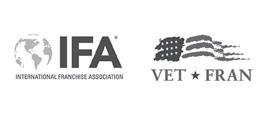

VooDoo Wing Company
Wings, salads, sandwiches, sides, desserts
TOTAL UNITS
(FRANCHISED / CO.-OWNED) 2/5
STARTUP COST
$207.8K-$475.95K
Wing It On!
Chicken wings, sandwiches, and tenders
TOTAL UNITS
(FRANCHISED / CO.-OWNED) 10/2
STARTUP COST
$210.5K-$440K
Wings and Rings
Sports restaurants and bars
TOTAL UNITS
(FRANCHISED / CO.-OWNED)
79/8
STARTUP COST
$1.5M-$1.99M
Wings Etc. Restaurants and pubs
TOTAL UNITS
(FRANCHISED / CO.-OWNED) 55/25
STARTUP COST
$343.9K-$2.8M
Wing Snob
Chicken wings
TOTAL UNITS
(FRANCHISED / CO.-OWNED) 28/0
STARTUP COST
$330.2K-$599.5K
Wingstop
Chicken wings, tenders, and sandwiches, fries, sides
TOTAL UNITS
(FRANCHISED / CO.-OWNED) 2,001/45
STARTUP COST
$325.6K-$974.7K
Wing Zone
Chicken wings, tenders, and sandwiches
TOTAL UNITS
(FRANCHISED / CO.-OWNED) 57/2
STARTUP COST
$420.8K-$751K
Zaxby’s
Chicken fingers, Buffalo wings, sandwiches, salads
TOTAL UNITS
(FRANCHISED / CO.-OWNED) 776/146
STARTUP COST
$1.4M-$3.3M
The children’s enrichment industry is ever-expanding, with offerings in art, music, cooking, science, fitness, and more. Why? Parents recognize the importance of programs that go beyond traditional education to help kids develop skills that will help them later in life. They’re investing in their children’s futures, and franchises are rising to the task.

Abrakadoodle
Art-education programs for children
TOTAL UNITS
(FRANCHISED / CO.-OWNED) 481/2
STARTUP COST
$38.7K-$82.6K
Apex Leadership Co. Elementary-school fundraising and fitness programs
TOTAL UNITS
(FRANCHISED / CO.-OWNED) 114/8
STARTUP COST
$79K-$113.7K
Art Paper Scissors
Art classes, programs, and parties
TOTAL UNITS
(FRANCHISED / CO.-OWNED) 1/1
STARTUP COST
$86.5K-$144.2K
Baby Power Forever Kids Play and enrichment programs
TOTAL UNITS
(FRANCHISED / CO.-OWNED) 21/1
STARTUP COST
$160K-$198K
Bach to Rock Music schools for children and adults
TOTAL UNITS
(FRANCHISED / CO.-OWNED) 45/12
STARTUP COST
$241.5K-$531.5K
Brooklyn Robot Foundry STEAM enrichment programs
TOTAL UNITS
(FRANCHISED / CO.-OWNED) 5/1
STARTUP COST
$90.8K-$117.2K
Bundles of Tumbles Mobile preschool gymnastics and dance classes
TOTAL UNITS
(FRANCHISED / CO.-OWNED) 1/1
STARTUP COST
$46.1K-$59.7K
The Bunny Hive Social clubs for children from twoweeks-old through kindergarten and their caregivers
TOTAL UNITS
(FRANCHISED / CO.-OWNED) 0/2
STARTUP COST
$144.5K-$235.9K
Challenge Island Educational enrichment programs
TOTAL UNITS
(FRANCHISED / CO.-OWNED) 14/4
STARTUP COST
$53.4K-$68.9K
Chef It Up!/Chef It Up 2 Go! Allergy-friendly cooking parties, classes, and events
TOTAL UNITS
(FRANCHISED / CO.-OWNED) 14/0
STARTUP COST
$30.1K-$73.4K
Children’s Art Classes
Children’s art education studios
TOTAL UNITS
(FRANCHISED / CO.-OWNED) 9/0
STARTUP COST
$99.4K-$198.96K
Club SciKidz STEM enrichment programs
TOTAL UNITS
(FRANCHISED / CO.-OWNED) 12/1
STARTUP COST
$63.7K-$76K
Code Ninjas
Computer-coding learning centers for ages 5 and up
TOTAL UNITS
(FRANCHISED / CO.-OWNED) 378/7
STARTUP COST
$149.8K-$378.1K
theCoderSchool Coding education for ages 7 to 18
TOTAL UNITS
(FRANCHISED / CO.-OWNED) 57/3
STARTUP COST
$77.7K-$193.95K
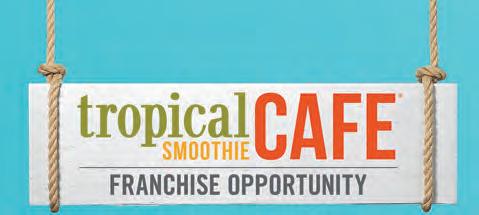




























































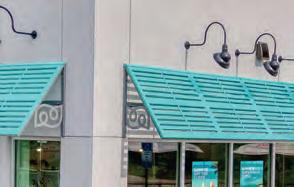






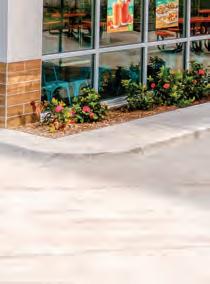
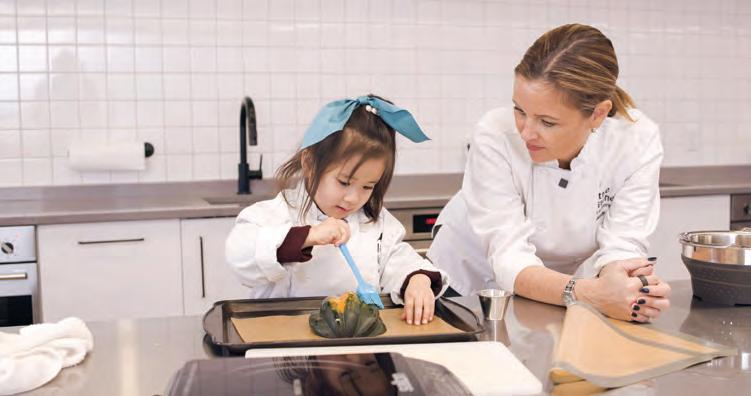
Code Wiz
Coding, robotics, and STEM enrichment classes and camps for ages 7 to 17
TOTAL UNITS
(FRANCHISED / CO.-OWNED) 14/1
STARTUP COST
$150K-$237.4K
CompuChild Entrepreneurship and STEAM enrichment classes
TOTAL UNITS (FRANCHISED / CO.-OWNED) 9/7
STARTUP COST
$29.5K-$49.5K
Drama Kids
After-school drama classes and summer camps
TOTAL UNITS (FRANCHISED / CO.-OWNED) 212/0
STARTUP COST
$33.8K-$73.5K
DroneTogether Drone-flying and STEM enrichment programs
TOTAL UNITS (FRANCHISED / CO.-OWNED) 0/1
STARTUP COST
$39.3K-$61.7K
Flour Power Kids Cooking Studios
Children’s cooking classes, parties, and events
TOTAL UNITS
(FRANCHISED / CO.-OWNED) 16/0
STARTUP COST
$189.7K-$405.8K
Funtastik Labs
STEAM entertainment
TOTAL UNITS
(FRANCHISED / CO.-OWNED) 0/1
STARTUP COST
$257.3K-$352.3K
iCode
Computer science education for children in grades K-12
TOTAL UNITS
(FRANCHISED / CO.-OWNED) 29/2
STARTUP COST
$249K-$408K
Idea Lab Kids
STEAM enrichment classes, camps, and parties
TOTAL UNITS
(FRANCHISED / CO.-OWNED) 1/1
STARTUP COST
$163K-$465K
iKids U Educational after-school programs
TOTAL UNITS
(FRANCHISED / CO.-OWNED) 1/0
STARTUP COST
$95.9K-$140.7K
Kidcreate Studio
Children’s art enrichment
TOTAL UNITS
(FRANCHISED / CO.-OWNED) 21/2
STARTUP COST
$58.3K-$234.4K
Kidokinetics
Mobile children’s physical education programs
TOTAL UNITS
(FRANCHISED / CO.-OWNED) 101/6
STARTUP COST
$103K-$134.2K
KidStrong
Physical fitness, leadership, and confidence-building training for children
TOTAL UNITS (FRANCHISED / CO.-OWNED)
STARTUP COST
$313.2K-$664.2K
KidzArt
Art-education programs, products, and services
TOTAL UNITS
(FRANCHISED / CO.-OWNED) 25/0
STARTUP COST
$23.8K-$37.2K
Kinderdance Children’s dance, gymnastics, movement, fitness, and yoga programs
TOTAL UNITS (FRANCHISED / CO.-OWNED) 230/4
STARTUP COST
$18.3K-$47.8K
The Knight School Chess enrichment activities
TOTAL UNITS (FRANCHISED / CO.-OWNED) 22/2
STARTUP COST
$450-$25.2K
LearningRx
One-on-one cognitive training for all ages
TOTAL UNITS
(FRANCHISED / CO.-OWNED) 47/1
STARTUP COST
$145K-$200K
The Little Gym Child development/fitness programs
TOTAL UNITS (FRANCHISED / CO.-OWNED) 370/1
STARTUP COST
$465.3K-$637K
Little Kitchen Academy Children’s cooking classes
TOTAL UNITS
(FRANCHISED / CO.-OWNED) 12/2
STARTUP COST
$409.3K-$746.8K
Little Medical School
Healthcare-themed after-school and summer-camp programs
TOTAL UNITS (FRANCHISED / CO.-OWNED) 40/4
STARTUP COST
$58.2K-$226.9K
Little Yogis Academy Movement and mindfulness enrichment for children
TOTAL UNITS (FRANCHISED / CO.-OWNED) 6/2
STARTUP COST
$29.7K-$42.9K
Mad Science Science education and entertainment programs
TOTAL UNITS (FRANCHISED / CO.-OWNED) 110/8
STARTUP COST
$113.3K-$312.96K
Musicologie Music lessons for all ages
TOTAL UNITS (FRANCHISED / CO.-OWNED) 0/6
STARTUP COST
$111.8K-$221.1K
New England Dance Academy Dance classes
TOTAL UNITS (FRANCHISED / CO.-OWNED) 0/1
STARTUP COST
$108.7K-$137.1K
Nutty Scientists Science enrichment and entertainment programs
TOTAL UNITS (FRANCHISED / CO.-OWNED) 309/4
STARTUP COST
$35.5K-$149.8K
Parker-Anderson Enrichment Enrichment programs
TOTAL UNITS (FRANCHISED / CO.-OWNED) 14/1
STARTUP COST
$43.7K-$130.7K
Rockstars of Tomorrow Music lessons and music equipment
TOTAL UNITS
(FRANCHISED / CO.-OWNED) 7/3
STARTUP COST
$195.5K-$472K















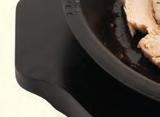












































































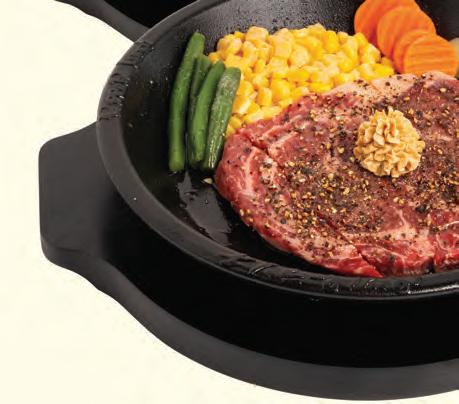


















Romp n’ Roll
Recreational and enrichment classes, camps, parties
TOTAL UNITS
(FRANCHISED / CO.-OWNED) 7/2
STARTUP COST
$198.5K-$396.5K
School of Rock Music education
TOTAL UNITS
(FRANCHISED / CO.-OWNED) 292/46
STARTUP COST
$441K-$593.9K
Singers Company
Noncompetitive music and dance performing groups for girls
TOTAL UNITS
(FRANCHISED / CO.-OWNED) 53/0
STARTUP COST
$4.7K-$31.7K
Skill Samurai
STEM and coding academies
TOTAL UNITS
(FRANCHISED / CO.-OWNED) 21/0
STARTUP COST
$74.6K-$307.95K
Snapology
STEAM education programs
TOTAL UNITS
(FRANCHISED / CO.-OWNED) 156/3
STARTUP COST
$73.7K-$611.8K
Stemtree
Science, coding, robotics, electronics, and math programs
TOTAL UNITS
(FRANCHISED / CO.-OWNED) 14/1
STARTUP COST
$83.8K-$179.8K
Sticky Fingers Cooking
After-school enrichment cooking schools for children
TOTAL UNITS
(FRANCHISED / CO.-OWNED) 5/2
STARTUP COST
$77.5K-$125.4K
Taste Buds Kitchen Cooking classes, camps, and parties for children and adults
TOTAL UNITS (FRANCHISED / CO.-OWNED) 10/2
STARTUP COST
$382.5K-$531K
Tutu School
Children’s ballet schools
TOTAL UNITS
(FRANCHISED / CO.-OWNED)
80/4
STARTUP COST
$89.1K-$158.3K
Twinkle Star Dance Academy
Dance studios for ages 2 to teens
TOTAL UNITS
(FRANCHISED / CO.-OWNED) 3/4
STARTUP COST
$101.6K-$200.3K
Valhallan
Youth esports training
TOTAL UNITS
(FRANCHISED / CO.-OWNED) 14/1
STARTUP COST
$142.2K-$305.4K
Wize Computing Academy
Coding, robotics, and design classes, camps, and competition prep
TOTAL UNITS
(FRANCHISED / CO.-OWNED) 24/2
STARTUP COST
$47K-$78K
XP League
Youth esports leagues
TOTAL UNITS
(FRANCHISED / CO.-OWNED) 45/2
STARTUP COST
$79.4K-$171.3K
Young Chefs Academy
Cooking schools for children and adults
TOTAL UNITS
(FRANCHISED / CO.-OWNED) 28/1
STARTUP COST
$150.4K-$199.9K
Youth Enrichment League
After-school and summer enrichment camps
TOTAL UNITS
(FRANCHISED / CO.-OWNED) 2/3
STARTUP COST
$57.3K-$83.1K
Zebra Robotics
Robotics, coding, and technology education centers for grades 1 through 12
TOTAL UNITS
(FRANCHISED / CO.-OWNED) 7/6
STARTUP COST
$160K-$320K
Health and wellness once again makes our list, as consumers continue to place a high priority on their physical— and mental—well-being. Once again, the biggest trend-within-thetrend is nontraditional wellness services, such as IV vitamin therapy, CBD, infrared saunas, cryotherapy, chiropractic care, and more.
Ageless Fitness Fitness programs for seniors
TOTAL UNITS
(FRANCHISED / CO.-OWNED) 1/1
STARTUP COST
$76.3K-$134.3K
Ageless Forever Institute
Cosmetic and body fitness therapies and medical aesthetic procedures
TOTAL UNITS
(FRANCHISED / CO.-OWNED) 0/1
STARTUP COST
$403.5K-$784.5K
AKT
Dance cardio and strength fitness studios
TOTAL UNITS
(FRANCHISED / CO.-OWNED) 17/20
STARTUP COST
$444.3K-$550.3K
Alloy Personal Training Small group personal training
TOTAL UNITS
(FRANCHISED / CO.-OWNED) 31/1
STARTUP COST
$185.3K-$452.4K
All States Med Medical equipment sales, repairs, and customer service
TOTAL UNITS
(FRANCHISED / CO.-OWNED) 0/1
STARTUP COST
$188.5K-$255.5K
American Family Care Urgent care/primary care centers
TOTAL UNITS (FRANCHISED / CO.-OWNED) 252/79
STARTUP COST
$1.2M-$1.7M
Amped Fitness Gyms
TOTAL UNITS (FRANCHISED / CO.-OWNED) 0/13
STARTUP COST
$356.5K-$3.6M
Any Lab Test Now Health and wellness, drug and alcohol, and DNA lab testing services
TOTAL UNITS (FRANCHISED / CO.-OWNED) 231/7
STARTUP COST
$144.2-$237.9K
Anytime Fitness Fitness centers
TOTAL UNITS (FRANCHISED / CO.-OWNED) 5,184/12
STARTUP COST
$388.97K-$970.1K
ApexNetwork Physical Therapy Physical therapy
TOTAL UNITS (FRANCHISED / CO.-OWNED) 26/66
STARTUP COST
$177.2K-$347.2K
Avanti Body Wellness and self-care services
TOTAL UNITS (FRANCHISED / CO.-OWNED) 2/2
STARTUP COST
$291.2K-$579.8K
Balensi Spa Facial and massage services
TOTAL UNITS (FRANCHISED / CO.-OWNED) 0/1
STARTUP COST
$182.9K-$432.8K
The Bar Method Barre fitness studios
TOTAL UNITS (FRANCHISED / CO.-OWNED) 74/1
STARTUP COST
$386.5K-$537.3K


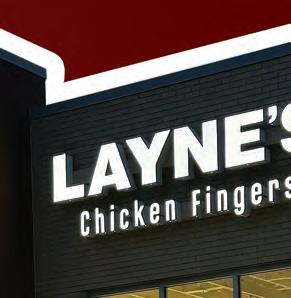


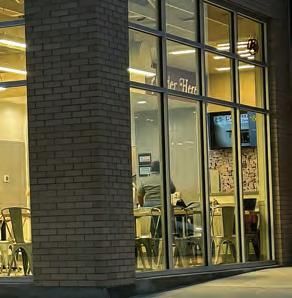


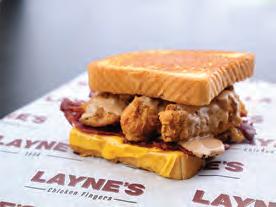
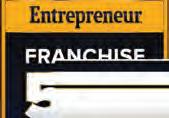







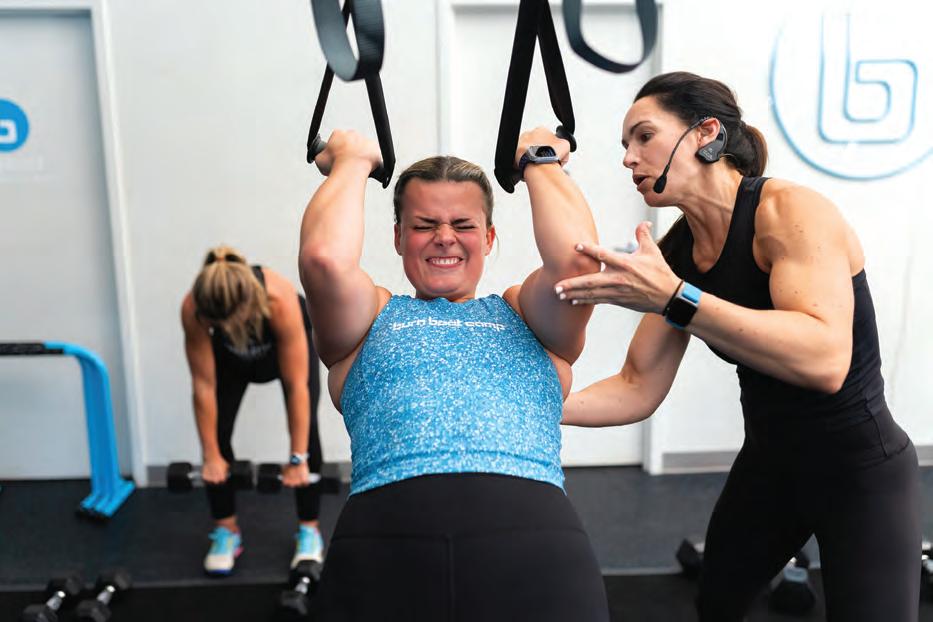
Basecamp Fitness Fitness studios
TOTAL UNITS (FRANCHISED / CO.-OWNED) 9/5
STARTUP COST
$507.8K-$895.1K
BeBalanced Natural Weight Loss Centers Weight-loss and wellness services
TOTAL UNITS
(FRANCHISED / CO.-OWNED) 26/1
STARTUP COST
$155.7K-$208.5K
beem Light Sauna
Infrared sauna suites, red light therapy rooms, related services/products
TOTAL UNITS
(FRANCHISED / CO.-OWNED) 2/2
STARTUP COST
$209.3K-$568.8K
Bellasee
Surgical eyecare centers
TOTAL UNITS
(FRANCHISED / CO.-OWNED) 0/2
STARTUP COST
$510.3K-$851.2K
Bodenvy
Body sculpting services; weight management and nutrition supplements and products
TOTAL UNITS
(FRANCHISED / CO.-OWNED) 1/2
STARTUP COST
$609K-$1M
Bodybar Pilates
Reformer Pilates studios
TOTAL UNITS
(FRANCHISED / CO.-OWNED) 25/0
STARTUP COST
$370.9K-$623.4K
Body Fit Training
Functional fitness training
TOTAL UNITS
(FRANCHISED / CO.-OWNED) 259/0
STARTUP COST
$328.3K-$519.5K
Body20
Personal training using electrical muscle stimulation
TOTAL UNITS
(FRANCHISED / CO.-OWNED) 30/0
STARTUP COST
$396.1K-$635.8K
BodyWorkz Chiropractic, acupuncture, and massage services
TOTAL UNITS
(FRANCHISED / CO.-OWNED) 1/1
STARTUP COST
$127K-$197K
The B12 Store Vitamin injections
TOTAL UNITS (FRANCHISED / CO.-OWNED) 44/1
STARTUP COST
$81.1K-$223.2K
Burn Boot Camp Gyms
TOTAL UNITS
(FRANCHISED / CO.-OWNED) 330/9
STARTUP COST
$239.2K-$562.98K
BYou Laser Clinic Skincare, cosmetic health products and services
TOTAL UNITS
(FRANCHISED / CO.-OWNED) 2/2
STARTUP COST
$422.7K-$812K
The Camp Transformation Center Fitness/weight-loss services
TOTAL UNITS (FRANCHISED / CO.-OWNED) 103/3
STARTUP COST
$351.4K-$474.4K
Cereset
Neurotechnology to help the brain relax and reset
TOTAL UNITS (FRANCHISED / CO.-OWNED) 55/1
STARTUP COST
$104.4K-$226.6K
City Cave Wellness centers
TOTAL UNITS (FRANCHISED / CO.-OWNED) 70/1
STARTUP COST
$491K-$795K
City Sweats
Infrared sauna spas and wellness centers
TOTAL UNITS (FRANCHISED / CO.-OWNED) 2/2
STARTUP COST
$246.8K-$432K
Club Pilates
Reformer Pilates studios
TOTAL UNITS (FRANCHISED / CO.-OWNED) 891/8
STARTUP COST
$196.5K-$458.6K
The Covery Wellness Spa Wellness, aesthetic, and recovery services
TOTAL UNITS (FRANCHISED / CO.-OWNED) 5/3
STARTUP COST
$328.5K-$605K
Crunch Fitness centers
TOTAL UNITS (FRANCHISED / CO.-OWNED) 401/41
STARTUP COST
$668K-$6.7M
Cryo Sculpting Lab
Body contouring
TOTAL UNITS
(FRANCHISED / CO.-OWNED) 1/1
STARTUP COST
$49.8K-$113.7K



www.cmitfranchise.com
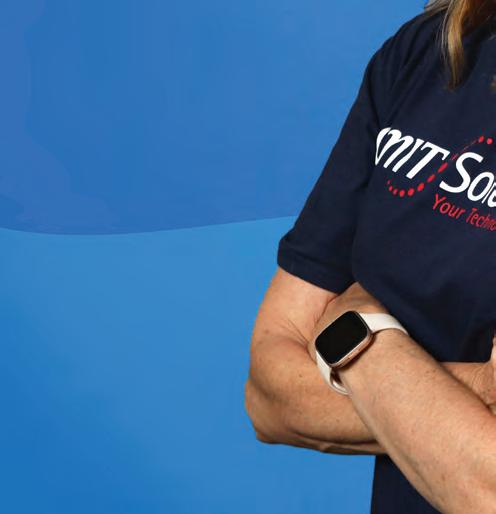






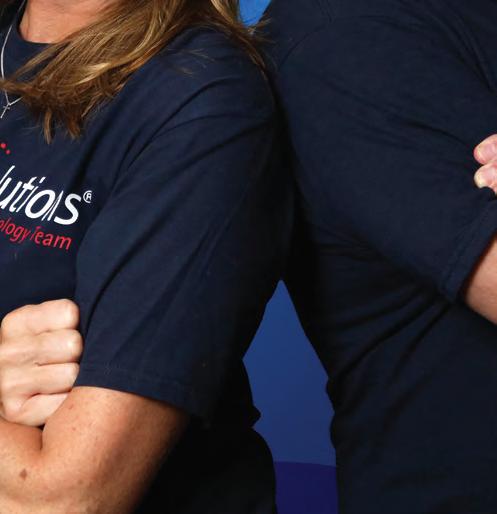




Discover Strength Strength training
TOTAL UNITS
(FRANCHISED / CO.-OWNED) 3/6
STARTUP COST
$373K-$611K
The DripBar IV vitamin therapy
TOTAL UNITS (FRANCHISED / CO.-OWNED) 57/1
STARTUP COST
$142.1K-$404.8K
Elements Massage Therapeutic massage services
TOTAL UNITS
(FRANCHISED / CO.-OWNED)
249/1
STARTUP COST
$322.8K-$517.1K
Ellie Mental Health Outpatient mental health services
TOTAL UNITS (FRANCHISED / CO.-OWNED) 197/27
STARTUP COST
$278.5K-$480.4K
Essential Speech and ABA Therapy
ABA, speech, and occupational therapy for children 18 months to 6 years diagnosed with autism
TOTAL UNITS
(FRANCHISED / CO.-OWNED) 2/4
STARTUP COST
$186.6K-$557.5K
Evolve Human Optimization Labs
Saunas, cold plunge/contrast therapy, cognitive training, compression sleeves
TOTAL UNITS (FRANCHISED / CO.-OWNED) 0/1
STARTUP COST
$414.3K-$676.8K
The Exercise Coach Personal training
TOTAL UNITS (FRANCHISED / CO.-OWNED) 233/0
STARTUP COST
$136K-$348.7K
Facial Mania Med Spa Spa, aesthetic, and med spa services
TOTAL UNITS
(FRANCHISED / CO.-OWNED) 6/2
STARTUP COST
$260.3K-$698.5K
Fastest Labs
Drug, alcohol, and DNA testing, background screening
TOTAL UNITS
(FRANCHISED / CO.-OWNED) 137/1
STARTUP COST
$101.2K-$153.7K
Fit4Mom
Prenatal and postnatal fitness and wellness programs for mothers
TOTAL UNITS
(FRANCHISED / CO.-OWNED) 226/1
STARTUP COST
$8.2K-$28.7K
fit20
Personal training studios
TOTAL UNITS
(FRANCHISED / CO.-OWNED) 160/7
STARTUP COST
$106.7K-$229.7K
Franny’s Farmacy CBD products and accessories
TOTAL UNITS (FRANCHISED / CO.-OWNED) 8/4
STARTUP COST
$206.6K-$362.5K
Fyzical Therapy & Balance Centers
Physical therapy, balance and vestibular therapy, preventive wellness services
TOTAL UNITS
(FRANCHISED / CO.-OWNED) 497/60
STARTUP COST
$191.8K-$479K
Glosshouz
Day spas/med spas
TOTAL UNITS
(FRANCHISED / CO.-OWNED) 0/1
STARTUP COST
$411.5K-$759.8K
Glow Sauna Studios Infrared saunas, red light therapy, halotherapy, related services
TOTAL UNITS
(FRANCHISED / CO.-OWNED) 0/2
STARTUP COST
$222.7K-$381.4K
Gold’s Gym Health and fitness centers
TOTAL UNITS (FRANCHISED / CO.-OWNED) 539/60
STARTUP COST
$1.5M-$3.6M
The Good Feet Store Arch supports, related products
TOTAL UNITS
(FRANCHISED / CO.-OWNED) 213/26
STARTUP COST
$248.8K-$587.8K
GreenLight Mobility Mobility equipment and home modifications for safety and accessibility
TOTAL UNITS
(FRANCHISED / CO.-OWNED) 1/1
STARTUP COST
$116.2K-$179.5K
GYMGUYZ
In-home, on-site, and virtual personal training
TOTAL UNITS (FRANCHISED / CO.-OWNED) 170/4
STARTUP COST
$82.6K-$147.5K
Hand & Stone Massage and Facial Spa Massage, facial, and waxing services
TOTAL UNITS
(FRANCHISED / CO.-OWNED) 529/15
STARTUP COST
$526.8K-$691.3K
HealthSource America’s Chiropractor Chiropractic, rehabilitation, spinal


Icebox Cryotherapy Cold therapy studios
TOTAL UNITS
(FRANCHISED / CO.-OWNED) 17/1
STARTUP COST
$372.9K-$639.7K
iCryo Cryotherapy, body sculpting, IV infusions and vitamin shots, light therapy, pain management and recovery services
TOTAL UNITS (FRANCHISED / CO.-OWNED) 29/4
STARTUP COST
$474.5K-$1.2M
iFlex Stretch Studios
Assisted stretching
TOTAL UNITS
(FRANCHISED / CO.-OWNED) 0/1
STARTUP COST
$169.4K-$293.5K
Iron Tribe Fitness Total-body fitness training
TOTAL UNITS
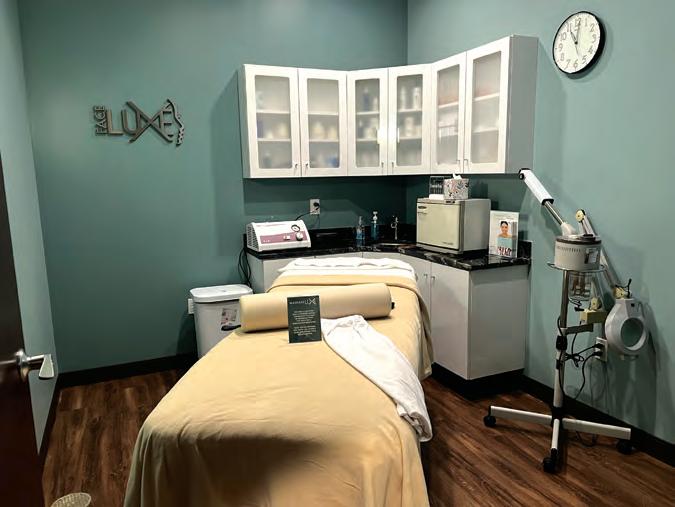
(FRANCHISED / CO.-OWNED) 20/9
STARTUP COST
$360.8K-$544.3K
ISI Elite Training Group fitness
TOTAL UNITS
(FRANCHISED / CO.-OWNED) 32/2
STARTUP COST
$327.4K-$687K
IV Nutrition Now IV vitamins and intramuscular injections
TOTAL UNITS
(FRANCHISED / CO.-OWNED) 19/2
STARTUP COST
$199.3K-$327.3K
Jazzercise Dance fitness classes
TOTAL UNITS (FRANCHISED / CO.-OWNED) 7,346/2
STARTUP COST
$2.1K-$40.7K
The Joint Chiropractic Chiropractic services
TOTAL UNITS
(FRANCHISED / CO.-OWNED)
762/135
STARTUP COST
$215.3K-$478.99K
The Lapidus Clinic Clinics and med spas
TOTAL UNITS
(FRANCHISED / CO.-OWNED) 0/1
STARTUP COST
$102K-$125K
LaVida Massage Massage and wellness services
TOTAL UNITS
(FRANCHISED / CO.-OWNED) 46/3
STARTUP COST
$313.3K-$529.5K
Lindora
Medically guided weight management programs
TOTAL UNITS
(FRANCHISED / CO.-OWNED) 31/0
STARTUP COST
$272.4K-$491.8K
Luz Lounge
Facials, injectables/IV, laser hair removal
TOTAL UNITS
(FRANCHISED / CO.-OWNED) 0/2
STARTUP COST
$167.5K-$361.6K
Madabolic Group strength training
TOTAL UNITS
(FRANCHISED / CO.-OWNED) 27/0
STARTUP COST
$327.7K-$615.9K
Massage Envy
Massage therapy, stretch therapy, skincare, facials
TOTAL UNITS
(FRANCHISED / CO.-OWNED) 1,083/0
STARTUP COST
$554.9K-$980K
Massage Heights Therapeutic massage and facial services
TOTAL UNITS
(FRANCHISED / CO.-OWNED) 110/2
STARTUP COST
$477.2K-$554.2K
MassageLuXe
Therapeutic massage, facials, waxing
TOTAL UNITS
(FRANCHISED / CO.-OWNED) 86/0
STARTUP COST
$567.6K-$797.9K
MediPlus Clinic Outpatient diagnosis and treatment
TOTAL UNITS
(FRANCHISED / CO.-OWNED) 0/1
STARTUP COST
$534.5K-$869K
Miracle-Ear Hearing aids
TOTAL UNITS
(FRANCHISED / CO.-OWNED) 1,237/347
STARTUP COST
$119K-$352.5K
Mobility City Mobility equipment repairs, rentals, and sales
TOTAL UNITS (FRANCHISED / CO.-OWNED) 36/1
STARTUP COST
$197.4K-$460K
Mobility Plus Sales, rentals, installations, and repairs of mobility products
TOTAL UNITS (FRANCHISED / CO.-OWNED) 58/0
STARTUP COST
$249.99K-$391.99K
Moms on the Run Fitness programs for women
TOTAL UNITS
(FRANCHISED / CO.-OWNED) 36/12
STARTUP COST
$9.9K-$17.1K
Natural Rejuvenation MedSpa Skincare and body contouring, female wellness
TOTAL UNITS (FRANCHISED / CO.-OWNED) 0/1
STARTUP COST
$555K-$868.2K
Neighborhood Barre Barre fitness classes, apparel, merchandise
TOTAL UNITS (FRANCHISED / CO.-OWNED) 22/3
STARTUP COST
$78.5K-$248.5K
Next Day Access
Wheelchair ramps, grab bars, stairlifts, and other accessibility and mobility products
TOTAL UNITS (FRANCHISED / CO.-OWNED) 28/2
STARTUP COST
$159.7K-$316K
The Now Massage Massage services
TOTAL UNITS
(FRANCHISED / CO.-OWNED) 56/4
STARTUP COST
$477.5K-$819.1K
NuSpine Chiropractic Chiropractic services
TOTAL UNITS
(FRANCHISED / CO.-OWNED) 32/0
STARTUP COST
$204.9K-$405.3K

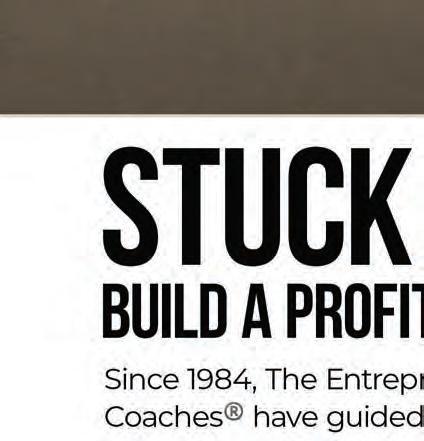




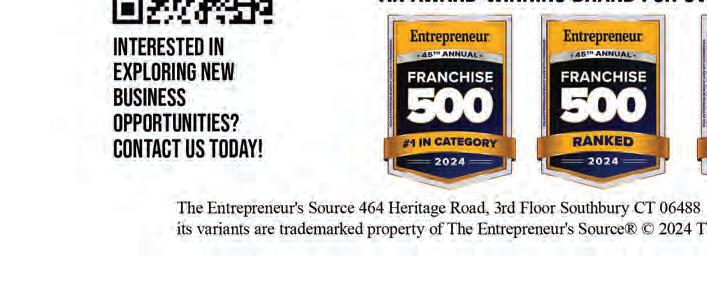
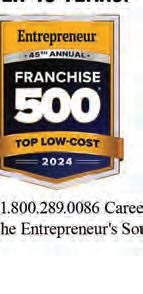


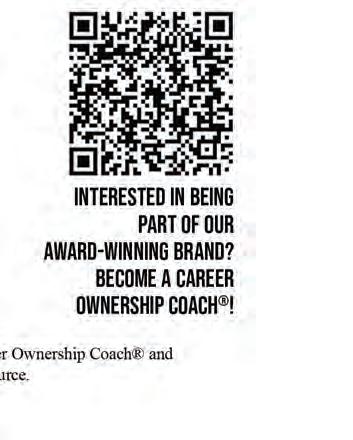
NutritionHQ. Health, weight-loss, and sports nutrition supplements and related products
TOTAL UNITS (FRANCHISED / CO.-OWNED) 1/1
STARTUP COST
$172.5K-$290.5K
100% Chiropractic Chiropractic services, massage therapy, nutritional supplements
TOTAL UNITS (FRANCHISED / CO.-OWNED) 114/3
STARTUP COST
$347.5K-$829.2K
Orangetheory Fitness Heart-rate-based group interval workout classes
TOTAL UNITS (FRANCHISED / CO.-OWNED) 1,505/22
STARTUP COST
$613.1K-$1.6M
Oxygen Yoga & Fitness Yoga and fitness classes
TOTAL UNITS
(FRANCHISED / CO.-OWNED) 69/2
STARTUP COST
$385.5K-$639K
Pearle Vision Eye care and eyewear
TOTAL UNITS
(FRANCHISED / CO.-OWNED) 461/109
STARTUP COST
$70.2K-$990.7K
Perspire Sauna Studio Infrared sauna and red light therapy
TOTAL UNITS
(FRANCHISED / CO.-OWNED) 36/4
STARTUP COST
$425.3K-$736.9K
Physical Therapy Now Physical therapy
TOTAL UNITS
(FRANCHISED / CO.-OWNED) 34/6
STARTUP COST
$183.9K-$308.4K
Planet Fitness Fitness clubs
TOTAL UNITS (FRANCHISED / CO.-OWNED) 2,319/256
STARTUP COST
$1.5M-$5.1M
Prime IV Hydration & Wellness IV therapy, cryotherapy, peptides
TOTAL UNITS
(FRANCHISED / CO.-OWNED)
76/1
STARTUP COST
$164.6K-$599.7K
Pure Barre Barre fitness classes and apparel
TOTAL UNITS
(FRANCHISED / CO.-OWNED)
640/10
STARTUP COST
$265.3K-$418.98K
Pure Fitness Fitness clubs
TOTAL UNITS
(FRANCHISED / CO.-OWNED) 19/576
STARTUP COST
$399.5K-$2.97M
QC Kinetix
Regenerative medicine and nonsurgical pain management therapies
TOTAL UNITS
(FRANCHISED / CO.-OWNED)
187/12
STARTUP COST
$227.3K-$495.9K
Relax The Back Wellness and back-related equipment, furniture, and products
TOTAL UNITS
(FRANCHISED / CO.-OWNED)
77/2
STARTUP COST
$190.3K-$392.3K
Retro Fitness Health clubs
TOTAL UNITS
(FRANCHISED / CO.-OWNED) 92/0
STARTUP COST
$1.4M-$2.2M
Revival IV Lounge Vitamin IV therapy and injections
TOTAL UNITS
(FRANCHISED / CO.-OWNED) 0/7
STARTUP COST
$160.8K-$270.5K
RiseUp Fitness Group fitness
TOTAL UNITS
(FRANCHISED / CO.-OWNED) 0/2
STARTUP COST
$233.7K-$359.4K
The Salt Suite Salt therapy
TOTAL UNITS
(FRANCHISED / CO.-OWNED) 8/1
STARTUP COST
$238.7K-$483.1K
Saunatica Far infrared saunas, red light therapy, halotherapy
TOTAL UNITS
(FRANCHISED / CO.-OWNED) 0/1
STARTUP COST
$396.2K-$597.8K
sek Sauna Studio Infrared saunas, LED light therapy, pressotherapy, and cold plunge
TOTAL UNITS (FRANCHISED / CO.-OWNED) 0/1
STARTUP COST
$416.7K-$551.9K
Skinovatio Medical Spa Medical spas
TOTAL UNITS
(FRANCHISED / CO.-OWNED) 5/1
STARTUP COST
$196.9K-$439.97K
Snap Fitness 24-hour fitness centers
TOTAL UNITS (FRANCHISED / CO.-OWNED) 1,001/24
STARTUP COST
$528.8K-$1M
Spavia Day Spa Massage, facials, waxing, skincare
TOTAL UNITS
(FRANCHISED / CO.-OWNED) 54/0
STARTUP COST
$431.3K-$784.1K
Special Strong Adaptive fitness for individuals with physical, mental, and cognitive challenges
TOTAL UNITS
(FRANCHISED / CO.-OWNED) 7/1
STARTUP COST
$79K-$96.2K
Spenga Fitness studios
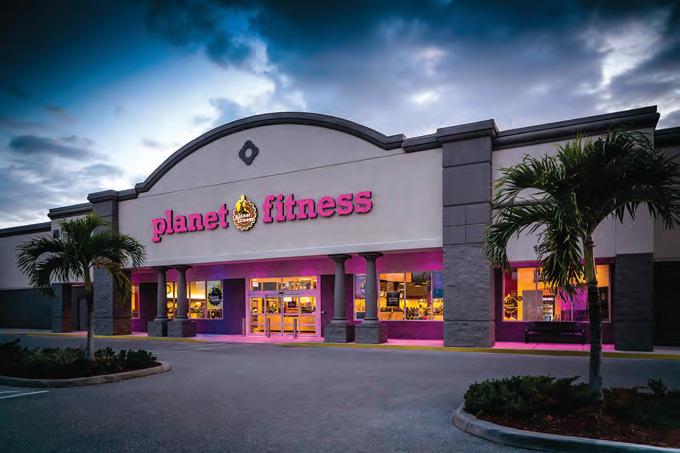
(FRANCHISED / CO.-OWNED)
(FRANCHISED / CO.-OWNED)
(FRANCHISED / CO.-OWNED)

Ready to thrive in the recreation industry? Join Innovative Sport Surfacing as a franchisee and gain access to top-quality equipment, services and installation crews for new franchisees. Benefit from over 90 years of industry experience and constant support from our team, ensuring a smooth start and ongoing success. With our comprehensive one-stop-shop approach, your business is set up for success in the recreational field.
Embark on your journey by attending our Introduction and Discovery Day. It's a perfect opportunity to meet the team, understand our business model and explore whether our franchise is the right fit for your entrepreneurial aspirations.
Once the site is secured, you'll undergo comprehensive Classroom and On-Site Training. We cover all aspects of running the franchise, from day-to-day operations to customer service.

After you've decided to join us, the next step is Site Selection. We'll guide you in finding a location that aligns with our demographic and geographic criteria, ensuring your franchise has the potential for success right from the start.
We provide ongoing support to help you face any challenges that come your way. With resources for marketing, operations, and more, we're committed to fostering your growth and aiding in your franchise's continual success.

StretchMed
Assisted stretching
TOTAL UNITS
(FRANCHISED / CO.-OWNED) 25/1
STARTUP COST
$70.4K-$185.5K
Stretch Zone
Assisted stretching
TOTAL UNITS
(FRANCHISED / CO.-OWNED)
300/3
STARTUP COST
$113.9K-$226.9K
Stride Fitness
Treadmill-based interval training
TOTAL UNITS
(FRANCHISED / CO.-OWNED) 19/1
STARTUP COST
$379.9K-$554.7K
Strive 11 Fitness
Full-body group fitness
TOTAL UNITS
(FRANCHISED / CO.-OWNED) 0/1
STARTUP COST
$150.5K-$324K
Studio Pilates
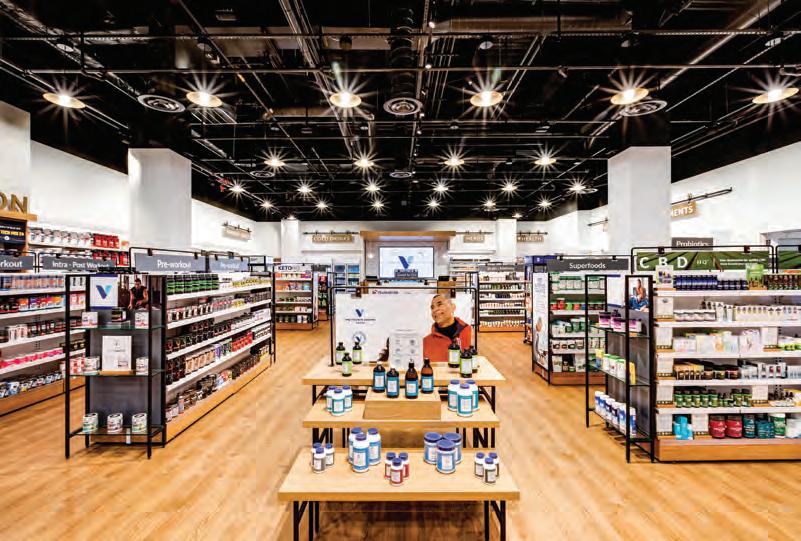
Reformer Pilates studios
TOTAL UNITS
(FRANCHISED / CO.-OWNED) 84/4
STARTUP COST
$271.2K-$517.8K
Studio 30, The Kettlebell Fit Club Fitness studios
TOTAL UNITS
(FRANCHISED / CO.-OWNED) 0/1
STARTUP COST
$59.3K-$99.5K
Success on the Spectrum Autism treatment services for children and young adults
TOTAL UNITS
(FRANCHISED / CO.-OWNED) 28/2
STARTUP COST
$313.5K-$851.3K
Sweat440 Fitness studios
TOTAL UNITS
(FRANCHISED / CO.-OWNED) 20/2
STARTUP COST
$248.9K-$651.1K
The Tox
Body sculpting services and related products
TOTAL UNITS (FRANCHISED / CO.-OWNED) 1/12
STARTUP COST
$235K-$396.5K
True REST Spa Floatation therapy
TOTAL UNITS
(FRANCHISED / CO.-OWNED) 46/3
STARTUP COST
$416.3K-$924.1K
Upgrade Labs Health and wellness services
TOTAL UNITS
(FRANCHISED / CO.-OWNED) 2/2
STARTUP COST
$633.4K-$1.2M
VIO Med Spa
Skincare, cosmetic health, and wellness products and services
TOTAL UNITS
(FRANCHISED / CO.-OWNED) 30/6
STARTUP COST
$941.8K-$1.3M
Vital Care Infusion Services
Infusion drugs, supplies, and equipment, infusion nursing, and related services
TOTAL UNITS (FRANCHISED / CO.-OWNED) 71/2
STARTUP COST
$535.9K-$995.4K
The Vitamin Shoppe Vitamins, minerals, supplements, sport nutrition products
TOTAL UNITS
(FRANCHISED / CO.-OWNED) 31/673
STARTUP COST
$528.9K-$976.9K
V-Juv
Botox, body shaping, incontinence treatments, and other clinical services
TOTAL UNITS
(FRANCHISED / CO.-OWNED) 0/6
STARTUP COST
$322K-$610K
W.O.L.F. Fitness Gyms Fitness centers
TOTAL UNITS (FRANCHISED / CO.-OWNED) 3/3
STARTUP COST
$556.2K-$1.2M
Woodhouse Spa Spa treatments
TOTAL UNITS (FRANCHISED / CO.-OWNED) 80/4
STARTUP COST
$1.5M-$3.2M
Workout Anytime 24/7 24-hour gyms
TOTAL UNITS (FRANCHISED / CO.-OWNED) 188/0
STARTUP COST
$784.95K-$2.1M
YogaSix
Yoga studios
TOTAL UNITS (FRANCHISED / CO.-OWNED) 185/3
STARTUP COST
$399.4K-$462.1K
Your CBD Store CBD stores
TOTAL UNITS (FRANCHISED / CO.-OWNED) 289/1
STARTUP COST
$93.3K-$148.6K
Zen Massage Massage and skincare services
TOTAL UNITS (FRANCHISED / CO.-OWNED) 7/2
STARTUP COST
$300.5K-$367.5K
Zion Healing Centers Mental and behavioral health services
TOTAL UNITS (FRANCHISED / CO.-OWNED) 10/1
STARTUP COST
$320.2K-$508.3K
Zivel
Cryotherapy, float therapy, infrared sauna, cryoskin
TOTAL UNITS
(FRANCHISED / CO.-OWNED) 7/2
STARTUP COST
$252.4K-$360K

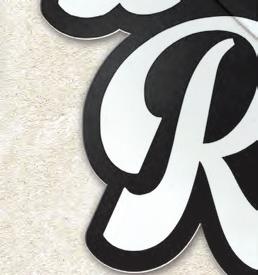






















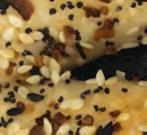



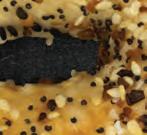




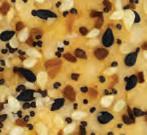


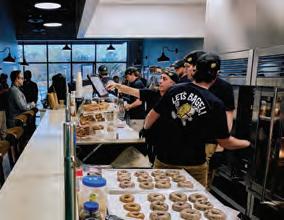
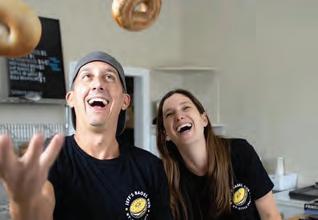

Although the meal preparation and delivery category is just emerging, we think it has lots of potential to grow—as busy consumers seek ways to make mealtime both easier and healthier. Expect to see more franchisors show up in this space soon.
Delish Delivered
Meal preparation and delivery
TOTAL UNITS
(FRANCHISED / CO.-OWNED) 1/1
STARTUP COST
$86.4K-$330.5K
DELISH DELIVERED
Lean Kitchen Company
Healthy prepared meals, beverages, nutritional supplements
TOTAL UNITS
(FRANCHISED / CO.-OWNED) 31/2
STARTUP COST
$151.5K-$441.8K
Meals of Hope
Meal packing events
TOTAL UNITS
(FRANCHISED / CO.-OWNED) 7/1
STARTUP COST
$61.1K-$71.9K
New York Butcher Shoppe
Meats, prepared meals, specialty groceries, wines
TOTAL UNITS
(FRANCHISED / CO.-OWNED) 19/8
STARTUP COST
$438K-$776K
Pests and wildlife aren’t just a nuisance—they can spread disease, cause damage, and carry other dangers. That’s why pest control and wildlife control franchises are considered essential businesses. Many also work well as seasonal businesses that can be added on to other home service businesses.
Deer Solution Deer repellant services
TOTAL UNITS
(FRANCHISED / CO.-OWNED) 5/1
STARTUP COST
$84.7K-$133.6K
Mosquito Authority
Mosquito Squad
Outdoor pest control
TOTAL UNITS
(FRANCHISED / CO.-OWNED) 224/15
STARTUP COST
$164.5K-$217.1K
ohDeer
Natural deer, tick, and mosquito control
TOTAL UNITS
(FRANCHISED / CO.-OWNED) 12/2
STARTUP COST
$116.3K-$143.5K
Patio Patrol
Residential outdoor pest control
TOTAL UNITS
(FRANCHISED / CO.-OWNED) 8/0
STARTUP COST
$74.5K-$169.5K
Pestmaster
Pest and rodent control, wildlife exclusion, vegetation management
TOTAL UNITS (FRANCHISED / CO.-OWNED) 41/6
STARTUP COST
$84.6K-$188.8K
(FRANCHISED / CO.-OWNED)
Mosquito Hunters & Humbug Holiday Lighting Mosquito, tick, and flea control
(FRANCHISED / CO.-OWNED)
Outdoor pest control
(FRANCHISED / CO.-OWNED)
Mosquito Mary’s Outdoor pest control
(FRANCHISED / CO.-OWNED)
Mosquito Shield Outdoor pest control
(FRANCHISED / CO.-OWNED)
$98.9K-$139.95K
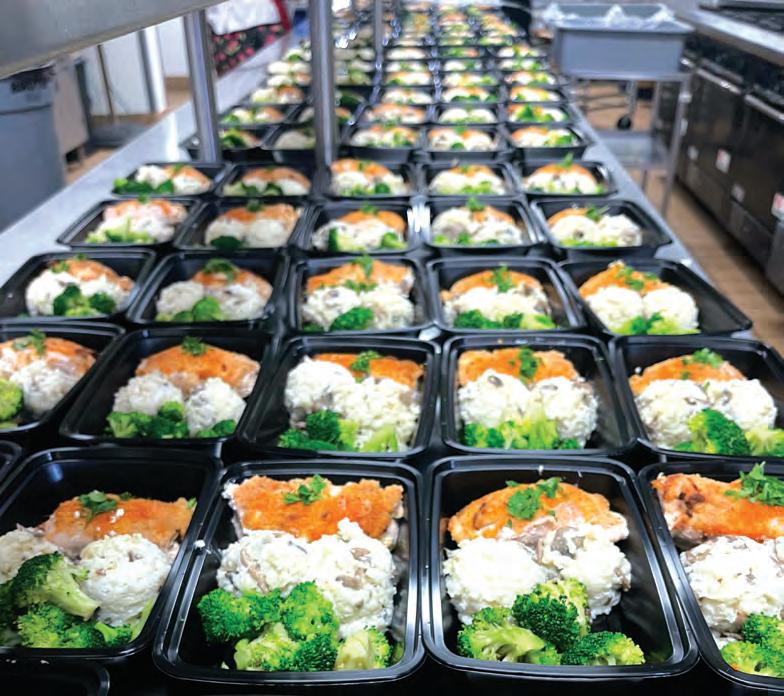
Safer Home Services
Pest control
TOTAL UNITS (FRANCHISED / CO.-OWNED) 2/3
STARTUP COST
$164.2K-$214.8K
Skedaddle Humane Wildlife Control
Humane wildlife removal, pest control, holiday lighting installation, attic restoration
TOTAL UNITS (FRANCHISED / CO.-OWNED) 12/23
STARTUP COST
$89.6K-$238.6K
Wildlife X Team/X Team Services Wildlife management; roofing, siding, painting, and home repair services
TOTAL UNITS
(FRANCHISED / CO.-OWNED) 10/10
STARTUP COST
$56.3K-$111.6K
Yard Patrol Pros Mosquito control
TOTAL UNITS (FRANCHISED / CO.-OWNED) 3/0
STARTUP COST
$90.2K-$146.9K
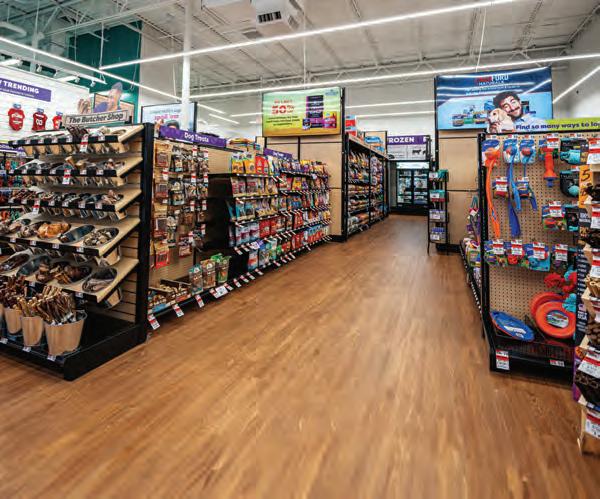
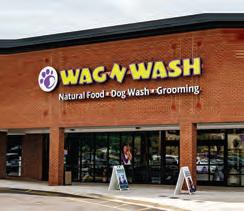

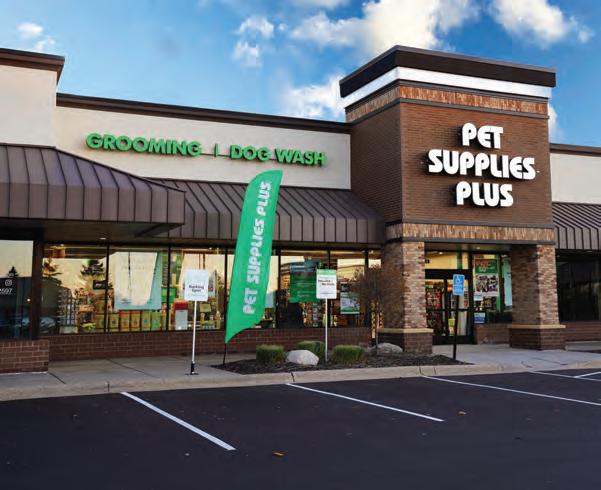









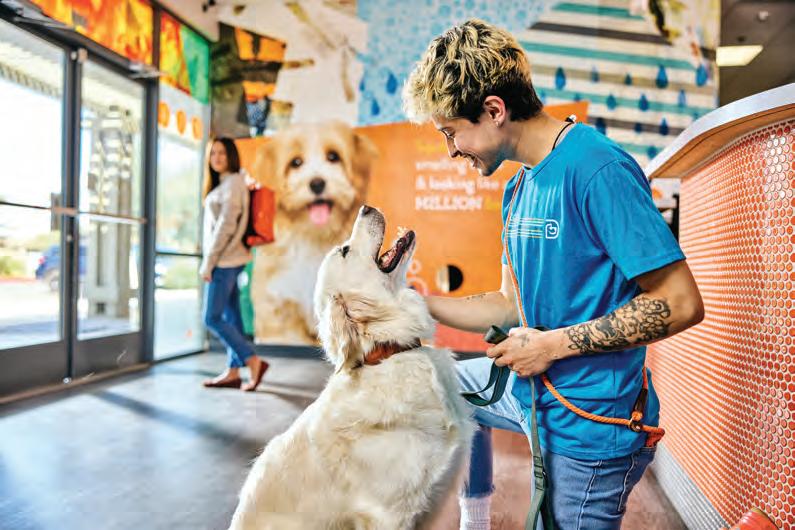
Spending on our furry friends continues to grow year after year, with the American Pet Products Association reporting $147 billion in sales in the U.S. last year. Whether it’s grooming, training, daycare, scooping poop, or scooping pup-friendly ice cream (really!), there’s no shortage of opportunity in the pet industry.
Always Faithful Dog Training Dog training
TOTAL UNITS
(FRANCHISED / CO.-OWNED) 31/1
STARTUP COST
$91.9K-$101.3K
Aussie Pet Mobile Mobile pet grooming
TOTAL UNITS
(FRANCHISED / CO.-OWNED) 82/0
STARTUP COST
$180.4K-$203.2K
Bark Avenue Daycamp
Dog daycare, boarding, training, and grooming
TOTAL UNITS
(FRANCHISED / CO.-OWNED) 0/1
STARTUP COST
$228.3K-$426.4K
Bark Busters Home Dog Training In-home dog training
TOTAL UNITS
(FRANCHISED / CO.-OWNED) 129/0
STARTUP COST
$65.7K-$99.5K
Ben’s Barketplace Pet health-food stores
TOTAL UNITS
(FRANCHISED / CO.-OWNED) 3/3
STARTUP COST
$189.8K-$350.5K
Bubbly Paws
Pet grooming and self-service dog washing
TOTAL UNITS
(FRANCHISED / CO.-OWNED) 4/5
STARTUP COST
$197.4K-$370.9K
Camp Bow Wow
Dog daycare, boarding, training, grooming
TOTAL UNITS
(FRANCHISED / CO.-OWNED) 217/3
STARTUP COST
$1.1M-$1.8M
Central Bark
Dog daycare, boarding, grooming, training, and retail
TOTAL UNITS
(FRANCHISED / CO.-OWNED) 37/0
STARTUP COST
$522.5K-$1M
Dogdrop
On-demand dog daycare
TOTAL UNITS
(FRANCHISED / CO.-OWNED) 1/1
STARTUP COST
$308K-$597.4K
Doggy Inn
Dog daycare, boarding, and grooming
TOTAL UNITS
(FRANCHISED / CO.-OWNED) 0/1
STARTUP COST
$668.3K-$1.4K
D.O.G. Hotels
Dog boarding, daycare, and grooming
TOTAL UNITS
(FRANCHISED / CO.-OWNED) 6/1
STARTUP COST
$605K-$775K
The Dog Stop Dog care services and products
TOTAL UNITS (FRANCHISED / CO.-OWNED) 18/6
STARTUP COST
$543K-$1M
Dogtopia
Dog daycare, boarding, and spa services
TOTAL UNITS (FRANCHISED / CO.-OWNED) 238/6
STARTUP COST
$780.1K-$1.5M
Dog Training Elite Dog training
TOTAL UNITS (FRANCHISED / CO.-OWNED) 312/5
STARTUP COST
$159.1K-$185.8K
DoodyCalls Pet waste management
TOTAL UNITS (FRANCHISED / CO.-OWNED) 77/2
STARTUP COST
$64K-$83.5K
EarthWise Pet
Pet food and supplies, daycare, grooming, self-wash, training, walking
TOTAL UNITS
(FRANCHISED / CO.-OWNED) 161/46
STARTUP COST
$224.5K-$1.3M
GoDog
Pet boarding, daycare, bathing, grooming, wellness services, training, and dog parks
TOTAL UNITS (FRANCHISED / CO.-OWNED) 0/3
STARTUP COST
$1.96M-$4.98M
Happy Cat Hotel & Spa Luxury cat boarding, grooming, and retail
TOTAL UNITS
(FRANCHISED / CO.-OWNED) 4/2
STARTUP COST
$500K-$853K





















Hot Diggity Dog Resort
Dog boarding, daycare, training, and grooming
TOTAL UNITS
(FRANCHISED / CO.-OWNED) 0/1
STARTUP COST
$319.1K-$468.2K
Hounds Town USA
Dog daycare, pet boarding, pet grooming
TOTAL UNITS
(FRANCHISED / CO.-OWNED) 47/1
STARTUP COST
$457.2K-$771.9K
In Home Pet Services
Pet-sitting, dog-walking
TOTAL UNITS
(FRANCHISED / CO.-OWNED) 12/1
STARTUP COST
$9.2K-$35.1K
K9 Resorts Luxury Pet Hotel Luxury dog daycare and boarding
TOTAL UNITS
(FRANCHISED / CO.-OWNED) 20/5
STARTUP COST
$1.3M-$2.5M
Natural Hounds
Human-grade dog food and treats
TOTAL UNITS
(FRANCHISED / CO.-OWNED) 0/2
STARTUP COST
$349K-$437.5K
petbar
Pet grooming and bathing
TOTAL UNITS
(FRANCHISED / CO.-OWNED) 28/2
STARTUP COST
$397.6K-$745.8K
Pet Evolution
Healthy pet food, pet products, grooming, self-wash stations
TOTAL UNITS
(FRANCHISED / CO.-OWNED) 13/2
STARTUP COST
$635.2K-$988.8K
Petland Pets, pet supplies, boarding, daycare, grooming
TOTAL UNITS
(FRANCHISED / CO.-OWNED)
280/27
STARTUP COST
$303K-$1.1M
Pet Passages
Pet funeral and cremation services and products
TOTAL UNITS
(FRANCHISED / CO.-OWNED) 14/2
STARTUP COST
$45.5K-$418K
Pet Supplies Plus Pet food and supplies, bathing/ grooming services
TOTAL UNITS
(FRANCHISED / CO.-OWNED) 468/235
STARTUP COST
$448.4K-$1.9M
Pet Wants
Natural pet-food stores/delivery
TOTAL UNITS
(FRANCHISED / CO.-OWNED) 132/1
STARTUP COST
$131.4K-$202.5K
PetWellClinic Walk-in pet clinics
TOTAL UNITS
(FRANCHISED / CO.-OWNED) 19/4
STARTUP COST
$203.9K-$487.5K
Salty Dawg Pet Salon + Bakery Dog grooming, food, treats, and accessories
Salty Paws
Dog ice cream shops and trucks
TOTAL UNITS
(FRANCHISED / CO.-OWNED) 7/4
STARTUP COST
$73.3K-$200.7K
Scenthound
Routine dog care and grooming services
TOTAL UNITS
(FRANCHISED / CO.-OWNED) 83/5
STARTUP COST
$318.6K-$499.5K
Scoop Soldiers Pet waste removal
TOTAL UNITS
(FRANCHISED / CO.-OWNED) 46/58
STARTUP COST
$68.3K-$118.3K
Sit Means Sit Dog Training Dog training
TOTAL UNITS
(FRANCHISED / CO.-OWNED) 160/0
STARTUP COST
$31.8K-$128.9K
Vanity Fur
Mobile pet grooming services and products
TOTAL UNITS
Wagbar Off-leash dog parks and bars
TOTAL UNITS (FRANCHISED / CO.-OWNED) 0/1
STARTUP COST
$470.3K-$11.1M
Wag N’ Wash Self-service pet bathing, grooming, pet supplies
TOTAL UNITS (FRANCHISED / CO.-OWNED) 18/7
STARTUP COST
$428.2K-$1.1M
Well Groomed Pets Pet wellness and grooming services
TOTAL UNITS (FRANCHISED / CO.-OWNED) 7/0
STARTUP COST
$189.2K-$273.5K
Wild Birds Unlimited Bird-feeding supplies and nature gift items
TOTAL UNITS (FRANCHISED / CO.-OWNED) 360/0
STARTUP COST
$224.4K-$379.96K
Woof Gang Bakery & Grooming Pet stores and pet grooming
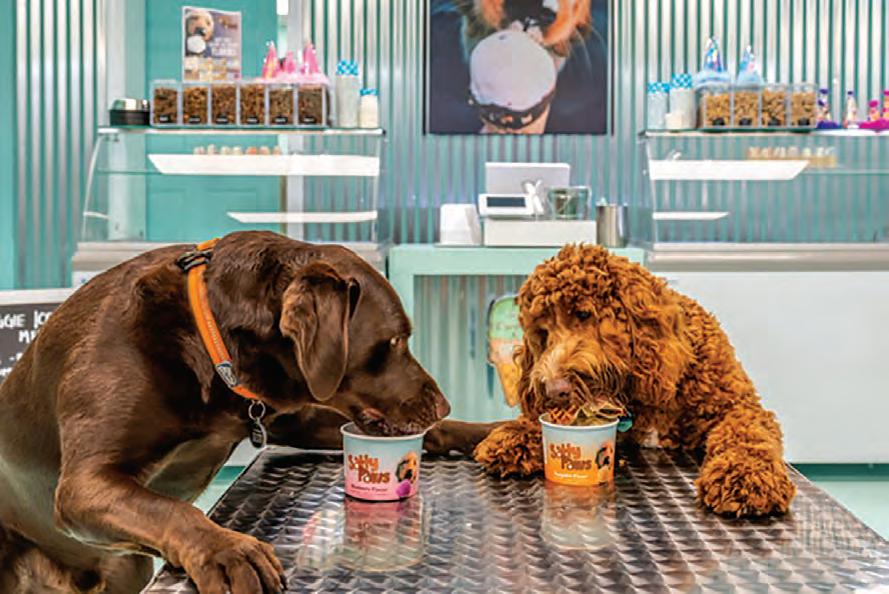
TOTAL UNITS (FRANCHISED / CO.-OWNED) Pet-sitting, dog walking, mobile pet
(FRANCHISED / CO.-OWNED)
(FRANCHISED / CO.-OWNED)
Indoor dog training and socialization, (FRANCHISED / CO.-OWNED)
Restoration franchises thrive in any conditions—because the worse the conditions are, the more their services are needed! The never-ending need for restoration and remediation after fires, floods, and other disasters makes this one of the most resilient categories in franchising.

1-800 Water Damage Property restoration
TOTAL UNITS
(FRANCHISED / CO.-OWNED) 185/0
STARTUP COST
$207.6K-$297.1K
Paul Davis Restoration Insurance restoration
TOTAL UNITS (FRANCHISED / CO.-OWNED) 297/0
STARTUP COST
$238.1K-$617.1K
Preservan Wood rot repair
TOTAL UNITS
(FRANCHISED / CO.-OWNED) 2/1
STARTUP COST
$79.6K-$133.8K
Advanced Laser Restoration
Mobile laser cleaning
TOTAL UNITS
(FRANCHISED / CO.-OWNED) 6/1
STARTUP COST
$163.3K-$254K
AdvantaClean
Mold remediation and indoor air quality services
TOTAL UNITS (FRANCHISED / CO.-OWNED) 132/0
STARTUP COST
$115.98K-$196.5K
All Dry Services
Water and mold remediation and restoration
TOTAL UNITS (FRANCHISED / CO.-OWNED) 125/1
STARTUP COST
$87.7K-$275.3K
Aqua Express Restoration
Water and fire damage restoration and mold removal
TOTAL UNITS
(FRANCHISED / CO.-OWNED) 0/1
STARTUP COST
$182.3K-$236.2K
Best Option Restoration
Disaster restoration
TOTAL UNITS
(FRANCHISED / CO.-OWNED) 59/0
STARTUP COST
$185.9K-$230.5K
Blue Kangaroo Packoutz Contents restoration
TOTAL UNITS (FRANCHISED / CO.-OWNED) 91/1
STARTUP COST
$221.8K-$431.4K
Content Recovery Specialists Personal property restoration
TOTAL UNITS (FRANCHISED / CO.-OWNED) 6/1
STARTUP COST
$135.5K-$294K
Disaster Blaster
Property damage mitigation and reconstruction
TOTAL UNITS
(FRANCHISED / CO.-OWNED) 0/1
STARTUP COST
$136.3K-$242.7K
DRYmedic Restoration Services
Disaster restoration services
TOTAL UNITS
(FRANCHISED / CO.-OWNED) 27/16
STARTUP COST
$133.5K-$317K
Eco Restoration & Construction Restoration
TOTAL UNITS (FRANCHISED / CO.-OWNED) 0/1
STARTUP COST
$156.6K-$207.1K
FRSTeam
Restoration of textiles and electronics
TOTAL UNITS (FRANCHISED / CO.-OWNED) 41/12
STARTUP COST
$44.4K-$411K
Lightspeed Restoration
Residential and commercial water and fire restoration
TOTAL UNITS (FRANCHISED / CO.-OWNED) 3/0
STARTUP COST
$154.98K-$253.5K
911 Restoration
Residential and commercial property restoration
TOTAL UNITS (FRANCHISED / CO.-OWNED) 288/3
STARTUP COST
$79.6K-$218.4K
1-800-Packouts
Contents packing, cleaning, storage, and restoration
TOTAL UNITS
(FRANCHISED / CO.-OWNED) 47/0
STARTUP COST
$138.1K-$356.5K
1-800-Textiles
Textile restoration
TOTAL UNITS
(FRANCHISED / CO.-OWNED) 47/0
STARTUP COST
$71.7K-$739.5K
Prism Specialties
Restoration of electronics, art, textiles, and documents
TOTAL UNITS (FRANCHISED / CO.-OWNED) 153/3
STARTUP COST
$149.95K-$322.4K
PuroClean Property damage restoration and remediation
TOTAL UNITS (FRANCHISED / CO.-OWNED) 466/0
STARTUP COST
$95.5K-$245.9K
Rainbow Restoration Restoration and remediation
TOTAL UNITS (FRANCHISED / CO.-OWNED) 369/0
STARTUP COST
$169.3K-$325.9K
Restoration 1 Water, fire, smoke, and mold restoration
TOTAL UNITS (FRANCHISED / CO.-OWNED) 296/0
STARTUP COST
$94.6K-$226.1K
Rytech Restoration Water, mold, fire, and smoke restoration; COVID sanitation
TOTAL UNITS
(FRANCHISED / CO.-OWNED) 85/1
STARTUP COST
$141.4K-$213K
ServiceMaster Restore Commercial/residential disaster restoration
TOTAL UNITS
(FRANCHISED / CO.-OWNED) 2,334/0
STARTUP COST
$252.7K-$358.8K
Servpro Fire, water, and other damage cleanup, restoration, and reconstruction
TOTAL UNITS (FRANCHISED / CO.-OWNED) 2,199/0
STARTUP COST
$241.3K-$301.8K
Steamatic
Insurance/disaster restoration, cleaning, mold remediation, air quality control
TOTAL UNITS
(FRANCHISED / CO.-OWNED) 130/3
STARTUP COST
$216.5K-$431.4K
True North Restoration Restoration services
TOTAL UNITS
(FRANCHISED / CO.-OWNED) 10/1
STARTUP COST
$87.3K-$195K
VetCor
Emergency restoration services
TOTAL UNITS
(FRANCHISED / CO.-OWNED) 23/1
STARTUP COST
$173.9K-$358.3K
Veterans Restoration Fire, water, and mold restoration, trauma scene cleanup
TOTAL UNITS
(FRANCHISED / CO.-OWNED) 0/1
STARTUP COST
$94.9K-$193.9K
Voda Cleaning & Restoration Restoration and floor cleaning
TOTAL UNITS (FRANCHISED / CO.-OWNED) 0/1
STARTUP COST
$146.5K-$198.3K
Consumers are looking for creative ways to get and stay active, and sports-related franchises are ready to fill that need. You’ll find franchises offering children’s sports programs, sports-based fitness programs for adults, golf simulators, pickleball clubs, swim classes, and more.
Ace Pickleball Club
Indoor pickleball clubs
TOTAL UNITS (FRANCHISED / CO.-OWNED) 0/1
STARTUP COST
$910.5K-$1.3M
Amazing Athletes
Educational sports programs
TOTAL UNITS
(FRANCHISED / CO.-OWNED) 134/13
STARTUP COST
$58.1K-$91.5K
American Poolplayers Association
Recreational billiard leagues
TOTAL UNITS
(FRANCHISED / CO.-OWNED) 334/6
STARTUP COST
$23.2K-$29K
Aqua-Tots Swim Schools Swimming lessons
TOTAL UNITS (FRANCHISED / CO.-OWNED) 137/1
STARTUP COST
$984.1K-$2M
Athletic Republic Sports performance training and fitness
TOTAL UNITS (FRANCHISED / CO.-OWNED) 42/0
Big Blue Swim School Swimming lessons for ages 3 months to 12 years
TOTAL UNITS (FRANCHISED / CO.-OWNED) 22/5
STARTUP COST
$3.1M-$4.4M
British Swim School Swimming lessons for ages 3 months and older
TOTAL UNITS
(FRANCHISED / CO.-OWNED) 178/0
STARTUP COST
$109.96K-$145K
Child’s Play Challenge Courses Mobile obstacle courses for events
TOTAL UNITS (FRANCHISED / CO.-OWNED) 0/1
STARTUP COST
$95.8K-$162.5K
CycleBar
Indoor cycling classes
TOTAL UNITS (FRANCHISED / CO.-OWNED) 280/13

D-BAT
Indoor baseball and softball training, batting cages, merchandise
TOTAL UNITS
(FRANCHISED / CO.-OWNED) 143/0
STARTUP COST
$536.5K-$1M
Destination Athlete
Equipment, apparel, fundraising, and performance solutions for youth, high school, and college athletic teams
TOTAL UNITS
(FRANCHISED / CO.-OWNED) 229/0
STARTUP COST
$28.3K-$93.6K
D1 Training Athletic training
TOTAL UNITS
(FRANCHISED / CO.-OWNED) 90/0
STARTUP COST
$164.3K-$666.2K
Dryvebox
Mobile golf simulators
TOTAL UNITS
(FRANCHISED / CO.-OWNED) 0/9
STARTUP COST
$138.4K-$399.3K
Freedom Boat Club
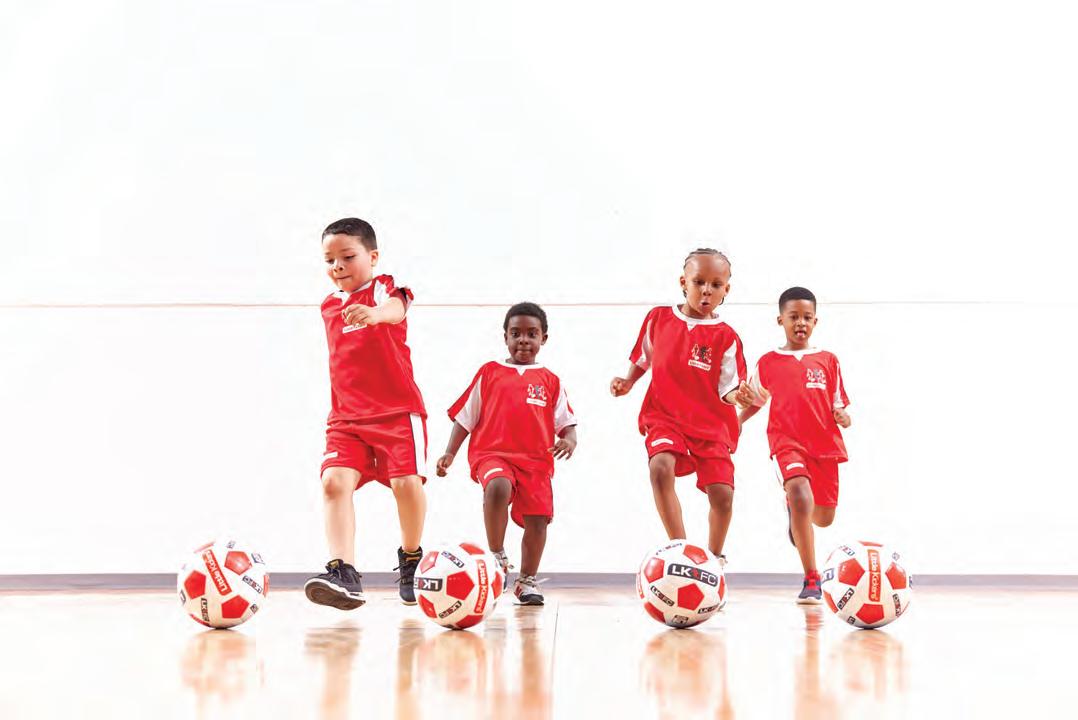
Membership boat clubs
TOTAL UNITS
(FRANCHISED / CO.-OWNED) 258/124
STARTUP COST
$222.5K-$500.5K
Get Up And Go Kayaking
Guided clear kayak tours
TOTAL UNITS
(FRANCHISED / CO.-OWNED) 23/2
STARTUP COST
$55.7K-$99.9K
Goldfish Swim School
Infant and child swimming lessons
TOTAL UNITS
(FRANCHISED / CO.-OWNED) 147/4
STARTUP COST
$1.7M-$3.7M
The Gravity Vault Indoor rock-climbing gyms
TOTAL UNITS (FRANCHISED / CO.-OWNED) 8/4
STARTUP COST
$1.2M-$3.3M
Hudson Valley Swim Swimming and water safety lessons for all ages
TOTAL UNITS
(FRANCHISED / CO.-OWNED) 6/8
STARTUP COST
$79.5K-$119.5K
i9 Sports
Youth sports leagues, camps, and clinics
TOTAL UNITS
(FRANCHISED / CO.-OWNED) 233/0
STARTUP COST
$59.9K-$69.9K
Innovative Sport Surfacing Playground, park, and custom recreation equipment construction, sales, and services
TOTAL UNITS
(FRANCHISED / CO.-OWNED) 15/1
STARTUP COST
$238.1K-$532.5K
Legends Boxing
Boxing fitness programs
TOTAL UNITS (FRANCHISED / CO.-OWNED) 16/3
STARTUP COST
$220.3K-$573.4K
LiggettVille
Indoor ropes courses, zip rails, and climbing walls
TOTAL UNITS
(FRANCHISED / CO.-OWNED) 0/4
STARTUP COST
$2M-$3.9M
Links Golf Cafe Golf cafés
TOTAL UNITS
(FRANCHISED / CO.-OWNED) 0/0
STARTUP COST
$769.2K-$1.1M
Little Kickers
Preschool soccer programs
TOTAL UNITS
(FRANCHISED / CO.-OWNED) 332/0
STARTUP COST
$38.1K-$53.2K
Mayweather Boxing + Fitness Boxing and functional-training programs and personal training
TOTAL UNITS (FRANCHISED / CO.-OWNED) 67/1
STARTUP COST
$299.9K-$595.7K
M14Hoops
Youth basketball training and development
TOTAL UNITS (FRANCHISED / CO.-OWNED) 12/2
STARTUP COST
$97.4K-$127.5K
Monster Mini Golf Indoor mini golf and family entertainment centers
TOTAL UNITS (FRANCHISED / CO.-OWNED) 22/6
STARTUP COST
$781.5K-$911K
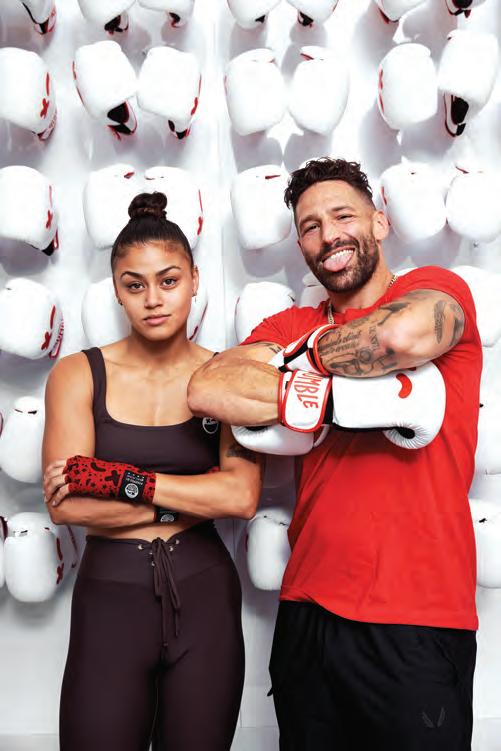
My Backyard Sports
Residential and commercial custom sport facility design and installation
TOTAL UNITS (FRANCHISED / CO.-OWNED) 3/1
STARTUP COST
$104.4K-$176.7K
My City All Stars Youth sports camps
TOTAL UNITS (FRANCHISED / CO.-OWNED) 1/1
STARTUP COST
$114.5K-$265K
National Academy of Athletics Youth sports camps
TOTAL UNITS (FRANCHISED / CO.-OWNED) 2/13
STARTUP COST
$44.3K-$63.3K
9Round Fitness
Kickboxing fitness circuit-training studios
TOTAL UNITS (FRANCHISED / CO.-OWNED) 559/6
STARTUP COST
$114.6K-$278.4K
Overtime Athletics Youth sports programs
TOTAL UNITS (FRANCHISED / CO.-OWNED) 47/0
STARTUP COST
$45.9K-$73K
Pickleball Kingdom Indoor pickleball
TOTAL UNITS (FRANCHISED / CO.-OWNED) 0/1
STARTUP COST
$967K-$2.1M

Play It Again Sports
New and used sporting goods/ equipment
TOTAL UNITS
(FRANCHISED / CO.-OWNED)
290/0
STARTUP COST
$299.1K-$407.5K
purvelo cycle
Indoor cycling studios
TOTAL UNITS
(FRANCHISED / CO.-OWNED) 1/3
STARTUP COST
$358.9K-$458.3K
Redline Athletics
Fitness and athletic training for ages 8 to 18
TOTAL UNITS
(FRANCHISED / CO.-OWNED) 54/0
STARTUP COST
$325.3K-$1M



RockBox Fitness
Boxing, kickboxing, and functional strength training fitness studios
TOTAL UNITS
(FRANCHISED / CO.-OWNED) 57/0
STARTUP COST
$374.6K-$491.3K
Row House
Indoor rowing classes
TOTAL UNITS
(FRANCHISED / CO.-OWNED) 85/12
STARTUP COST
$370.9K-$536.8K
Rumble Boxing Boxing fitness studios
TOTAL UNITS
(FRANCHISED / CO.-OWNED) 52/15
STARTUP COST
$405.6K-$4.2M
SafeSplash
Child and adult swimming lessons, parties, summer camps
TOTAL UNITS (FRANCHISED / CO.-OWNED) 117/31
STARTUP COST
$45K-$2.1M
SailTime/PowerTime
Membership boat clubs
TOTAL UNITS
(FRANCHISED / CO.-OWNED) 26/1
STARTUP COST
$74.7K-$151.95K
Scary Strokes
Family entertainment centers
TOTAL UNITS
(FRANCHISED / CO.-OWNED) 0/1
STARTUP COST
$439.2K-$1.1M
Shoot Indoors
Indoor shooting ranges
TOTAL UNITS (FRANCHISED / CO.-OWNED) 4/0
STARTUP COST
$661.3K-$1.8M
Shoot 360
Basketball training facilities
TOTAL UNITS
(FRANCHISED / CO.-OWNED) 29/2
STARTUP COST
$754K-$2.6M
Skyhawks & SuperTots Sports Academy Children’s fitness programs
TOTAL UNITS (FRANCHISED / CO.-OWNED) 177/70
STARTUP COST
$30.3K-$89.8K
Soccer Shots
Soccer programs for ages 2 to 8
TOTAL UNITS
(FRANCHISED / CO.-OWNED)
288/21
STARTUP COST
$42.95K-$54.3K
Sportball
Sports enrichment programs for ages 16 months to 12 years
TOTAL UNITS
(FRANCHISED / CO.-OWNED) 31/2
STARTUP COST
$62K-$81K
Striking Beauties
Women’s boxing and fitness studios
TOTAL UNITS
(FRANCHISED / CO.-OWNED) 1/1
STARTUP COST
$169.1K-$253.95K
Super Soccer Stars Soccer programs
TOTAL UNITS
(FRANCHISED / CO.-OWNED) 47/13
STARTUP COST
$72.8K-$105.8K
Team Up Athletics
Team sport jerseys, apparel, and equipment
TOTAL UNITS
(FRANCHISED / CO.-OWNED) 10/1
STARTUP COST
$71.5K-$239.2K
TGA Tennis Golf & Athletics Golf, tennis, pickleball, and athletic enrichment programs
TOTAL UNITS
(FRANCHISED / CO.-OWNED) 42/2
STARTUP COST
$63.1K-$101K
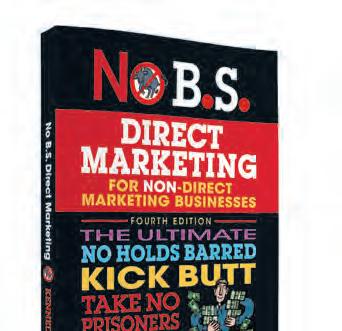


30 Minute Hit
Boxing/kickboxing circuit-training programs for women
TOTAL UNITS
(FRANCHISED / CO.-OWNED) 81/0
STARTUP COST
$123.4K-$324.95K
USA Ninja Challenge Youth fitness programs
TOTAL UNITS
(FRANCHISED / CO.-OWNED) 23/0
STARTUP COST
$321.2K-$420.9K
X-Golf
Indoor golf entertainment venues
TOTAL UNITS
(FRANCHISED / CO.-OWNED) 84/0
STARTUP COST
$733.4K-$1.6M
Parents continue to place a priority on their children’s education and on helping them get ahead and stay ahead in school. All of that adds up to ample opportunity for franchises that offer tutoring, test prep, and other educational services.
Best Brains Learning Centers Learning centers
TOTAL UNITS
(FRANCHISED / CO.-OWNED) 150/1
STARTUP COST
$31K-$118.4K








Club Z! In-Home Tutoring Services
In-home tutoring
TOTAL UNITS
(FRANCHISED / CO.-OWNED)
357/0
STARTUP COST
$33.5K-$57.4K
Eye Level Learning Centers
Supplemental education
TOTAL UNITS
(FRANCHISED / CO.-OWNED) 514/752
STARTUP COST
$52.3K-$121.7K
Gideon Math & Reading After-school math and reading programs
TOTAL UNITS
(FRANCHISED / CO.-OWNED) 19/1
STARTUP COST
$122.5K-$225.5K
Huntington Learning Center Tutoring and test prep
TOTAL UNITS
(FRANCHISED / CO.-OWNED) 276/10
STARTUP COST
$154.1K-$264K
JEI Learning Center
Individualized supplemental education
TOTAL UNITS
(FRANCHISED / CO.-OWNED) 163/252
STARTUP COST
$60K-$110.5K
Kumon
Supplemental education
TOTAL UNITS
(FRANCHISED / CO.-OWNED) 26,205/39
STARTUP COST
$73.8K-$165.9K

Mathnasium Math tutoring
TOTAL UNITS
(FRANCHISED / CO.-OWNED) 1,106/4
STARTUP COST
$112.9K-$149.3K
PEL Learning Center After-school learning programs
TOTAL UNITS
(FRANCHISED / CO.-OWNED) 7/2
STARTUP COST
$34.3K-$70K
Sylvan Learning
Supplemental education, STEM camps, college prep
TOTAL UNITS
(FRANCHISED / CO.-OWNED) 547/5
STARTUP COST
$100.8K-$226.8K
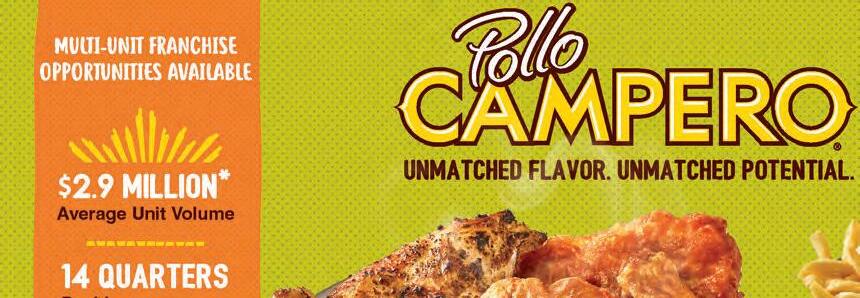





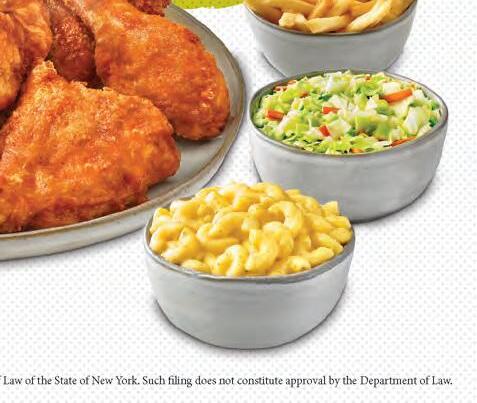


Taco Bell’s new CEO is, in his words, “not the dictionary definition of a CEO.” But he has a vision for how to keep their winning streak going.
by JASON FEIFER
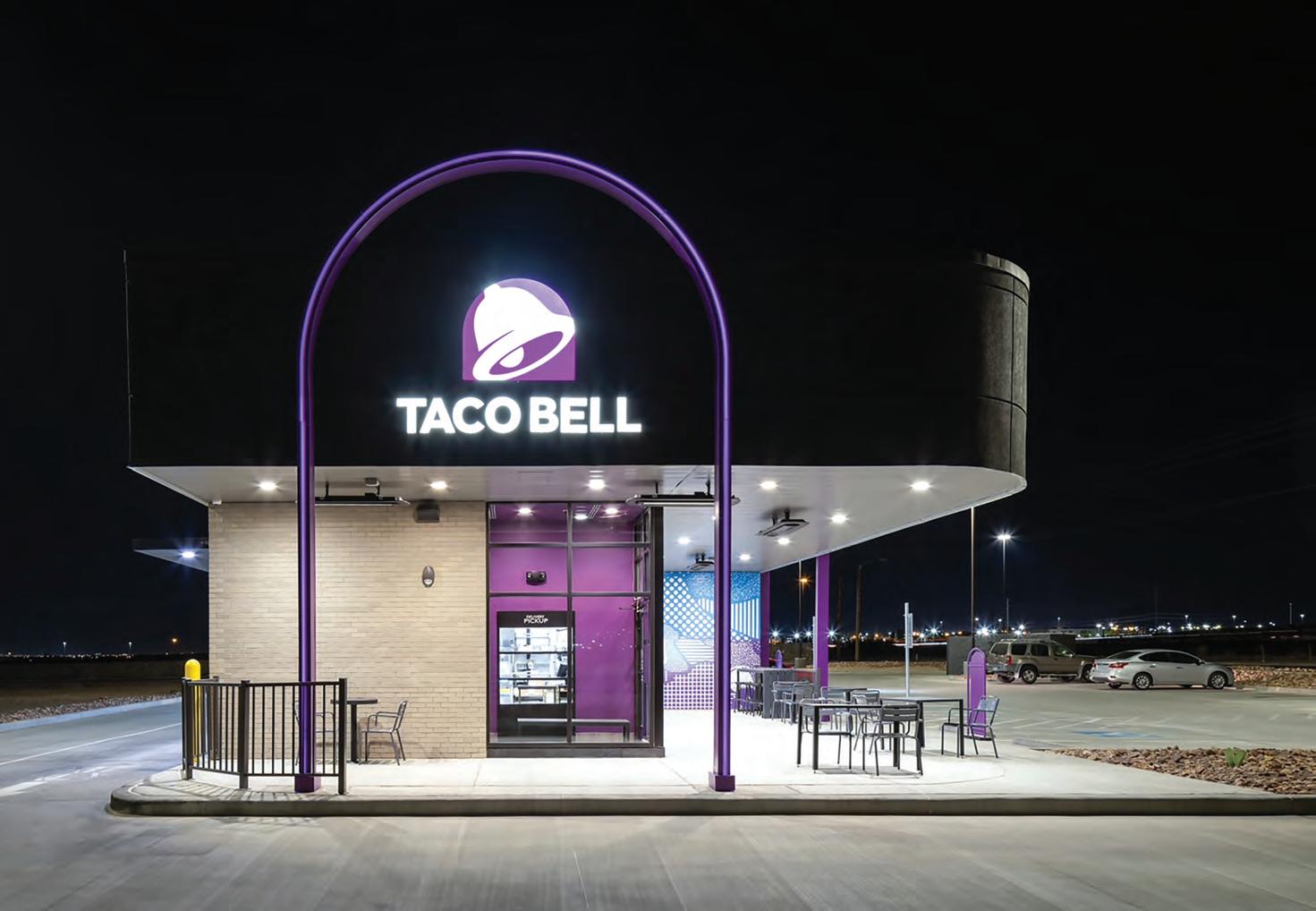
Everyone knows Taco Bell. But not everyone knows Sean Tresvant, who took over as CEO at the beginning of this year. And Tresvant likes it that way.
“I’ve never been one who does it for the limelight,” says Tresvant. He doesn’t go on TV to pontificate, and generally prefers that colleagues be interviewed instead of him.
“I’m probably the most introverted extrovert. I always tell people it’s not about me. It’s about the team. I don’t need to get my bars up.”
Instead, Tresvant has spent his career raising the bar for
great brands—spending time at Sports Illustrated and PepsiCo, rising to CMO for Nike’s Jordan brand, and then joining Taco Bell in 2022 as its global chief brand officer. Now he’s succeeded former Taco Bell CEO Mark King, who retired at the end of 2023, which means Tresvant has stepped into the hottest seat in the hottest brand in franchising, where attention will be hard to escape. But he knows his No. 1 mission:
“My job, and our job as the Taco Bell team, is to keep this brand hot,” says Tresvant. How hot is Taco Bell? So hot
that it’s reached No. 1 on our Franchise 500 for the fourth year in a row—only the second brand to accomplish that in the ranking’s 45-year history. (The other was Subway.) So hot that unit growth has been 15% over the past three years, worldwide system sales grew 11% in 2023, and profit margins are 24% — a number that David Gibbs, CEO of Taco Bell’s parent company Yum! Brands, called “industry-leading.”
Tresvant has already turned up the heat since joining the brand by steering some of its recent attention-getting moves—like rallying Doja Cat
and Dolly Parton to bring back Mexican Pizza (a beloved menu item that was discontinued during COVID), and partnering with LeBron James to “liberate” the trademark on “Taco Tuesday” (which was owned by rival Taco John’s and Gregory’s Restaurant & Bar, thus prohibiting anyone else from using the phrase).
Now Tresvant must keep this momentum going, while also coordinating with franchisees and acclimating to the challenges of leadership. Here, he discusses how to make a brand culturally resonate, how to keep it that way, and how
empower their teams.
Your predecessor Mark King once told us a story: When he first joined Taco Bell, he didn’t fully grasp how culturally powerful the brand had become. Then a week into his job, he was shocked by how many people came out to a four-day Taco Bell takeover of a fancy Palm Springs hotel— where he ended up with a Taco Bell logo shaved into his head. I’m curious what you didn’t fully appreciate about Taco Bell until you started. My story is different from Mark’s, but very similar in underestimating the power of the brand. Two things would happen. First, wherever I would go, if I was at an event or a gathering or a conference, everybody wanted to talk about their favorite Taco Bell meal of today or of the past. “When are you going to bring back the Quesalupa? What about the Enchirito?” or, “Hey, bring the caramel empanada back,” or, “Hey, I just ordered from Taco Bell at my store, and you guys need to make sure that you keep so-and-so on the menu.” It was pretty incredible—the love and the passion people have for this brand and the menu.
Then, of course, I like to represent the brand, so I’d wear Taco Bell merch to places, and people would stop me: “Oh, where did you get that?” I had a jacket that just had the bell on it, and one guy tried to buy it off me. That’s pretty powerful. I don’t know many brands in the world that have that cultlike passionate following.
Branding is so interesting, because there’s nothing inherentlyculturally resonant about Taco Bell, right? Same for Nike, which is cool now—but at the start, Phil Knight was hustling to make it relevant. Do you think that there’s anything inherent about a brand that allows it
to succeed culturally? Or can the right leadership accomplish that anywhere?
I do believe from the start that Taco Bell wasn’t like any other brand. It has an incredible origin story, like some of the best brands do. In 1962, when Glen Bell started Taco Bell in California, think about it—it was Mexican food. It wasn’t burgers. It wasn’t fries. It wasn’t pizza. So, inherently, it was different. Inherently, it was for people who were curious. Inherently, it was for people who were bold and courageous to try something new. Fastforward, and I believe that DNA still exists in the brand.
That answer contained something that every great brand storyteller does, which is to build upon the origin story of a brand. There’s really interesting research about how a founder’s story can be a differentiation point for consumers. There’s a very intentional connection you’re drawing here, from the brand’s origin to its positioning today—and I would love to hear you, as someone who understands brand marketing, talk about how to smartly use an origin story.
If I’m sitting in a room with marketing people, the question is: “How do you ‘dimensionalize’ the story?” Here are two answers. One is this idea of math and magic: How do you take all the math that is available today and turn it into magic? The other one is— we have a saying here, which I think Taco Bell does better than any other brand: “Hit people in the head, and hit them in the heart.” You hit people in the head with your pricing, with your operations, with how you go to market—all very important things. But none of that matters if you can’t hit people in the heart. You make people feel the brand, make people love the brand.
“WHENEVER THERE’S A BIG DECISION TO MAKE, THERE IS DECISION TO IS WHAT I CALL ‘RADICAL CANDOR WITH RESPECT.’ WE’RE NOT AFRAID TO HAVE TOUGH CONVERSATIONS.”
What’s a real-world example of taking a piece of data and turning it into magic?
We have a lot of data from our restaurants and from our social channels. Whenever we post something about the brand, people talk a lot about menu items of the past. The Enchirito or Quesalupa comes up, and the threads just go crazy. “I remember when my mom took me,” or, “I remember how it tasted,” or, “I used to get it with tomatoes.” So we took all that data, and in 2022, we started to have people vote on two items—to let the consumer decide which item we actually brought back on the menu.
and turn it into some magic about something that consumers can actually do?”
What I’m hearing is this process of capturing something that’s in the air—that hasn’t been put down anywhere, that’s not from some test that had already been run. How do you create something that delivers something people want, but that they’re not necessarily articulating that they want?
should leaders do with the little
That’s the same insight that you personally got when arriving at Taco Bell, right? People would tell you whatever random menu item they remember. It’s cool that the observation that you had as an individual turned out to also be a starting point for a powerful brand action. What should leaders do with the little personal experiences that they might have out in the world?
I think great leaders need to listen more, to the data and to the team. We could have explained that experience—which wasn’t exclusively my experience— away. But if you have the right people in the organization, they’ll say, “How do we take these two things, an anecdote and a real data phenomenon,
One thing that helps the organization get to the magic quickly is that, in Mark’s time here, he had this idea of restless creativity. So it doesn’t matter what function you’re in—it’s not only reserved for the marketers, but whether you’re in ops, finance, HR, sales—this idea of being restlessly creative permeates the organization. When you have some anecdotes, and you have the quantitative data, the culture of being restlessly creative is: What if we put those two things together and let the consumer decide what we bring back?
Now, think about that. That sounds easy from me or the marketer saying it. But now you’ve got to go to supply chain: How available are the ingredients? You’ve got to go to operations: How do we make it on the line? How do you price it?
All those things have to come together. You’ve got to bring
“WE HAVE A SAYING HERE, “WE HAVE A SAYING WHICH I THINK TACO BELL I THINK DOES BETTER THAN ANY THAN OTHER BRAND: ‘HIT PEOPLE IN THE HEAD, AND IN THE HIT THEM IN THE HEART.’”
the organization along about why this is a good thing for the consumer, for the business, for the franchisee. We wouldn’t be able to do it if it was just a marketing idea. But since people have the DNA of being restlessly creative, it all comes together.
I’ve found that the best ideas always start with “What if we...?” But I’ve worked at places where we ran into exactly the problem you’re solving for: We had a great idea, and then it got to the next department that would be involved... And they’re like, “No way.”
Right. I’ve often wondered what went wrong. Was the idea not good enough? Was the other department just lazy? Maybe the answer is: Leadership must ensure that every department’s job is, in some way, to at least engage with the “What if we...?” ideas. How do you instill that?
I believe this organization has a very high trust bar—not only internal to Taco Bell corporate, but also with the franchisees. Again, tie it back to the origin story: Where would the brand be if we didn’t take some big swings? If we didn’t say, “Just go with us on this one”? Sometimes we
get it right—more times than not. But sometimes we take a swing, and instead of a home run, it might be a double. But we learn a lot from it.
Trust is a hard thing to build with franchisees. I hear this all the time from franchisors—that they want to introduce changes, but franchisees are uncomfortable. I know Taco Bell has a long history of empowering franchisees to think boldly. But it’s another thing to have franchisees be “restlessly creative.”
What makes the Taco Bell system unique is its incredible dialogue. In my first couple of weeks on the job, a lot of franchisees called me personally, and we talked about the business, we talked about my vision, we talked about their vision, we talked about what they think is working, what they think is not working. I think whenever there’s a big decision to make, there is what I will call “radical candor with respect.” Because we’re a system, everybody wants to do the right thing—but at the same time, we’re not afraid to have tough conversations, have great debates, all in the service of getting either to the right answer or aligned around an answer. What we agree upon is this: They’re
not going to win all the time, and Taco Bell is not going to win all the time, but as long as the consumer wins all the time and the team member wins all the time, then we’re doing the right thing.
I once heard you describe your leadership style in three words. You said, “approachable, curious, and empowering.” How do you put it into practice? Let’s take approachable. I’m probably not the dictionary definition of a CEO for many reasons. Maybe it’s the way I look, the way I act. I’ve got sneakers on right now…
I’m wearing Crocs right now. And I’m always my authentic self. My authentic self is: It doesn’t matter what level you are, whether it’s the top of the organization or the people who are just starting out, I like to have conversations. I like to meet people where they are. I drive my executive assistant crazy, because people say, “Hey, I want to have a coffee chat, or a little bit of mentorship with Sean,” and I usually don’t say no. I feel like I’m in my position because I had great mentors, leaders, somebody who gave me 10 minutes in a coffee chat. I have a career journey that started where most of the people start out. I want to always be approachable to those people.
I bet that attitude makes a huge difference when engaging with franchisees. It does. David Gibbs, CEO of Yum! Brands, said something that really stuck with me: “When you enter the brand or the business, come through the front door and the back door.” Meaning, make sure you also come through the back door—to the kitchen—and thank the team members. I don’t have restaurant experience. But you need to understand how the line works, and you need to under-
stand how difficult it is when you’re leading the drive-thru or making a Crunchwrap. Being approachable means that, when you go in the restaurant, you don’t just stand on the other side of the counter.
As someone who didn’t have restaurant experience, I’m curious what you have done to feel comfortable in this space and what you would advise other leaders who are similarly entering a new industry.
I’ll give you two. One is to be humble enough to know what you don’t know. Go to the experts in those fields or the functional leaders, and learn. A lot of times, leaders—because they’re in a certain position or have a certain title—they feel like they can’t learn or shouldn’t ask.
The second thing is probably some of the best advice I got early on: Don’t try to be a black belt in everything. If you’re going to try to be a black belt in everything, you can’t accomplish it. They said, “Be a black belt in marketing—that’s what you are. But be a brown belt or a red belt in development, finance, operations, HR, and then hire or have black belts in those other functions.” I don’t need to be an expert in every function. That’s why I have an incredible team.
It’s so critical—to give yourself permission to not be great at everything. It powers the organization. It creates trust. They realize that, as a boss, I’m going to understand what they do and I may have points of view on development and have questions, but I’m counting on them to lead it.
To hear the full interview with Sean Tresvant, find the Entrepreneur podcast Problem Solvers wherever you get your podcasts.











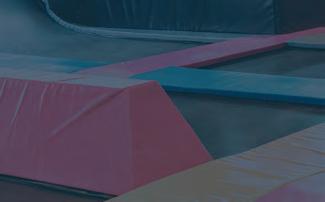













What’s it actually like being a franchisee?
We asked 232 people within five years of taking the leap. Here’s what they said.


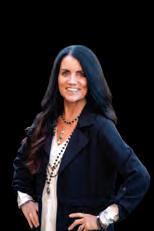





*The
*The faces you see are some of the
We wanted unvarnished opinions—and as you’ll see on the following pages, we got them. This survey was conducted in partnership with Franchise Business Review which produces reports for franchise buyers. The results you see are mostly from our survey of 232 new franchisees * (in business under five years), but also include a few answers from Franchise Business Review’s annual survey of 13,109 new franchisees.







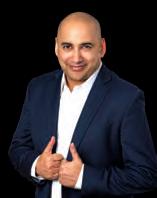
Do you enjoy operating your business?






Do
*The faces you see are some of the
*The faces you see are just some of the respondents. Allresponsesareanonymized.
Did
How’s






What
“It




“PRICING AND REPEAT BUSINESS.” “COVID
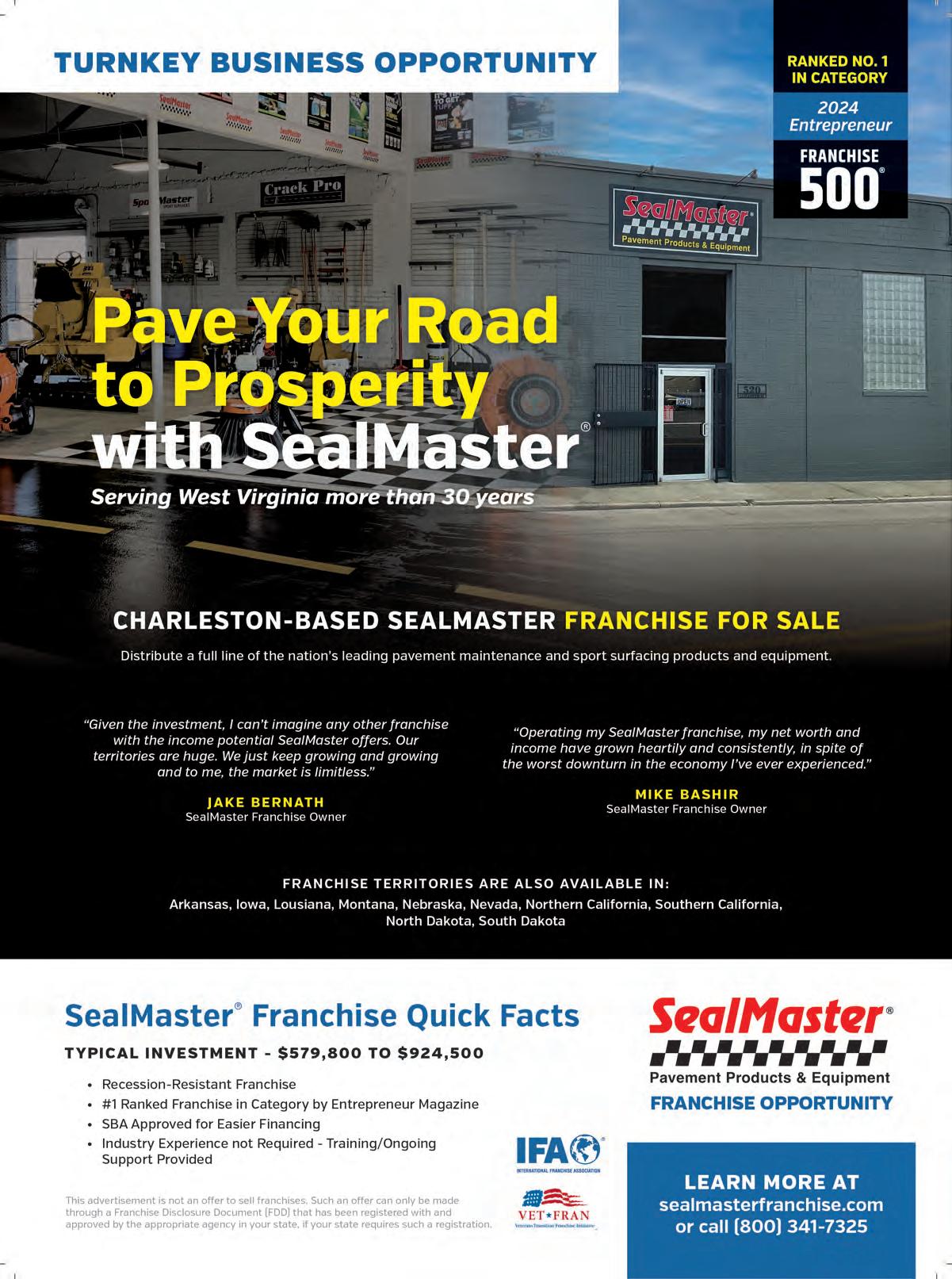



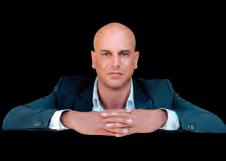



Which is the bigger reason that you picked your specific franchise brand?
Which is the reason that you your franchise brand?
*The faces you see are some of the
*The faces you see are just some of the respondents.
Allresponsesareanonymized.
How’s the long-term growth opportunity for your business?
How’s the opportunity for your business?

How
How much did you know about before you started it?
I
I understood the basics

Where were you working just before you bought your first franchise?

How often do you talk to other franchisees at your brand?
How often do you talk to other franchisees at your brand?
How is a boss?
How is being a boss?
“Great, but being a leader is lonely.”
“I have a totally different respect for owners in general.” “It’s challenging—there’s so much that goes unnoticed.” Where
“IT’S AWESOME.”

Make a difference with a rewarding fitness franchise
• Biblical core values
• High demand with limited competition
• Home-based franchise model
• Low overhead and initial investment
• Recurring membership revenue model
• No prior experience required
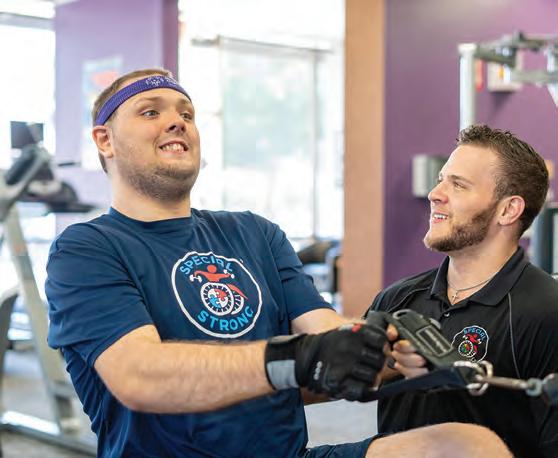







We Asked ▶ What’s your favorite part of being a franchisee?
*The faces you see are some of the
*The faces you see are just some of the respondents.
Allresponsesareanonymized.
“Knowing that I’m building a business, not just working a job” ■ “The annual conference”
“Freedom to your and earn a it” “Me and my son own it and get to work
■ “The relationships with customers” ■ “Freedom to enjoy your hobby and earn a living doing it” ■ “My team” ■ “Me and my son own it and get to work together” ■ “The ability to make my own decisions” ■ “The chance to influence the culture of the company” ■ “Providing the best work environment for my employees” ■ “In my previous career, regardless of how good I was or how certified I may have been, there was only so much that I could have made. With this business, my hard work will determine my upper limit.” ■ “The camaraderie of the franchise owners systemwide” ■ “The example I’m setting for my daughter” ■ “Being my own boss, but still receiving all the coaching, training, and support I need” ■ “I spent 20 years commuting 1.5 hours each day, and working countless nights and weekends. My business is now six minutes from my home, and I have much more flexibility.”
We Asked ▶ What’s the most annoying thing you have to do as a franchise owner?
“The spam calls and emails I get for business services” ■ “Worrying about customers’ insufficient funds” ■ “Doing tasks for clients that they can do themselves” ■ “Hiring and keeping a salesperson on track” ■ “Year-end inventory” ■ “Managing dumb people”
■ “Searching for new leads” ■ “Relying on other people to work with the same intensity I have” ■ “Paperwork” ■ “Taxes!” ■ “Paying royalties, but I understand the reason” ■ “Telling potential clients that we cannot help them” ■ “Cold-calling to get new business” ■ “Repeatedly answering the same questions from clients because they didn’t read the information I sent them, which answers the exact questions they’re asking” ■ “Technology issues” ■ “Wearing ALL the hats!” ■ “When workers do not show up for work” ■ “Chasing after businesses that don’t pay” ■ “Building a customer base in a market where the brand is not readily recognized” ■ “Friends and family think I have magical ways of getting them ‘deals.’”
We Asked ▶ What’s the most satisfyingly challenging thing you do in your business?
“Selling is intimidating. But every time I get a new client it is immensely rewarding knowing that I accomplished something that scares me.” ■ “Providing clients with first-class customer service” ■ “Building brand awareness” ■ “Making the decision to scale up and hire someone so that we can grow the business” ■ “Finding good people to work at my business and keeping them around” ■ “Learning all the aspects of being a franchise owner, from operations to marketing to sales” ■ “Getting people to believe in the vision and be a part of it!” ■ “Playing both sides. I can cater to a dissatisfied client and listen and address their concerns without feeling like I have thrown my team under the bus.” ■ “Completing a project on time and on budget while exceeding my client’s expectations” ■ “Having to constantly drive business and consumers” ■ “Setting up the store before shoppers come in and see how beautiful it looks” ■ “Mentoring my associates” ■ “Being organized”
clients with first-class customer the decision to scale up and hire someone so that we can grow the business” all the aspects of a franchise owner, from operations to to sales” both sides. I can cater to a dissatisfied client and listen and address their concerns without like I have to my associates”

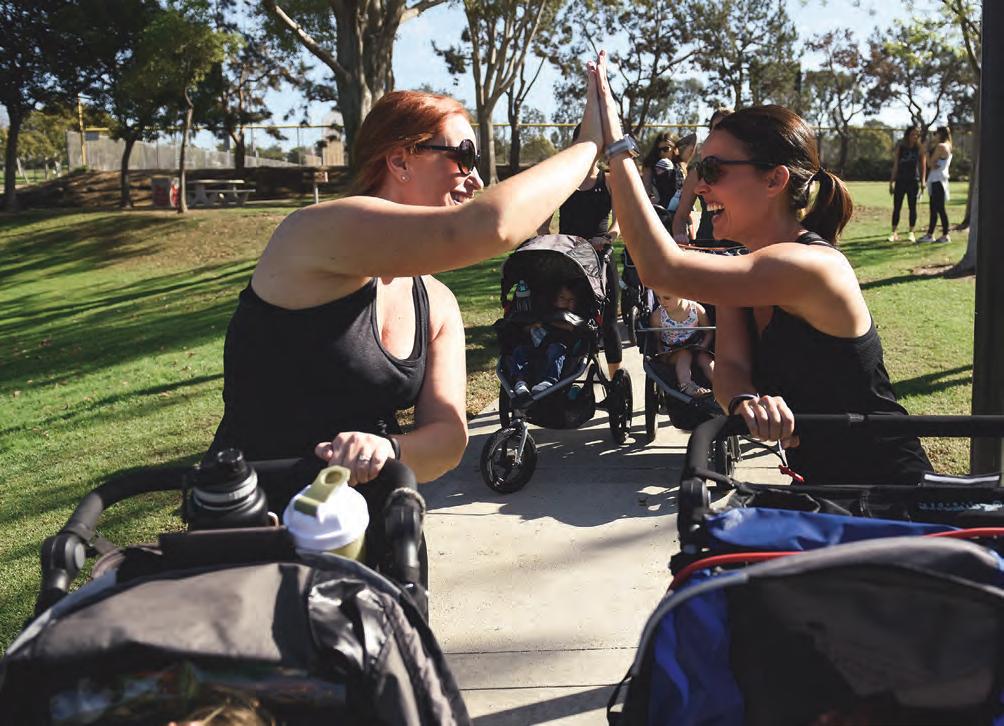
Across the franchise industry, brands are putting AI to use in all kinds of novel ways. From customer service to better marketing and quality control, here’s how brands are taking the leap into automation.
by YIREN LU
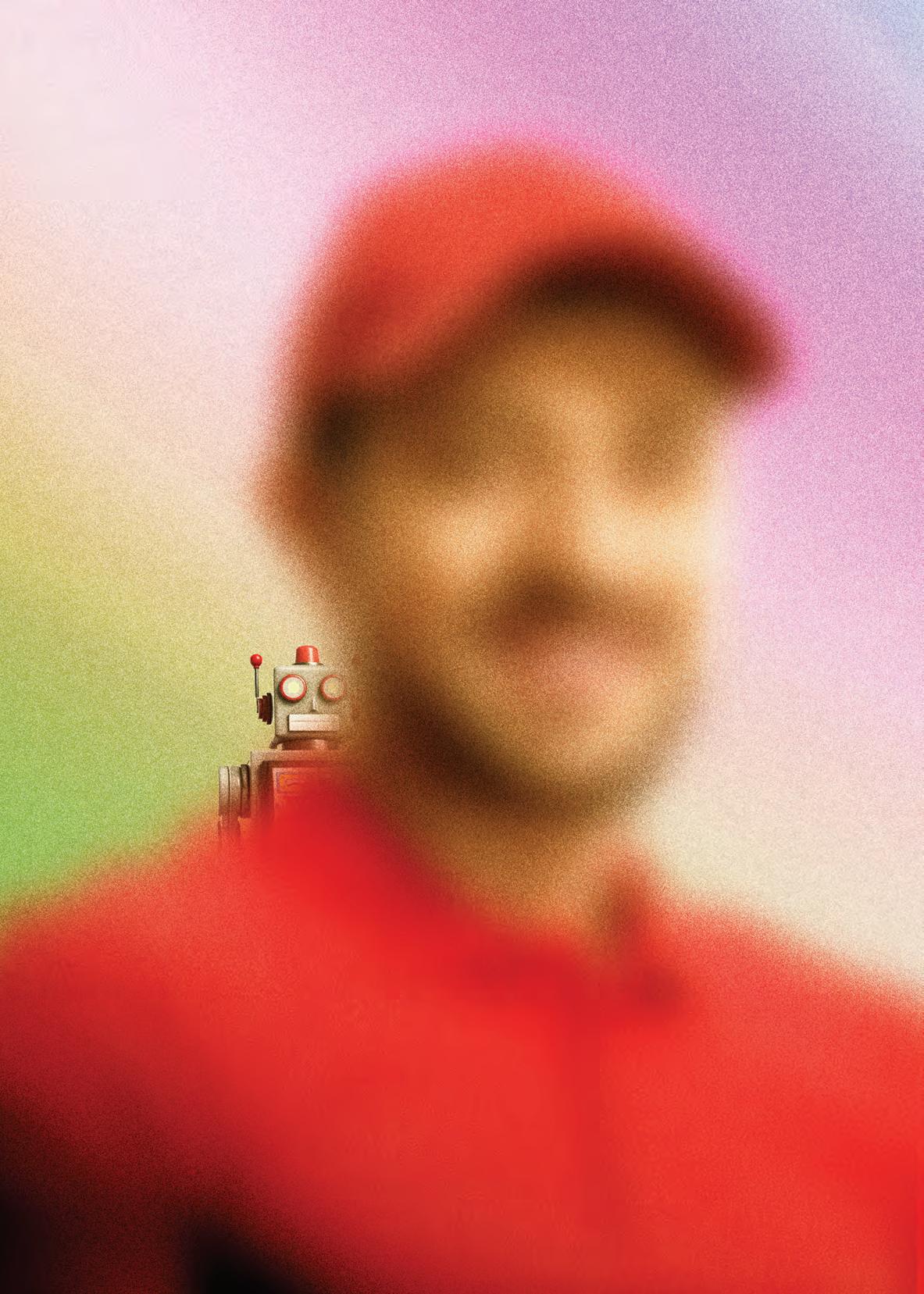
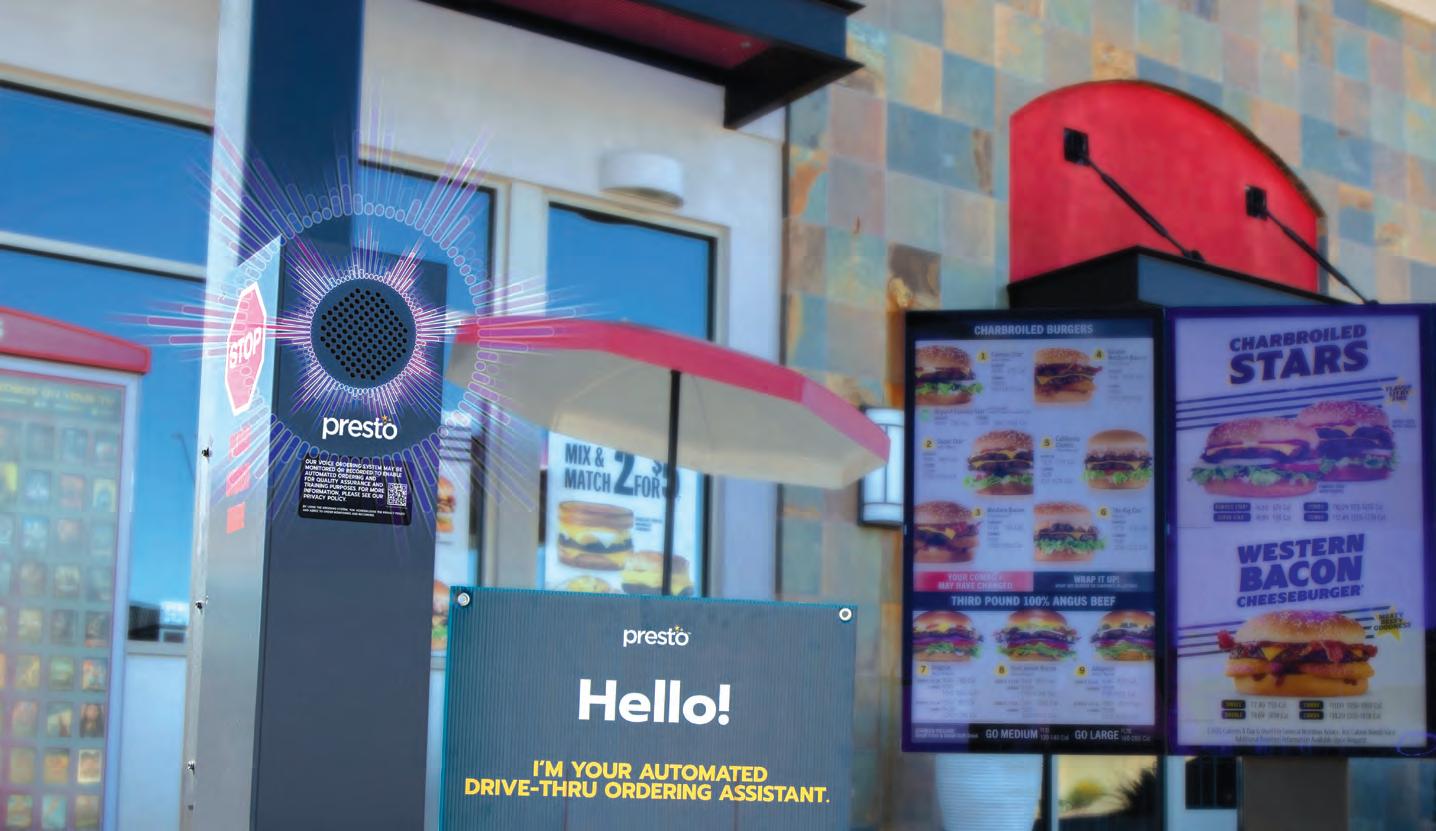
Two women pull into a Carl’s Jr. drive-thru in Anaheim, California, and roll down their window. An employee introduces herself as Tori, and asks, “What can I get started for you?”
The question is normal enough, but something about Tori sounds a little weird. The women in the car start giggling. Tori takes it all in stride. She’s not offended. She’s a robot, after all.
She collects their order flawlessly—asking about drinks and combo sizes—and even tries to upsell them on some strawberry shortcake. A human employee hands them their food, and as they drive off, the woman riding shotgun gasps. “Oh, my God! AI is coming! AI is at Carl’s Jr.!”
All of this played out on TikTok, where you can find a proliferating number of
videos of AI taking orders at quick-service restaurants around the country. Franchises like Carl’s Jr., McDonald’s, Rally’s, and Popeyes have all rolled out voice AI at select restaurants. And while these order-taking bots may be the most visible examples of how franchises are starting to use AI, they’re just the beginning.
Artificial intelligence is already giving franchises myriad opportunities to improve efficiency and lower costs while increasing revenues—and its applications cannot be ignored. Whether you work for a QSR brand looking to save on staffing and improve operations, a retail brand wanting to boost localized marketing at a fraction of the cost of a traditional agency, a cookie company using predictive analytics
to improve wait times and quality control, or a fitness studio developing a personalized coaching system, there are all kinds of novel ways you can put AI to work. And you should—because chances are, someone else in your industry is already doing it.
QSR brands’ motivation to explore voice automation has been driven by three parallel trends: rising labor costs, a post-pandemic appreciation for the value of drive-thru options, and AI hype.
While there were early concerns about losing control of the customer experience and customers reacting badly to bots, those have largely dissipated. Although customers’ videos occasionally highlight hilarious AI missteps—one shows the AI
adding nine Long Island iced teas instead of the single Sprite ordered—they reveal more of a sense of wonder than irritation. Nobody seems to miss the human service. This makes sense. Fast-food ordering has always been relatively transactional. The industry’s workers typically work long shifts, make minimum wage, and perform repetitive tasks. The bar that AI needs to clear is low. Brands are concerned about accuracy and efficiency, but if voice automation can hit those marks, then it can be an unalloyed positive. There’s even an opportunity for more systematic upselling. “I think no one at this point denies that this is the future,” says Krishna Gupta, board member and cofounder of Presto Automation, an enterprise software company that sells voice automation
systems for drive-thru lanes to franchises like Carl’s Jr. and Hardee’s. “There’s a sort of inevitability about it.”
At one point, Gupta had a conversation with the former CEO of Restaurant Brands International, the parent company of Burger King. The executive was candid in his evaluation of his human workforce. He said that 5% of order-takers were exceptional—emotionally intelligent, consistent, diligent—without diminished performance even going into the sixth or seventh hour of their shifts. But understandably, this level of performance was the exception, not the rule. The promise of AI was a much more consistent, standardized experience.
Typically, even after the deployment of a voice automation system, companies will keep human employees on standby—listening in on the drive-thru conversations while simultaneously doing other tasks like making food. That way, when the AI fumbles, a human employee can step in.
Some franchises, like Carl’s Jr., have bought enterprise software from an outside vendor like Presto. Others, like McDonald’s, have tried to build their own robots in-house—in McDonald’s case, acquiring several AI startups to assemble its own tech lab. If brands choose to buy an automation system, the amount of onboarding time varies, but it usually takes months. The hurdles tend to pop up when integrating with in-house point-of-sale and loyalty systems. Menu complexity is also a factor. “If you’re a coffee chain that literally just sells coffee, integrating and training our models on your specific menu is not going to be particularly challenging,” Gupta says. “If you are a group that does pastries, food, desserts, other drinks, etc., your menu is going to be dramatically more complex and will require
more integration.”
Interestingly, in many cases, the push towards automation and AI is coming from the franchisees themselves. For example, at Carl’s Jr. and Hardee’s, two leading franchisees reached out to Presto, indicating their interest in trying out the new voice AI technology. Together, they solicited permission from the franchisor.
In the case of Carl’s Jr., the franchisees got the go-ahead, the test went well, and Presto later signed a service agreement with Carl’s Jr., which Presto could then take to other individual franchisees as a sort of calling card.
The increasing popularity of voice AI for drive-thru is an example of how AI is helping franchises with a niche problem, but franchises are also applying the more generic text- and image-generation capabilities of large language models (like ChatGPT) throughout their workflows. This includes creating social media posts, digesting and summarizing information in large PDFs, interpreting documents, generating Excel formulas, brainstorming names, and responding to customer reviews quickly. But perhaps the most dominant uses are content and marketing.
Last year, Pizza Hut Singapore announced that its “Takeaway Pocket Pleasers” ad campaign used the generative AI tool Midjourney to quickly create visuals that represent Pizza Hut pizzas in various sizes and flavors, like Cheese ‘N’ Chic, Just Cheese, and Chicky Ham ‘N’ Corn. The franchise trumpeted that it would be passing on these marketing savings to the customer in the form of lower-priced pizzas.
In another example, a recent report on AI in franchising from Brndmkt Consulting shared the experience of an unidentified franchise in the
“I think no one at this point denies “I think no one at denies that [AI] is the future,” says Krishna the future,” Krishna Gupta, board member and cofounder board member and cofounder of Presto Automation, which of Presto sells voice automation systems for sells voice automation for drive-thru lanes to franchises like Carl’s Jr. and Hardee’s. “There’s a sort of inevitability about it.” a sort of it.”
family entertainment industry that used the AI video-editing tool Opus Clip to cut longer brand videos into short clips optimized for social media. The tool could identify key moments in the longer videos, and compress them into 30-to-60-second clips to post. The brand saw a significant increase in engagement, with a 50% rise in likes and shares for the AI-edited video content, and a 30% increase in viewer retention rates.
Another use for AI is helping to bridge the divide between corporate and local marketing. Most franchisees pay a fee to cover their brand’s corporate marketing, but local marketing tends to be their responsibility to execute. This leads to hit-ormiss results, because franchisees have to pay a separate marketing agency for their local campaigns, which may or may not adhere to brand guidelines. Balancing the franchise’s universal messaging with personalization is a constant challenge.
Generative AI makes this all much easier. ARIA, a software product by Franchisemanager.ai, for example, allows franchisors to create marketing messages that are tailored to each franchise location, all in one stroke— at a cost equivalent to what a single franchisee would have had to pay their marketing
agency. This way, franchisees market content that is in their language and that refers to their locations and metadata, but is sanctioned by the mothership.
For example, say you’re Dunkin’, and it’s fall. ARIA will generate a message for you, like: “Fall in love with flavor! Celebrate the season with #Dunkin’s pumpkin spice signature latte, every sip is a #sensory adventure.” Then, ARIA will localize the message for franchisees, to say something like: “Savor the season at #Dunkin’s Harvard Square in Cambridge with our pumpkin spice signature latte. Every sip is a #sensory adventure.” ARIA can even tweak messaging according to local idioms and weather forecasts.
As notable as it is that established franchises are adopting AI, perhaps the clearest glimpse of how AI will affect franchising in the future can be seen in a crop of burgeoning brands built by digital natives. These franchises are making AI systems central to how they operate and sell themselves.
Dirty Dough, for example, is a cookie franchise founded in 2018 that now has sold over 400 franchises. Early on, the stores were so overloaded that it could take up to 45 minutes for a customer to receive their
a allows franchisors to create marketing franchisors to create marketing messages that are localized for messages that are localized for each franchise, all in one stroke, each in one at a cost equivalent to what at a cost to what a single franchisee would have a franchisee would have to pay their marketing agency. to pay marketing agency.
box of cookies. The franchisees wanted to solve this, but they also didn’t want to overstaff.
The solution the brand landed on was to use software that integrates with a store camera system, to monitor wait times, staffing levels, and sales information.
The cameras have been tested to monitor for quality control and to enforce brand standards. “Some of our cookies were too messy because the employees put too much drizzle on top, so you couldn’t eat them in the car,” Bennett Maxwell, founder of Dirty Dough, told the Franchise Secrets podcast. Another camera, set up to face the cookies, could detect not only whether the dimensions of the cookies are correct, but also whether the employees are decorating them correctly. “We all want to perform,” Maxwell said, “but sometimes we just don’t know what we’re doing. This camera system allows us to have better oversight and help our employees succeed.”
The idea is that the camera surveillance system could trigger not only corrections for staff, but also corrective interactions with the customer. For example, if the customer’s cookie was too small, they might be sent a feedback question, or offered
a loyalty credit, or a gift card. “Anytime a customer has a bad experience, we want them to know we see that and are looking out for them,” Maxwell said.
Another example of a new franchise that’s gone all-in on AI is Lumin Fitness. Lumin is a smart fitness studio concept—similar to Barry’s Bootcamp, but more personalized. Walking into a Lumin studio, participants go to their stations, open up the Lumin smartphone app, and put in their earbuds. For the next 40 minutes, even as they’re working out with other people, they’re essentially getting a personal training session.
A Lumin studio creates an immersive experience akin to a Van Gogh digital exhibit—some featuring 80 feet of LED panels, nine feet high—that rotates every six to eight weeks. There’s also a set of sensors, placed throughout the studio, that monitor each participant’s movement. “At traditional boutique fitness studios, there’s one coach and 14 to 30 participants,” says Brandon Bean, cofounder of Mixed Partners, Lumin’s parent company. “The coaches’ eyes can’t be on everyone at once, so people often get hurt, or they’re not getting maximum effectiveness from the workout.” Lumin’s
sensors, on the other hand, monitor and track everything, from your posture and position to the number of reps and the weight of your kettlebells. This information is fed into Lumin’s software, which analyzes it and pipes feedback and recommendations directly into the participants’ ears.
All of this is powered by AI, from the immersive displays and themes to the voices of the AI coaches. Using object detection and pose algorithms, Lumin software has developed an understanding of what, say, an air squat is supposed to look like. “We know how you’re performing your squat, and will give you feedback on whether or not you’ve done a proper rep, as well as your technique and your range of motion,” Bean says.
The more customers who come to the studio, the better the feedback loop becomes. The system constantly gets more data on, for instance, how accurate the rep-counting is, and what a squat looks like on a male or a female depending on the placement of their joints.
At a glance, a fitness studio stuffed to the gills with technology can seem like a gimmick. But Bean doesn’t think so. Until 2019, he was the CEO of Gold’s Gym, a fitness franchise with a history extending back to the 1970s, when Arnold Schwarzenegger worked out at the original location. Bean left because he saw that fitness trends, and what Gen Z wants in particular, are moving away from big-box gyms and toward single-modality, bespoke fitness experiences like Orangetheory, SoulCycle, and CrossFit. “They like the personalization, they like the gamification, and they want to be there in person with other people.”
Plus, Bean hopes that with Lumin, he’s eliminated some of the common pitfalls for fitness franchises. “The two big risks are low margins be-
cause of high labor costs and lack of differentiation,” he says. “Say you’ve got a great cycling studio. Customers love the instructor, but then he goes across the street to a very similar cycling experience and a lot of your members go with him.”
Lumin saves on labor costs, and due to its technology, its experience can’t be replicated easily—for now, at least.
While scores of recent headlines about AI have painted a grim picture of the future, the applications in franchising don’t seem too intimidating so far. On the operations side, AI is helping drive efficiency, quality control, and cost savings. Computer vision tracks customer wait times and product quality, improving staffing and standardization. And large language models are generating localized marketing content to bolster franchisees’ digital presence. But while all franchises can find ways to use AI to do the same tasks faster and cheaper, those leading the charge are using AI to reimagine longstanding experiences—from the drive-thru to the fitness studio. Ten years ago, it simply wouldn’t have been possible for AI to handle drive-thru orders with the accuracy and reliability necessary to keep cars moving, or to detect minute differences in posture when a fitness freak is doing an air squat. Chances are that these efficient, affordable, and personalized experiences for consumers will become the norm and the expectation. A few years from now, when you meet the next Tori, you won’t bat an eye.
Yiren Lu is a writer and software engineer currently running Frindle, a technical writing agency in Greenwich, Connecticut.












An entrepreneur’s path is never simple or easy—but you have more opportunities than you think. by JASON FEIFER
You’ve hit a wall. Maybe it’s an idea that won’t work. A pursuit you were rejected from. An effort that failed. Now you feel stuck and frustrated.
I’ve felt it too—but I learned four simple words that help me move past it. I think they can help you too.
To appreciate them, I’m going to take you back in time. The year is 2005. Kara Goldin and her husband Theo were making a lightly flavored, all-natural beverage in their kitchen. They
called it Hint Water, and they thought it had potential.
But when they tried to mass-produce the drink, they hit a problem. Kara writes about this in her book, called Undaunted. Her husband tried to find a manufacturer for the drink, but everyone said it was impossible: They couldn’t make the drink without preservatives or other chemicals, because it wouldn’t have the shelf life for national distribution.
“Well, what can we do?” Kara asked Theo.
“We can have a product with a very short shelf life that we deliver locally out of our Jeep in a limited area in San Francisco,” Theo replied.
“Perfect, that’s what we’ll do,” Kara said. “We’ll find out what people think of the product and if it’s worth trying to solve this problem.”
This little scene made a big impact on me. I loved Kara’s reaction. Theo tells her what they can’t do, and Kara asks what they can do.
I’ve since gotten to know Kara, and we’ve talked about this. That question—What can we do?—has become a mantra of hers. She calls upon it when hitting a wall, or when someone says something is impossible.
I wondered: Why is this such a powerful reframe? Then I realized: It’s because when we want something, we almost immediately limit our imaginations.
Think of something you want right now. Maybe it’s a certain kind of growth. Or a particular job. Maybe it’s being recognized for an achievement, or connecting deeply with another person.
I bet you have an idea of how to get that—first I’ll do this, then that, and so on. That’s your action-oriented, entrepreneurial self at work. But there’s a problem: When we imagine how we’ll get something, we start to think that’s the only way to get it.
If our original idea doesn’t work out, we assume we’re out of luck. Our way became the only way, and now the only way is no way
The antidote to that is Kara’s question: “What can we do?”
No matter the challenge you’re facing, there is an
answer to that question. You can do something. It doesn’t mean you’ll always reach your goal exactly as you defined it, but it does mean you can find some action to take—a way to move forward, or at least to move, because movement is the most important thing. No discovery happens by standing still.
In fact, I recently used this question to help my wife!
My wife, Jennifer Miller, is a journalist and author of five books (including one with me). A few years ago, she met a former inmate with an incredible story—a captivating, true-crime tale, that was also a powerful story of redemption. She spent years earning this person’s and their family’s trust, wrote a book proposal, shopped it around to all the major publishers, and… nobody wanted it.
Jen was crushed. The rejection stung, of course, but she was also in a kind of mourning: If she couldn’t sell the book, she figured, then she could never tell this story.
But as we talked about it, Kara’s words came to me. OK, Jen can’t tell this story in a book. So what can she do? Well, she could tell it in some other form.
“What about a podcast?” I asked. Jen had never worked in podcasting, but she liked the idea. She threw herself into learning the market and meeting the players—and after a year of hard work, she just signed a contract with a major production company and one of the world’s largest podcast distributors.
Now she’s making the thing many people said she couldn’t make. Because they were wrong. There is always something you can do.
